Daily Studies
What a beautiful little read this book is going to be! Beautiful phrases, gems of truth, nuggets of Scripture you can hear in "shuffle mode," over and over and over again. I'm starting today's introduction. It shares info from the NIV Study Bible notes, and helps give the context of the book. It ended up with a beautiful little nugget for me----where it talks about living in quietness and peace, and serving the Lord without fear. Or as one Scripture renders it, "without trembling." That's what I want for sure

View & Download
So we’re nearing the end of our study of Nahum I will try to wrap up clearly because I’ve got my eyes set on the next book in this study---The Book of Habakkuk. If you think that Nahum was amazing, wait until you see God’s brilliance as expressed in this next book of the minor prophets. They may be “minor” compared to the “major” prophets, but they’re not minor in impact or in demonstrating God’s character and will. Time willing, I’ll jump into it a bit today. If not, no worries. As always, enjoy.
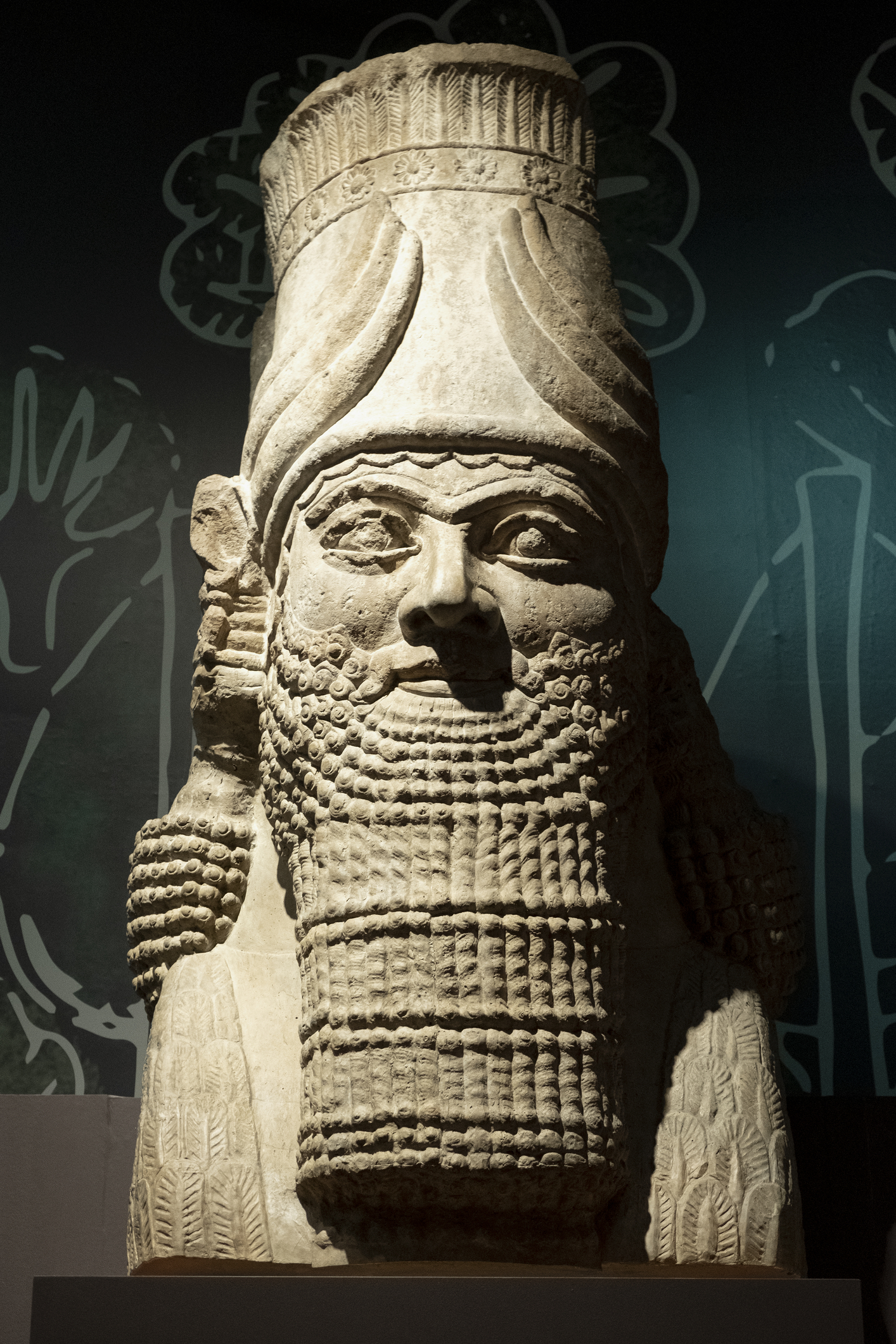
View & Download
The poetic prophet continues his tour de force poetic outcry against a very wicked city. God is not going to let Nineveh get away with this. These people were so evil they sometimes kenneled conquered leaders, literally, in a kennel cage with a chain. They stacked corpses, impaled their captured, sometimes even skinned them. God is not going to let them get away with this. Vengeance is mine, the Lord says. And He will repay! (Romans 12:9)

View & Download
Nahum 2 Part 2 Nineveh was an amazing and mighty ancient city. She also contained numerous lion sculptures. Here is a take on why that is the case: As the divinely appointed protector of Assyria, it was the king’s duty to maintain order in the world by defeating the forces of chaos, which included foreign enemies and dangerous wild animals such as the lion. Assyrians thought of their world as encompassing a civilized heartland, situated in Assyria’s cities, which was surrounded by a hostile, untamed periphery. . . . the royal lion hunt was a particularly effective means of publicizing the king’s ability, as the shepherd of his people, to protect his flock. (Taken from Lion hunting: the sport of kings - British Museum Blog) Fascinating. The entire ancient world feared chaos. But the real God is the one that always has it under control.
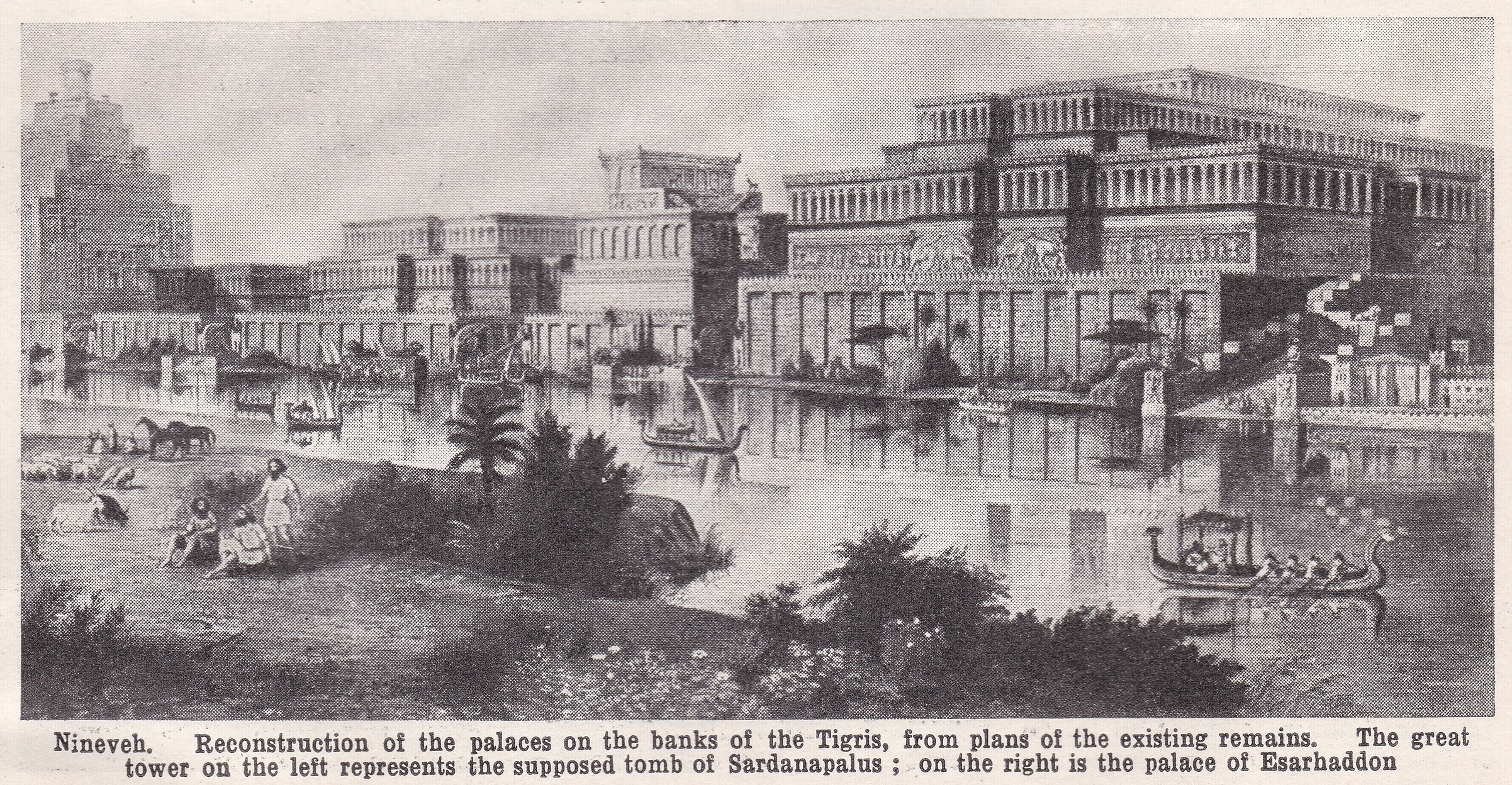
View & Download
There are so many beautiful poetic visuals given in this book that are simply missed because of the translation. Here's a visual. Nineveh is shown in a stream of consciousness kind of way to be in a state of panic and emotional disarray as her destruction closes in on her. In one scene, the "ladies in waiting" are shown to be cooing and moaning like doves. In fact, it literally says that her "maidservants coo, moaning Like the sound of doves, Tambourining on their heart." Wow, what a visual! And it makes sense! Haven't you experienced that? Haven't you had an issue that just wouldn't let go? Like something was vibrating, shaking, yes, "tambourining" on your heart? Oh, that it would only be the love Jesus had for us in the cross that would "tambourine" on our hearts always! It does for Him!

View & Download
So Nineveh is to be completely destroyed, and she certainly was. In 612 B.C. she was stricken with a blow she could never recover from. Secular history records this. And so does the Bible. And fascinating alliterations are made to how God's people were decisively delivered from the enemy. A phrase is used to refer to that: "Look there, on the mountains, the feet of one who brings good news, who proclaims feet." That's used for the "good news" of Israel's deliverance from Nineveh and later, Babylon. But it ultimately refers to our deliverance from sin, our ultimate enemy, by our Savior Jesus. (Matthew 1:21) That's why He's named Jesus---it means Savior. And that He is!

View & Download
So God chases sin into the realm of darkness (Nahum 1:8) And sin disintegrates and destroys creation. Sin just leads to nonexistence. That's why God hates it so much. Consider the love He has for us by continuing to hold all things together in Jesus. "In Him all things hold together." In Him all things "consist" and "subsist." (Colossians 1:17) What an "ontological" friend we have in Jesus. Ontological refers to our actual ability to be---made possible by Jesus, who is still enabling us to be, and not allowing the created order to disintegrate.

View & Download
I parked on one single verse this day. Nahum 1:10. The NIV Study Bible says its meaning is obscure, so I played around with it to see what I could glean from it. I guess I don't completely understand how translators make some of the verbal decisions they do, but what do you think these "bare bones" words mean: "as-straw the-are-devoured . . . ones-being-groggy as-grog-of-them one-being-entangled as briars fully dry" What did the poetic prophet mean with these declarations of his vision? I gave translating this a new a shot.

View & Download
So punishment is associated with “darkness.” The two things used to describe what happens to Nineveh are: (1) an overwhelming flood, and (2) The realm of darkness. The NIV Study Bible says that “overwhelming flood” is symbolic of an invading army. But the theme of darkness and flood is prevalent in other Scriptures, and I think they too contribute to this discussion. I studied the concept of darkness yesterday. I’m going to briefly comment on the Scriptures we found, study the concept of “flood” and then move on. The ancients associated both with devastation and a descent back into the chaos that led to nothingness, non-existence. Thankfully, God sits over the surface of the earth.

View & Download
So we’re about to begin to study a really cool Scripture. It’s in the context of God’s punishment of Nineveh. It brings up a theme that is very often prevalent in Scripture---it’s the theme of darkness. Darkness lashed out at the instant of creation, and threatened to unravel it. Living in sin is living in darkness. And punishment is associated with “darkness” as well. Let’s press that theme as we go through the Bible “From the Ground Up.”
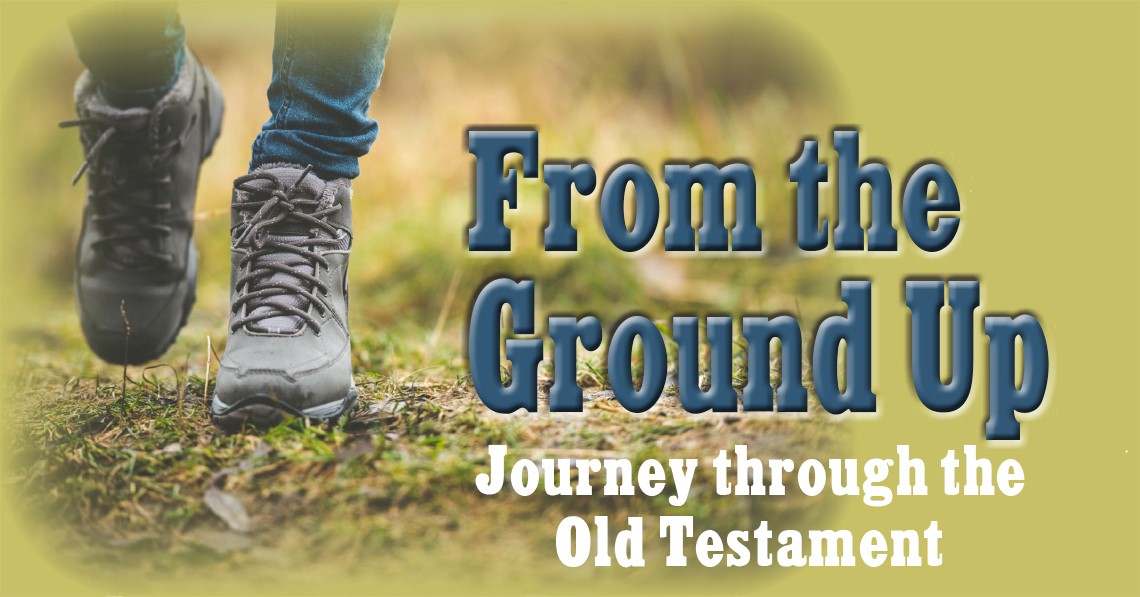
View & Download
For all that there is a judgment, we have a God that is a refuge. I love the way God shows in this book and in other Scriptures how he saves those who have put their trust in Him. He is their refuge, and their stronghold. Kind of like a secret tunnel we can always run to and hid in. Enjoy your refuge.
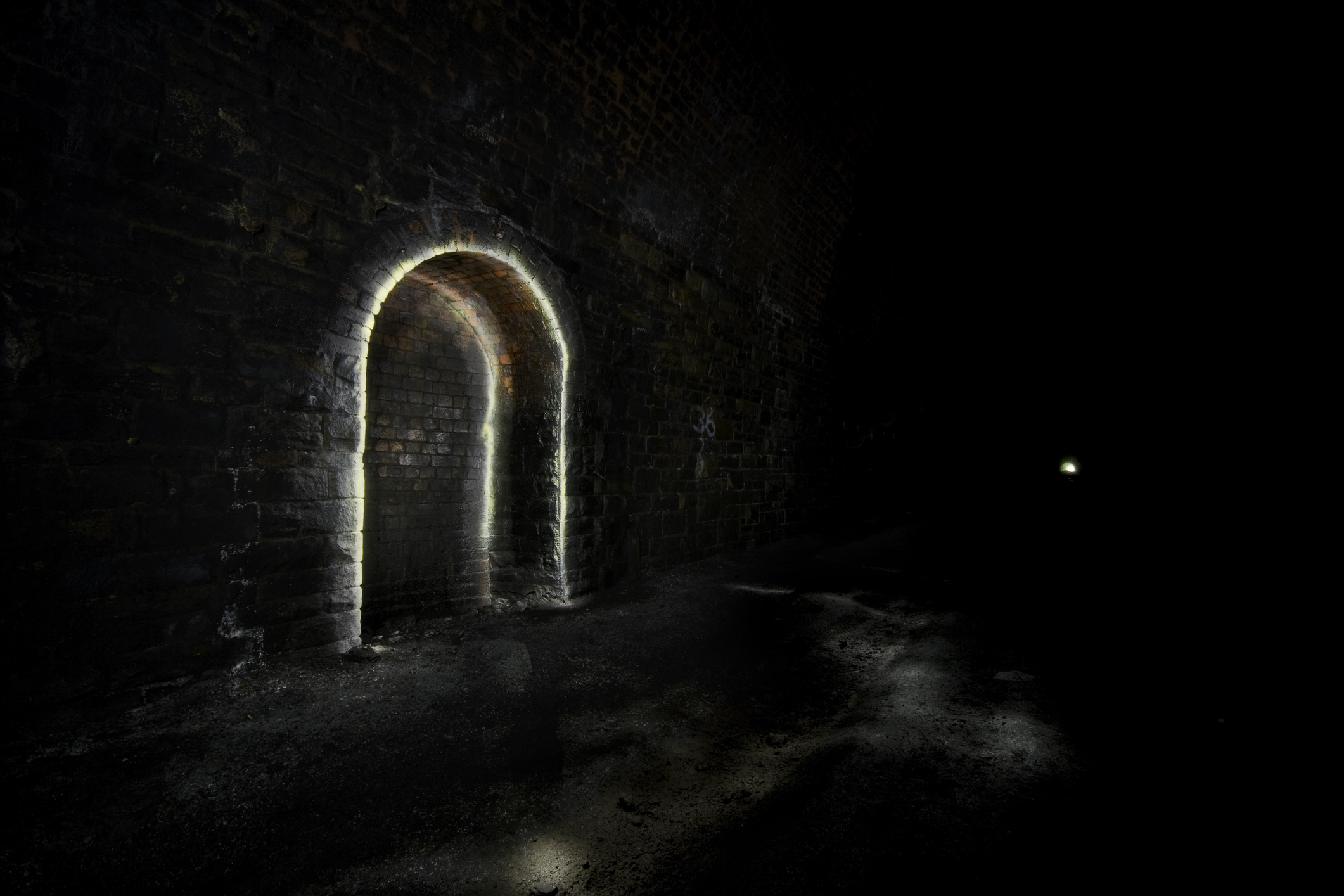
View & Download
I've been fascinated again by the concept of the Judgment. For all that we try to make it go away, it's more of a positive thing than we realize. And there are multiple nuances to it in the Old and New Testaments. Enjoy!

View & Download
For years I've seen all kinds of attempts to water down or minimize clear cut "judgment" Scriptures. In a sense I understand where they are coming from. But in another sense, something is always left hanging. A dear friend and respected theologian to boot doesn't minimize these Scriptures. In fact, he demonstrates how God will give this its full due. Thanks be to God that He has judged death and conquered it with life! Thanks be to God that He will "judge" the world in righteousness. I'm hoping to understand this subject with greater clarity in the years to come! Thanks be to God that with His Son in the manger, He's saved the world!

View & Download
So all this talk about God's wrath and vengeance has led me once again into the topic of the judgment. There is judgment, and specifically, a judgment. Jesus spoke of it, and the epistle writers will as way. In our world, it seems the concept doesn't get much play. Why? Why is it such a neglected subject? Whatever God does, He does in love. Is it time to start standing up for biblical truth? Is it time to bring "judgment" back?

View & Download
Nahum 1 Part 3 https://www.communityconnexionschurch.com/ So we continue our journey into the book of Nahum, and we've parked on the commentary related to the fact that God calls Himself a "jealous God" and an "avenging God." "The Lord takes vengeance," it says, and it filled with "wrath." There is this side to God's nature---and its inextricably tied the love poured out on us at the Cross. We'll finish our look at God's "zeal" as expressed in Exodus 20:5 as a spin off study, and go deeper into this chapter today.

View & Download
So God is a God of wrath and vengeance in this chapter. And He has burning anger against the people of Assyria, especially against the atrocities of Nineveh. I've never yet figured out exactly how to reconcile the wrathful God depicted in this chapter with the God pictured by Jesus in John 8. But they are the same God! So I'm going to study the full range of God's emotions as spoken of in Scripture. And unlike Katherine Hepburn in one of her earlier plays, the gamut of His emotion goes much farther than "A to B," as one critic famously said about Ms. Hepburn. Photo from Wikipedia is considered Public Domain

View & Download
Chapter 1 starts speaking of a politically incorrect God, according to the standards of our culture. It speaks of a God who is “jealous” and “avenging.” He “takes vengeance” and He is filled with “wrath.” “His wrath is poured out like fire.” How do we reconcile that God, with God of love we see in Jesus? We’ll press that question, and perhaps see how wrath and love belong together more than we realize. Enjoy.

View & Download
I enjoy going through the Bible, "From the Ground Up." And I love going through the wonderful “Introductions” the NIV Study Bible includes before each book of the Bible. They are well written, and so accessible to all. We’ve gotten through the material that shows to whom this book is written. It’s about Nineveh, and probably in one sense to her. But they are also meant to be read by the Israelites living in Judah. Today we’ll look at the literary style of the book, and its theological theme. Enjoy.

View & Download
So we get deeper into the introduction of this amazing little book. Nahum says what seems to be some pretty severed things to Nineveh. But it deserves it. It's cruelties seem on par with those of Nazi Germany. As much as we think we've gone through, there are others who have gone through so much more---or at the very least, the same. As naive as we are about this generation's troubles, can we no all agree---every generation longs for the day when God's kingdom comes? Maybe the prayer should be more that God's kingdom comes now, through me, for these people that so dearly need it!
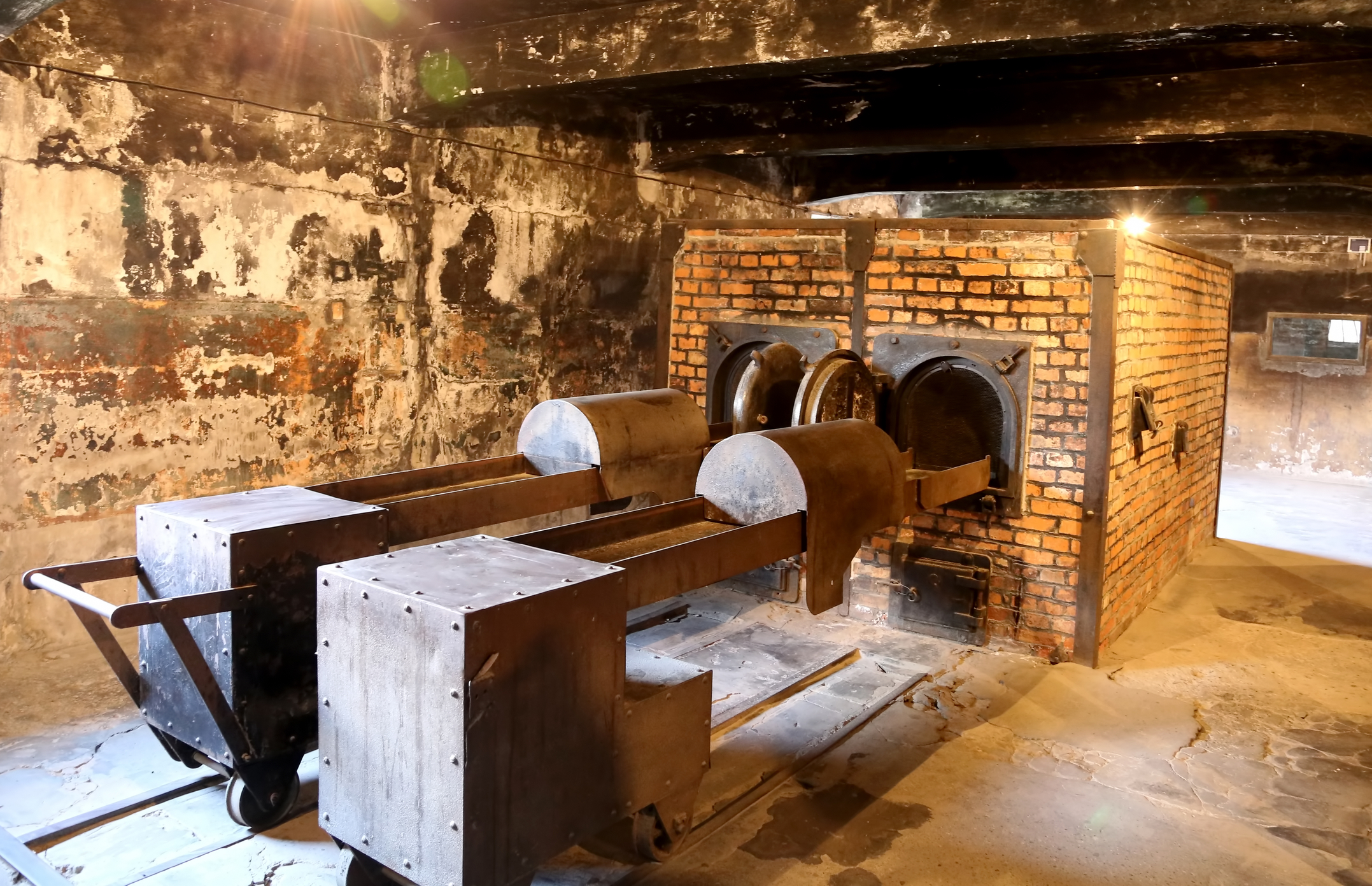
View & Download
Nahum Introduction Part 2 https://www.communityconnexionschurch.com/.../studies.html So we get deeper into the introduction of this amazing little book. Nahum says what seems to be some pretty severed things to Nineveh. But it deserves it. It's cruelties seem on par with those of Nazi Germany. As much as we think we've gone through, there are others who have gone through so much more---or at the very least, the same. As naive as we are about this generation's troubles, can we no all agree---every generation longs for the day when God's kingdom comes? Maybe the prayer should be more that God's kingdom comes now, through me, for these people that so dearly need it!

View & Download
Like Pompei, the city of Nineveh was doomed to destruction. The book of Nahum prophesies this quite tellingly. Does God destroy cities sometimes as a punishment? The Bible indicates He has, especially when the evil of a city is particularly horrendous, as it was in the case of Assyria. Brutal kings mutilated and tortured its captured. One king boasted of erecting a pyramid of severed heads. God hates this kind of brutality. And God does at times, punish the wicked, deservedly. How horrible it must have been for Christ, to become the sin of all humanity (2 Corinthians 5:21). Praise God that He was willing to do so!
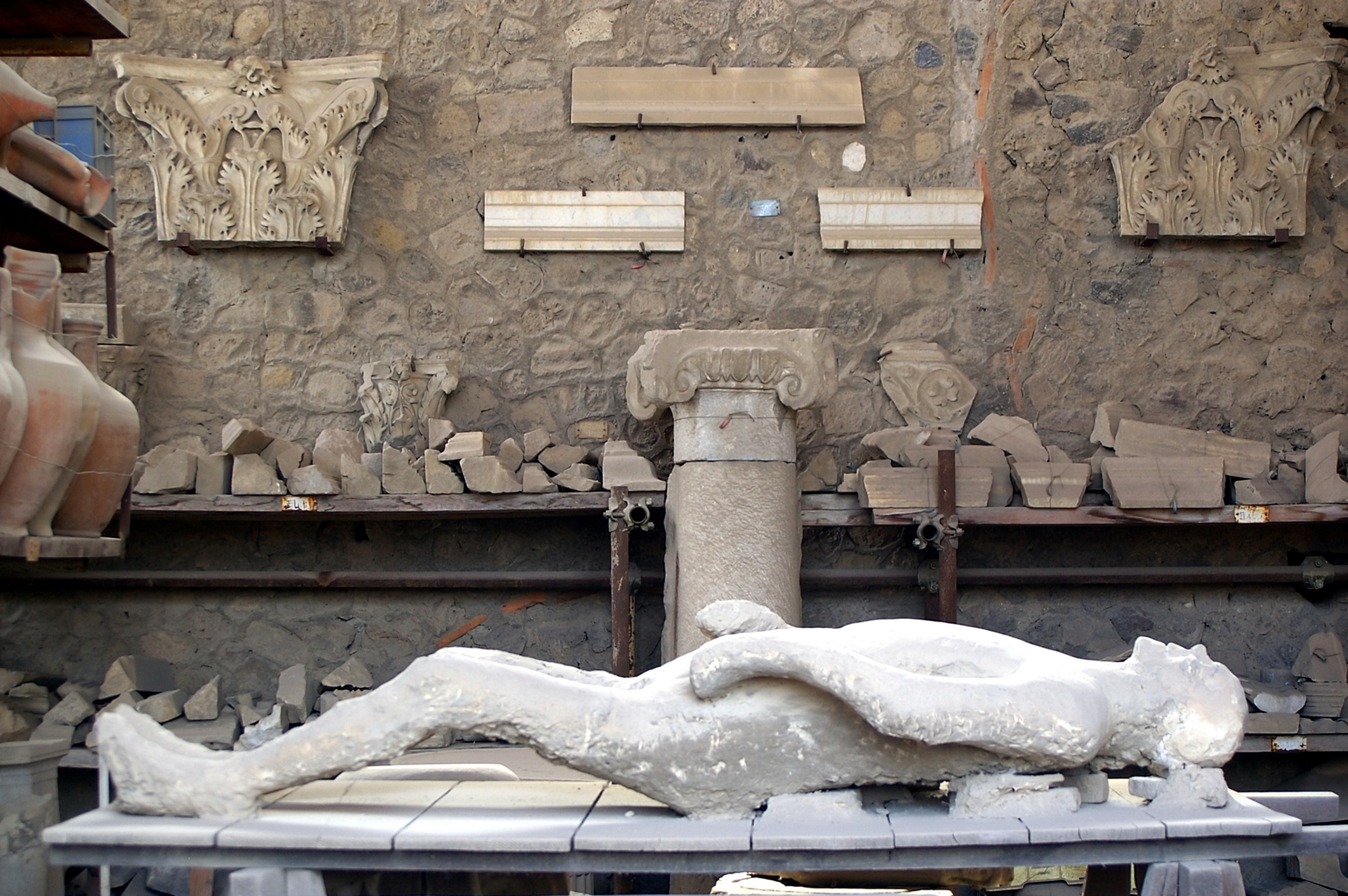
View & Download
So what was Mary doing in this picture of the annunciation? I have a thought. She was reading Scripture. I bet when she read Scripture, some of her focus was on the book of Micah. Of course, I can't prove that. But her beautiful word recorded in Luke 1:54-55 seem to echo the last verse of this wonderful Old Testament prophecy, so filled with things about Jesus. Merry Christmas!
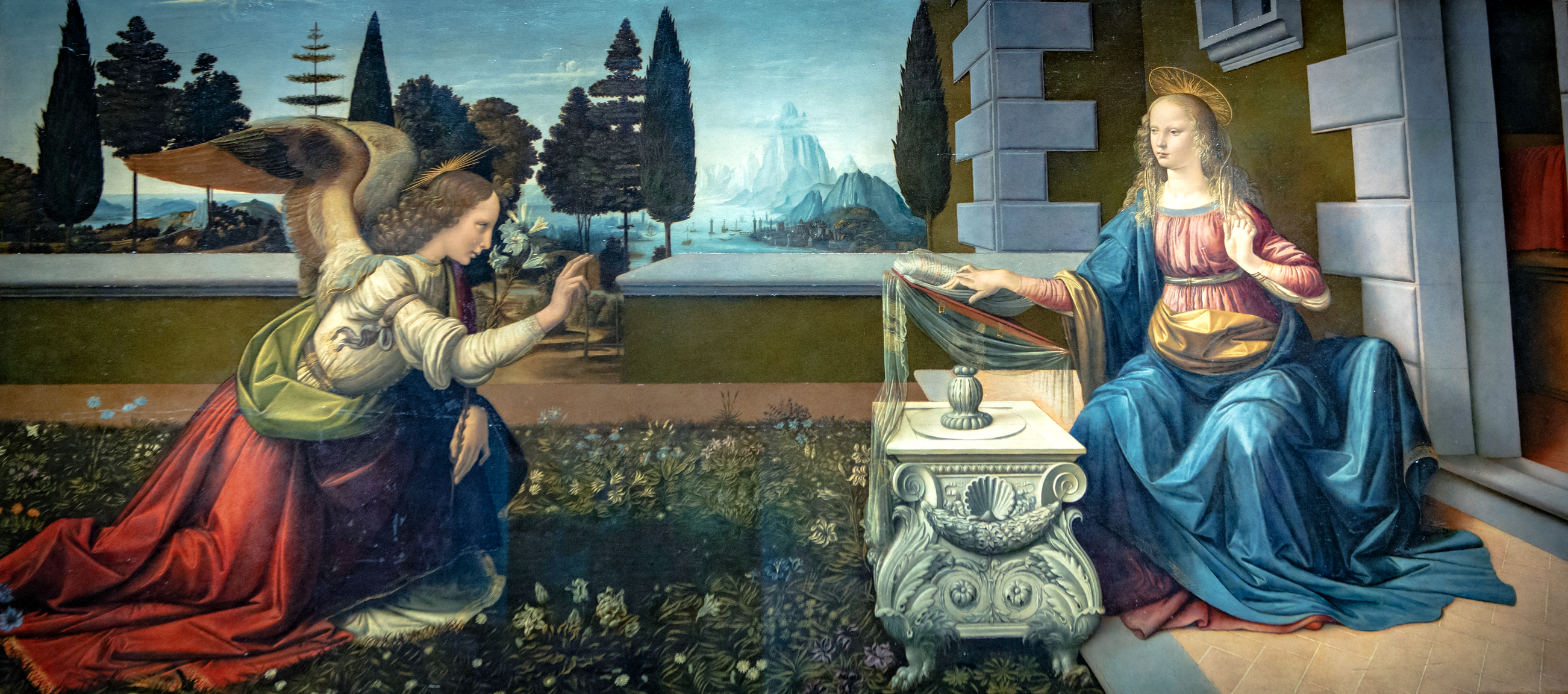
View & Download
Micah chapter 7 ends with an interesting statement that again, makes it into the telling of the Jesus story in Luke. It’s where Mary sings her “song of praise” in Elizabeth’s presence. She mentions a phrase that ends very similarly to the way this book ends, referencing God’s promise to Israel (or Jacob) and its father Abraham. I’ve been struck by how the people of Christ must have really known this book, and looked for its promises to be fulfilled. I’m glad for the chance to know it as well! Enjoy!

View & Download
Christ used Scriptures in such amazing ways. And perhaps when it comes to Micah 7, He simply appropriated certain principles in His life context that never misused the original Scriptures, but only alluded to them. And it's a legitimate way for us to use Scriptures. Our context may not be exactly the same as the original source of the Scriptural principle, but none the less the principle applies. There is such a vast pool to pull from! May God give us all the insight to know what Scriptures apply when to our situation. Thank you, Jesus for all the options!

View & Download
Micah 7 is an interesting chapter. So many things that surface in Jesus’ ministry surface in this chapter. I’ve always suspected that Jesus got many of His “marching orders” from Scripture. I still cherish this scene in Luke 2: they found him in the temple courts, sitting among the teachers, listening to them and asking them questions. His Father’s “business” apparently included learning the Scripture and growing in His understanding of it. I will study this chapter with this in mind. Enjoy!
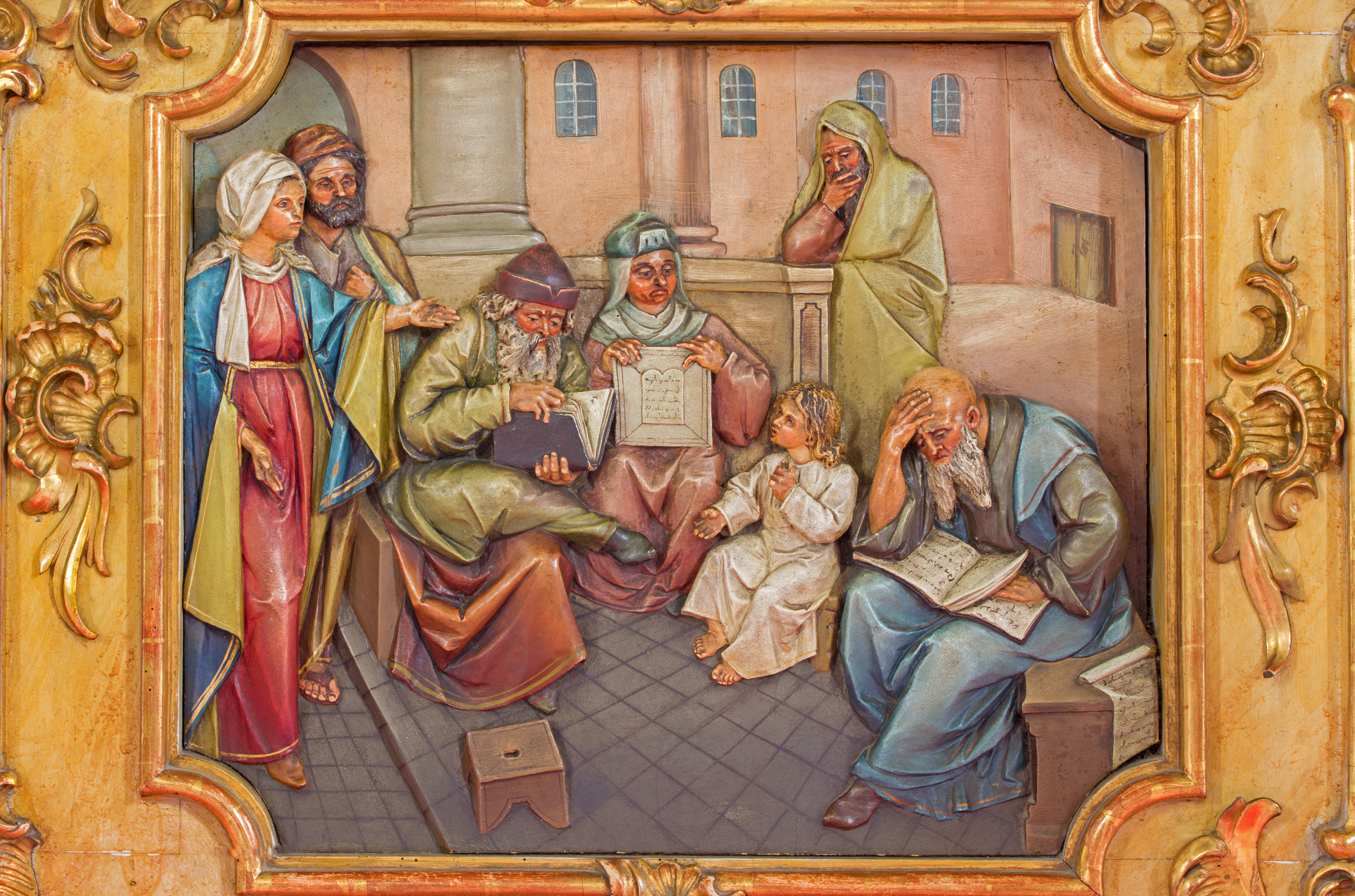
View & Download
Micah 6 Part 6 https://www.communityconnexionschurch.com/.../studies.html Sin is not something "fun" God keeps us from. Sin is something that just doesn't work in harmony with Reality, doesn't work in harmony with Real Life. Real Life is God's life. And God wants us to have it in abundance. In this chapter, the prophet simply discusses the realistic consequences of sin. It causes ruin and destruction. It keeps us from the abundance of life, God wants us to have (John 10:10). When we were slaves to sin, we were free from the control of righteousness. We did things we were ashamed of. It resulted in death (Romans 6:20-21). God's life is abundance. Abundance of Peace. Abundance of Joy. Let the Christ "mass" in you this Christmas. And let every day be Christ "massing" in you!

View & Download
In the scripture that tells man to walk humbly, love justice and do justly, God refers to his people collectively as "Adam" in Hebrew, which is not only the name of the first human, but a word that derives from a root word meaning "rosy." We blush. We have rosy coloring. It's reflective of the red clay from which we were modeled. I love thinking about life from the Bible and God's perspective. I wonder a the wonder of our physicality, and how we were meant to embrace it. What an amazing thing God is doing with us as being Creatures who embody His image. We were made for life, not death. Enjoy your "incarnation" in the Incarnate One.
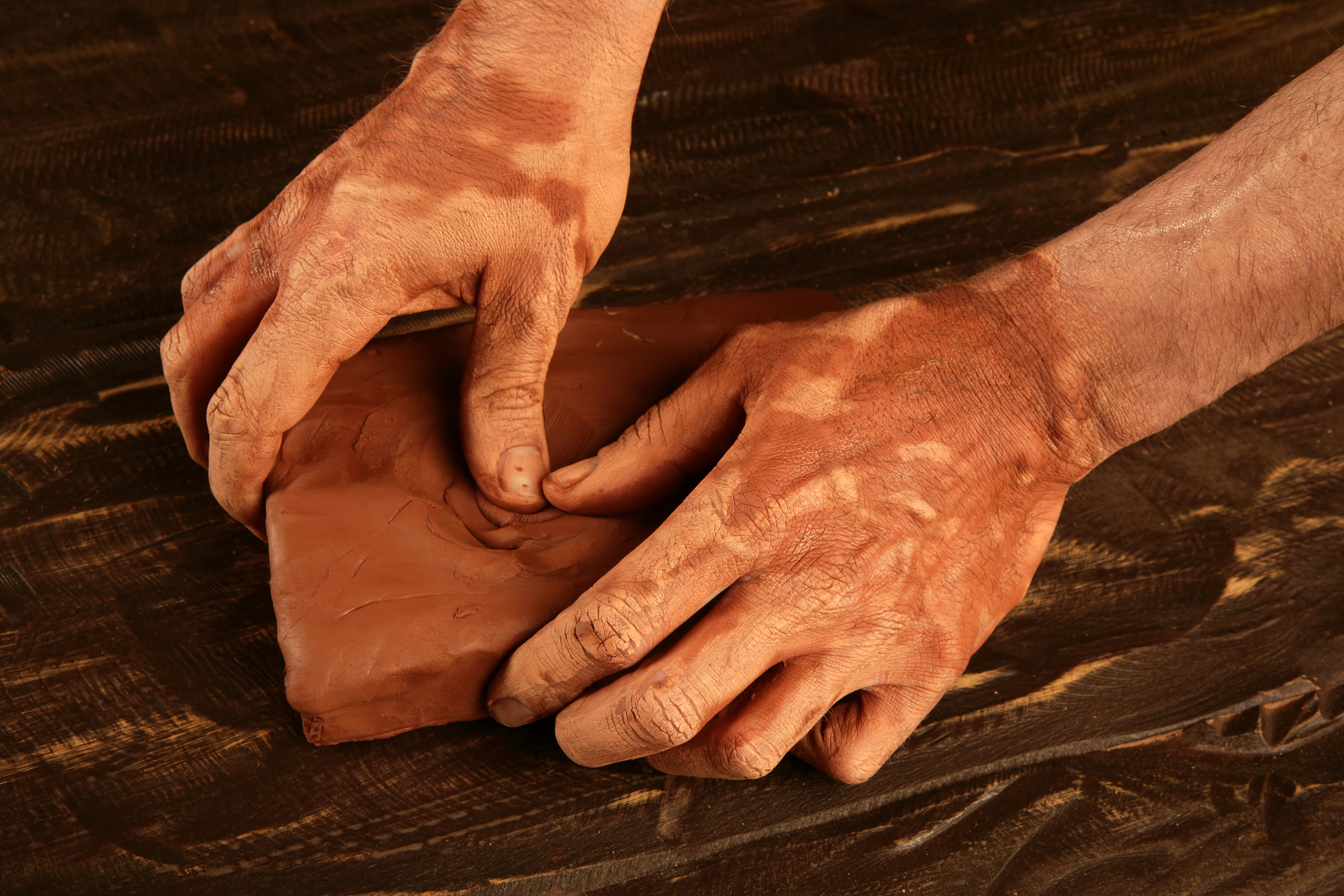
View & Download
As I listen to my Bible app on my phone and hear other concepts, I’m continually amazed at how much of the phrases in this book find their way into Jesus’ mouth and ministry. I’ve always believed that Jesus received a lot of His “marching orders” from the Scripture. I think a fascinating study would be to see how much of the Old Testament was the source of even of the stories and parables He told. He wove them into His teaching as if they were brute facts. And they are! Enjoy today’s study!

View & Download
God loves us. He doesn't want endless sacrifices for us. He's given His Son as our sacrifice, and the Son has restored us to the Tree of Life kind of life. But there are still things we can sacrifice to God. And they're beautiful gestures of grace. Enjoy this foray into the ever relevant word of God!
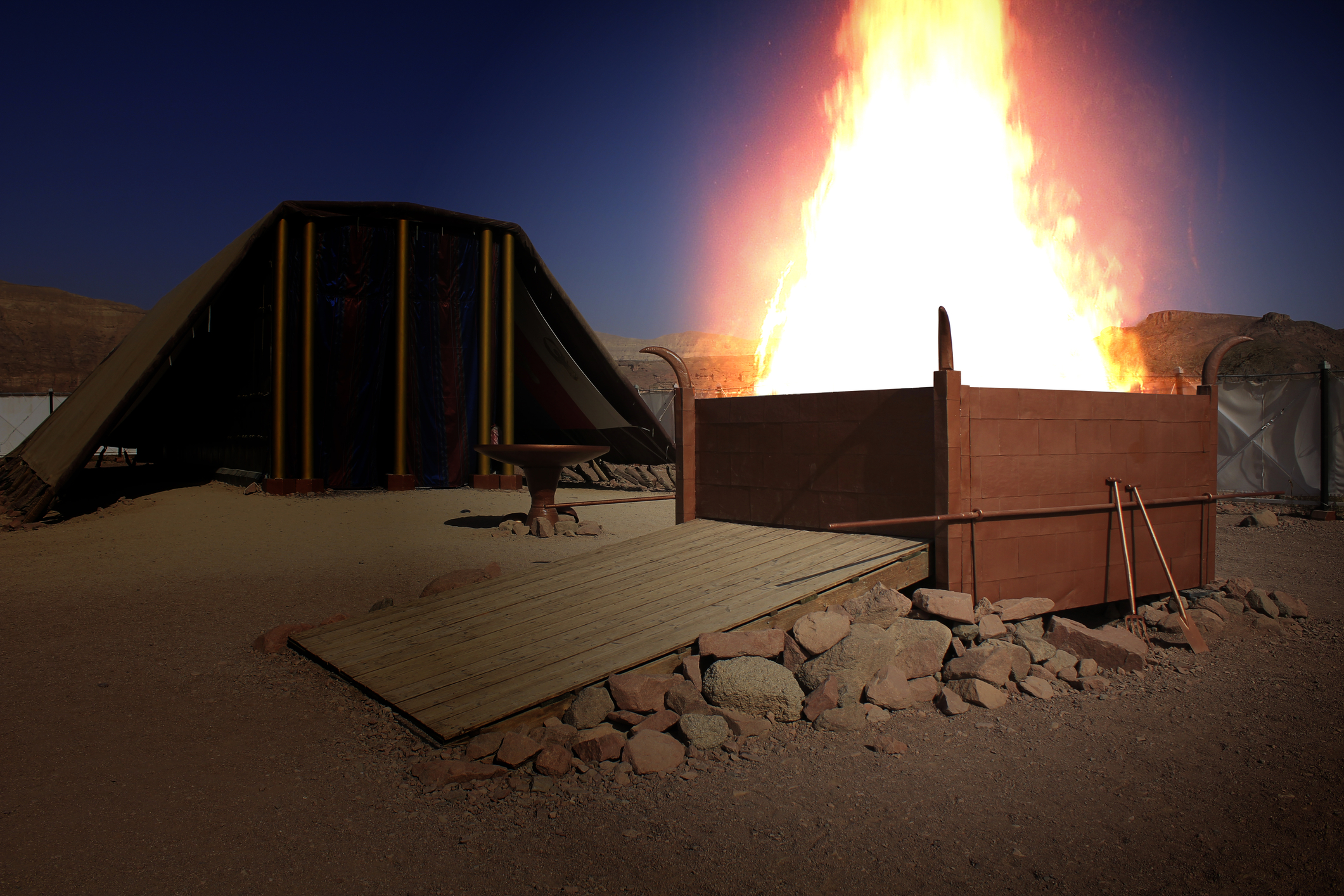
View & Download
The role of sacrifices has been huge in the history of religion, including the religion of God’s first covenant, with Israel. Micah addresses the futility of sacrifices in this chapter. Was that something that mankind matured into, or that God revealed as time went on. Perhaps it was both. Let’s see what we can learn about this subject. Enjoy!

View & Download
As Christmas approaches, I’m so happy to be studying the prophecies about Jesus' birth and the ultimate good He has and will achieve for the whole world. Again, it’s amazing to study prophecy through the lens of Jesus Christ! Multiple realities exist side by side, simultaneously. Let’s continue to study how the joy of Jesus even penetrated the problems of Israel and our problems, now. It’s now "countdown to Christmas!" Be sure to rest and “reset” your lives in Him!

View & Download
So here's a visual that may speak to you. We live in our sequential and limited dimensional slice of Reality known as "this world" in the Scripture. But we are part of a greater Reality---a Reality that is not only multi-dimensional in infinite ways, but intersects our simplistic, sequential reality with the Timelessness of Eternity. That's why Micah can be speaking about some historical incident that took place in Israel's past, but all of sudden break into a transcendent truth of Christ that is timeless, eternal and accessible to us all because of Christ's intersection of God's eternal life with ours. That's why these prophecies are so intriguing! That's why our joy is greater than we sometimes see! Can't wait to let these prophecies speak into our Christmas season this year!

View & Download
I continue to be intrigued how God can jump out of one dimension into another when He speaks through His prophets. He's speaking in the context of things happening in the time of ancient Israel. Yet He transcends the moment, and speaks into the future about the coming of the Christ. The Magi used this prophecy to find Jesus! I hope we use all prophecies to do the same. Enjoy!
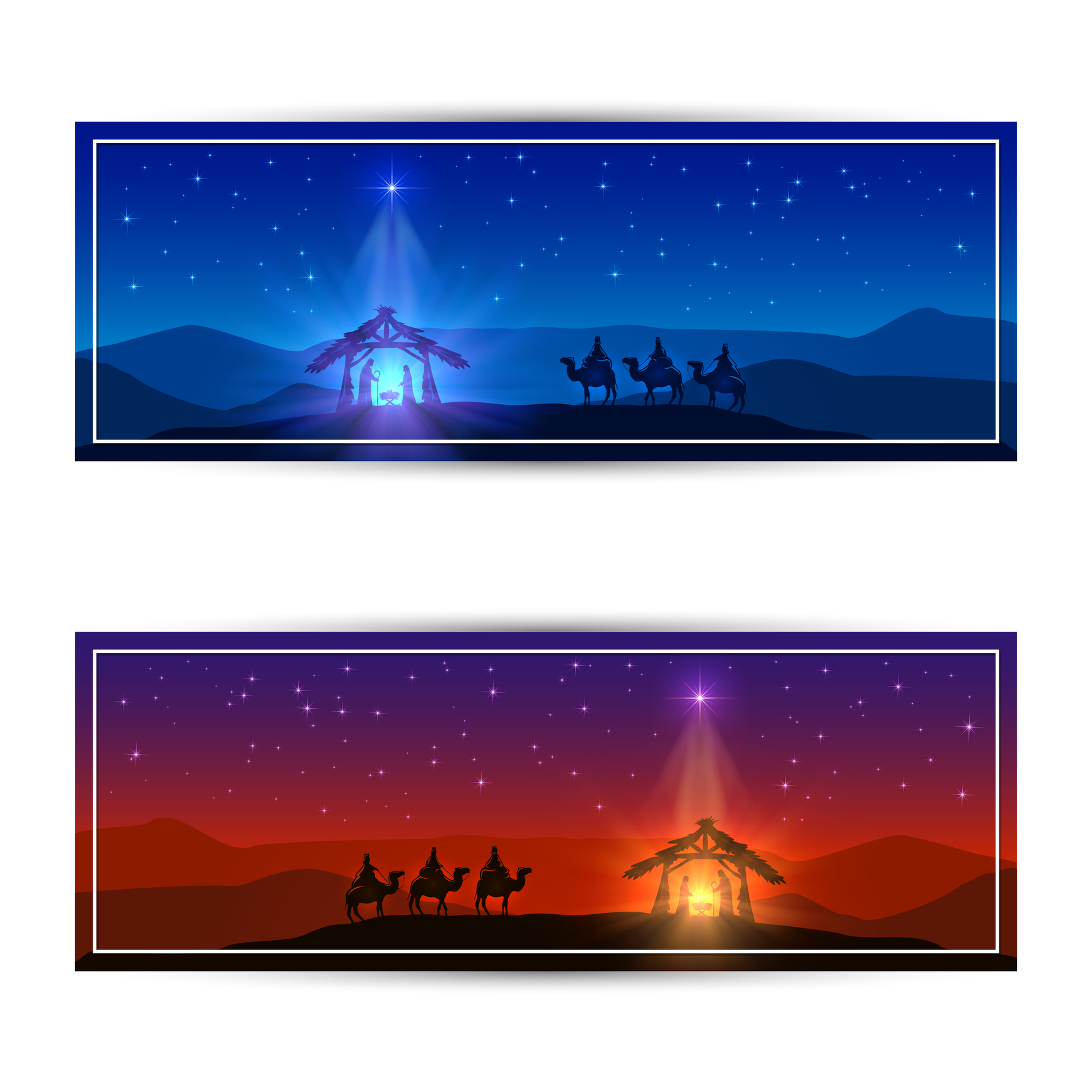
View & Download
So this chapter not only includes a restored version of Israel and Jerusalem, it includes a brilliant exultation of what God is going to do for all. How do two completely different pictures exist side by side? It makes sense once you realize that we all are "one person" with two natures. The first on is completely whole and perfect in God, and never has gone away. The other is what we are in our fallen flesh, and guilty of every sin you are aware of, and more. Yet good news! Even though the bad exists, the good does too! And God will bring it back, in spite of what all we've done to it! He's involving us in the process. But the good wins in the end! And we do too! In Jesus!
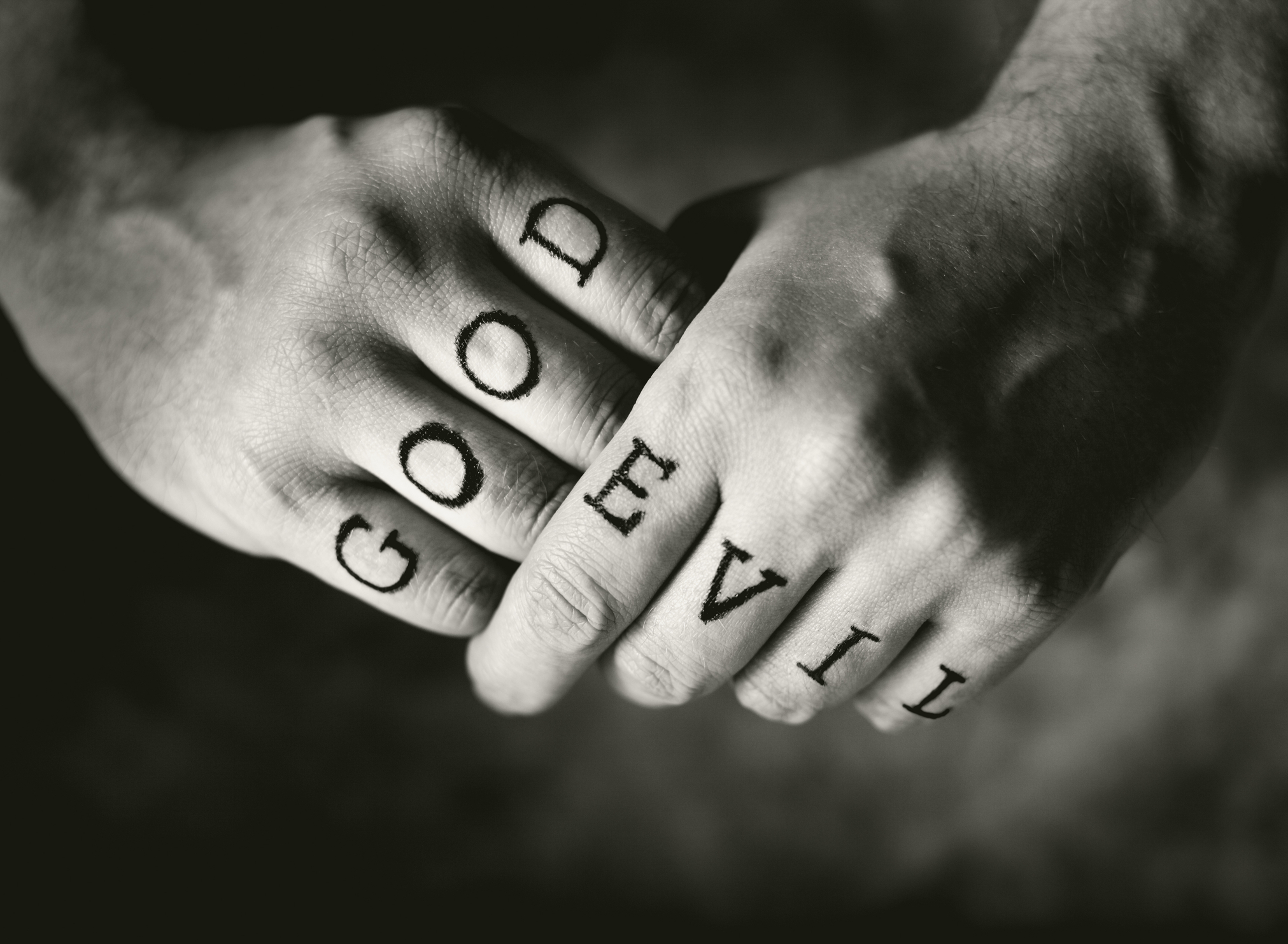
View & Download
So the Scripture speaks of the world of beauty that will be in place as people stream to the Mountain of the Lord's House. Do people stream to us today? Why or why not? What challenges do we have to enable this kind of truth to pour out of us in the generation and to the communities in which we live? Are we to win with our "swords" in our holsters or the "sword" of our tongues---used not to kill, but to plant seeds for future proof. It's something to consider. The picture that accompanies this post is described as "high resonance healing words." It's something to consider.

View & Download
Micah 4 https://www.communityconnexionschurch.com/.../studies.html So one of the most beautiful prophecies of all time emerges in the midst of this book. It show the great promised that have come and will continue to come in greater intensity in Christ. It shows how prophecy is first and foremost about Christ. And it shows who the true Israel is---the Israel of God! And it speaks of the Heavenly Jerusalem which is going to come "down" one day from God. Going to spend a while in this chapter. Enjoy
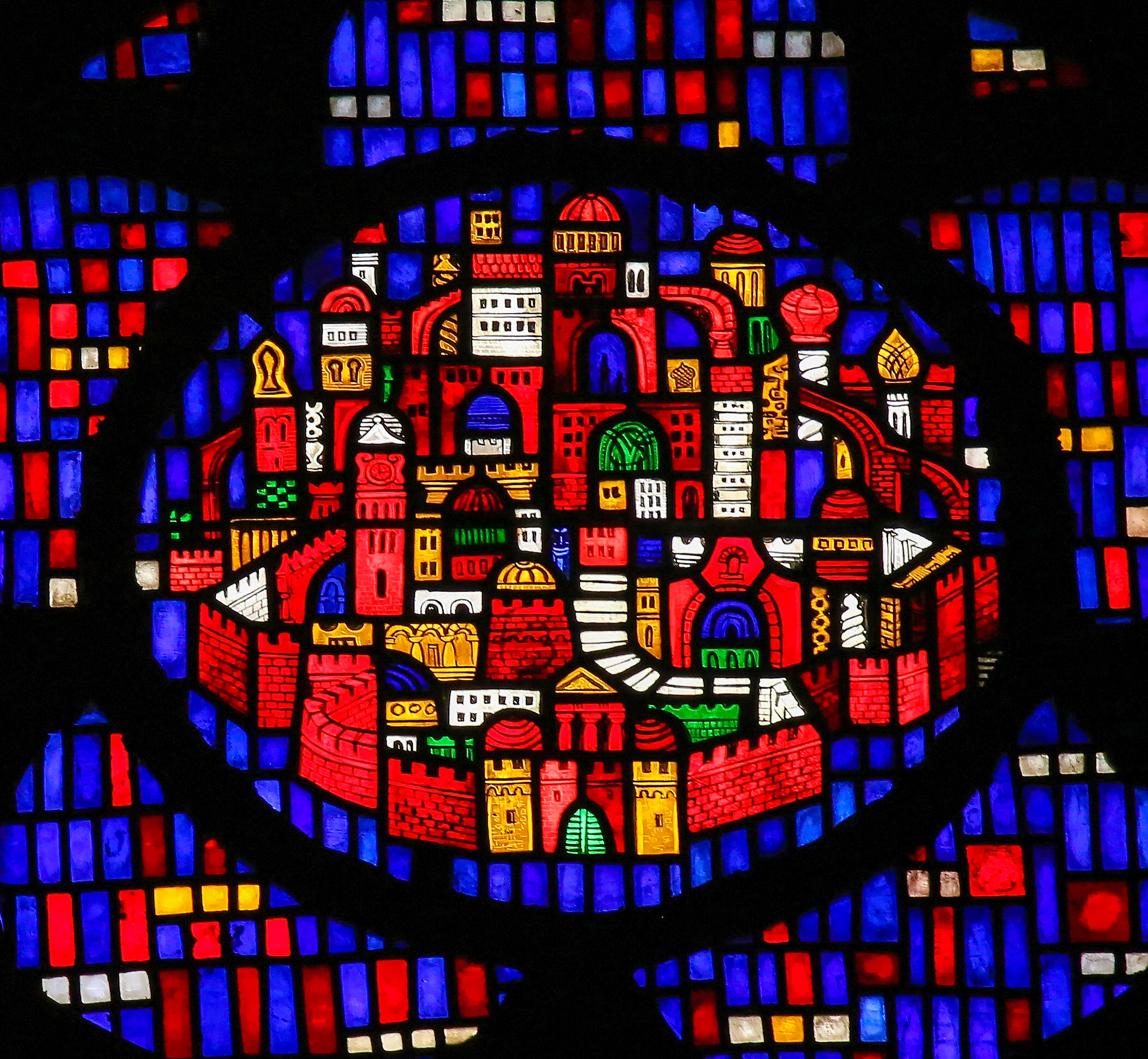
View & Download
Micah 3 https://www.communityconnexionschurch.com/.../studies.html So Micah attacks self-serving approaches of civil and religious leaders here. Leaders are to embrace justice. They are to see that God's people receive it and prosper from it. But Jerusalem's religious system won't declare to people their sin. It won't expose their sins, and save them from captivity. As a result, their system will be turned into a "mound of rubble." A warning for us, perhaps?

View & Download
Micah 2 begins with a warning to those who plot evil, but ends in a glorious way! Notice this amazing Scripture at the end of the chapter:12 “I will surely gather all of you, Jacob; I will surely bring together the remnant of Israel. I will bring them together like sheep in a pen, like a flock in its pasture; the place will throng with people. 13 The One who breaks open the way will go up before them; they will break through the gate and go out. Their King will pass through before them, the LORD at their head.” To me that speaks of Jesus---the One who breaks open the way!
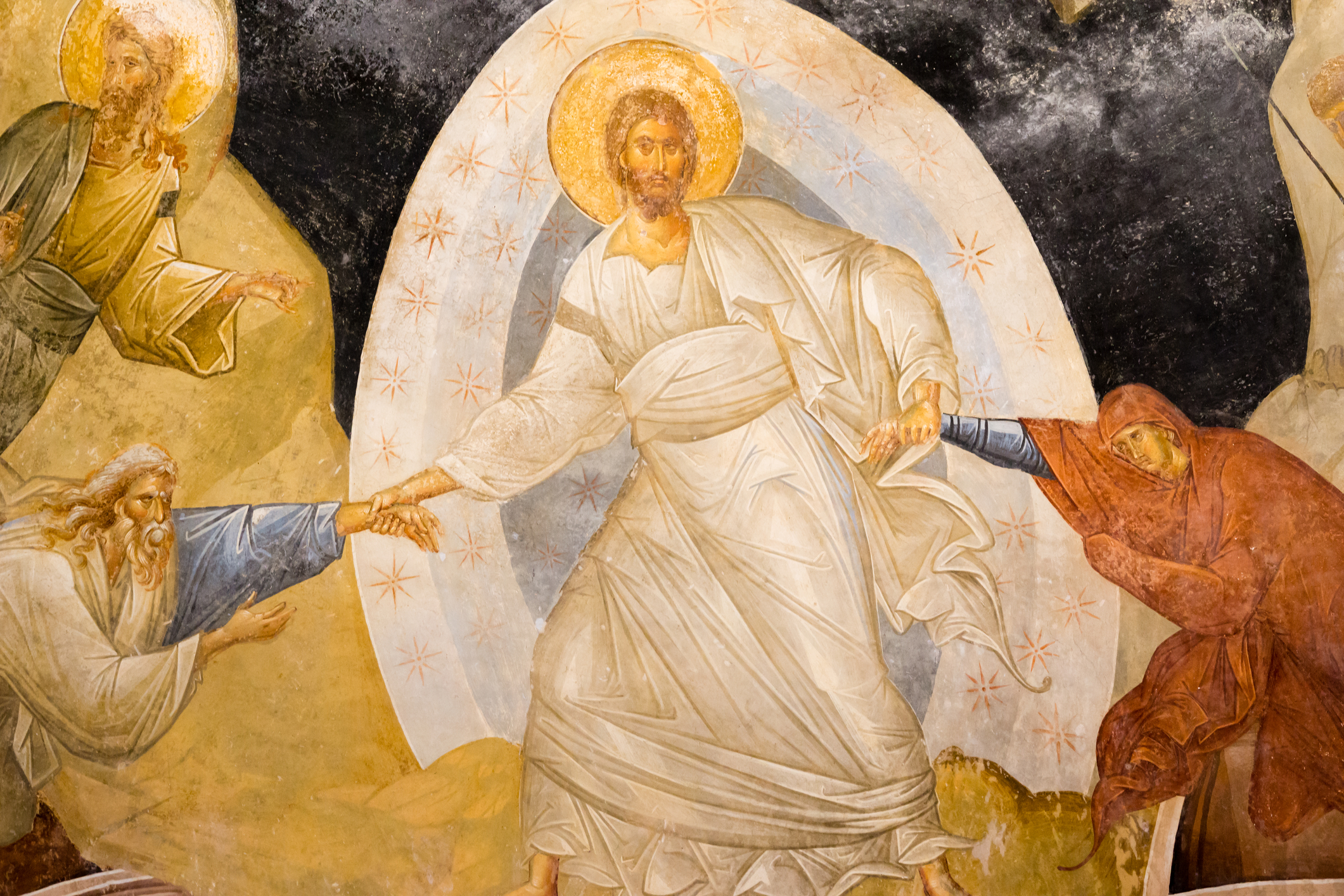
View & Download
There is one loose end from my study on Micah 1. It’s in verse 13 where Micah says: You who live in Lachish, harness fast horses to the chariot. You are where the sin of Daughter Zion began, for the transgressions of Israel were found in you. I want to explore that a bit Biblically. Then I’ll move into Micah 2. It will take us into an interesting discussion about casting "lots," which connects to the fact that God is giving us our allotment, now, for the Kingdom of Heaven, which is "near." (Mark 1:14-15)
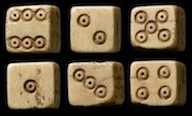
View & Download
So Jerusalem had become just another “high place” in God’s eyes, where people worshiped as they saw fit as opposed to how God prescribed worship. Somehow they had taken God’s pure religion, which was centralized, under the direction of the Levitical priests, and centered in Jerusalem---and turned it into their own personal “high place,” adapted to their perceived needs and preferred culture. God was obviously opposed to that. What was going to happen as a result?

View & Download
So God called Jerusalem a high place. Apparently their religion had become corrupted enough to the point that the very place the Temple was located became more an expression of self-will than God's will. Why is the lack of true worship of the true worshipers of God such a rarity? It's fascinating to consider that worshiping in the manner of our choice can become more expressions of our self-will than God's.

View & Download
So in this next study we look at what happens when the God of all the Universe chooses to manifest His full self in a creaturely way in His creaturely dimension we call "creation." Mountains melt. Valleys split apart. The elements begin to unravel and cascade like water down a hill. Our God is a consuming fire. And that fire purges and purifies. And Christ's physical redemption enables the creations of this dimension to be holy enough to receive the life giving Spirit. How great is our God and our future! Christ is the Way, the Truth and THE Life. Don't miss out on it!

View & Download
God seems very precise in what He will and won't accept in religious worship in the Old Testament. Samaria developed an apostate religion. And both Jerusalem and Samaria seemed to have a "form of godliness," but not the form the Lord prescribed. Even Jerusalem is referred to as a "high place," which tended to refer to self-determined worship rather than worshiping God the way He prescribed. I'm going to see if I can press this a bit in this study Whose way should we want? I want "the Way"---Jesus. John 14:6
View & Download
So as we study Samaria, the capital city of the Northern Kingdom, we get a chance to learn more about the city it was meant to rival, Jerusalem. What a colorful history it has. Some sort of royal city has been there since the time of Abraham. It's the spot from which Melchizdec served him bread and wine. It's considered to be the spot where Abraham was tested with the offering of Isaac. It was the citadel of David. Omri would need to do a lot to draw attention to his royal citadel Samaria. We'll look at that next time.
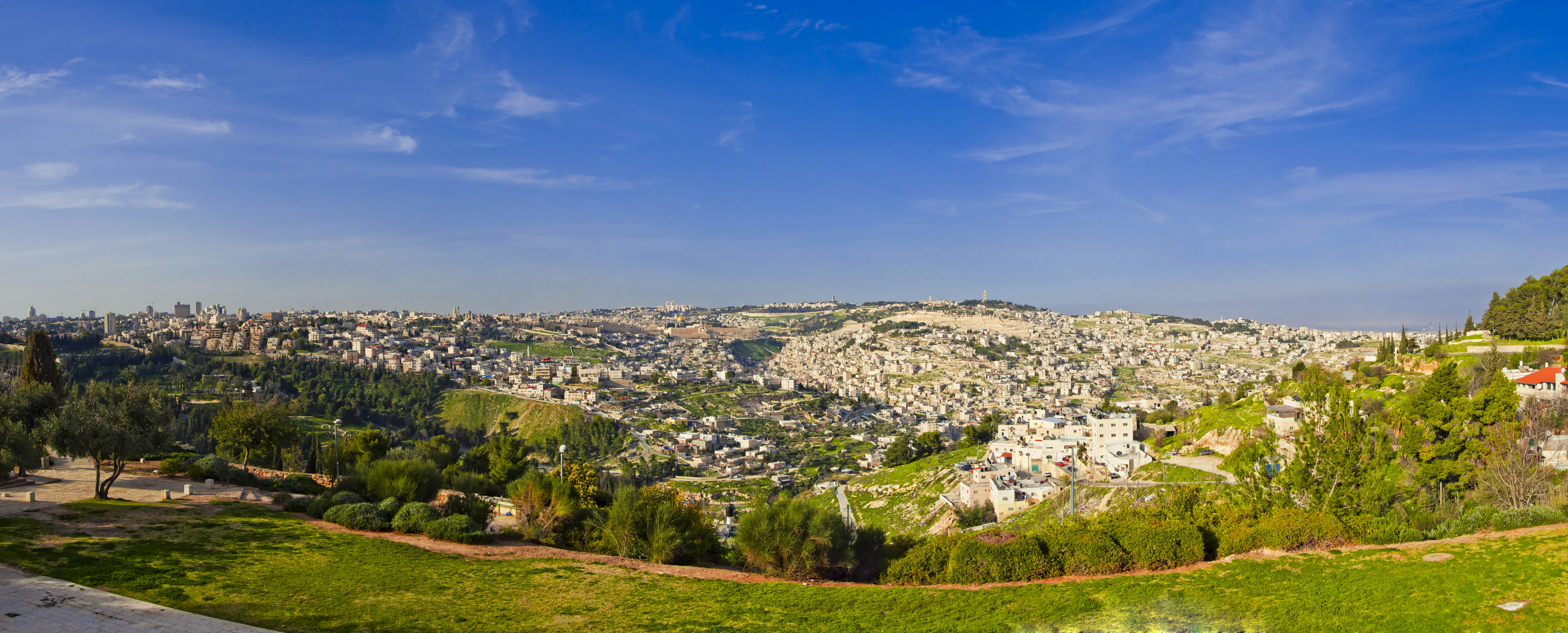
View & Download
Micah’s vision is for Jerusalem and for Samaria. I’ve never done an in depth Bible study on Samaria, so I wanted to explore it more thoroughly. From what I can tell, they had a “form” of God’s original religion, but they modified it to conform to preferred cultural expressions. It was a “copy” of the true worship, but a “knock off.” And it had limitations. Christ told the Samaritan woman that “we (the Jews) worship what we know, for salvation is from the Jews.” (John 4:22) What exactly did happen in Samaria, and how does it speak to us today? Let’s study that. The picture is a modern day picture of the site.
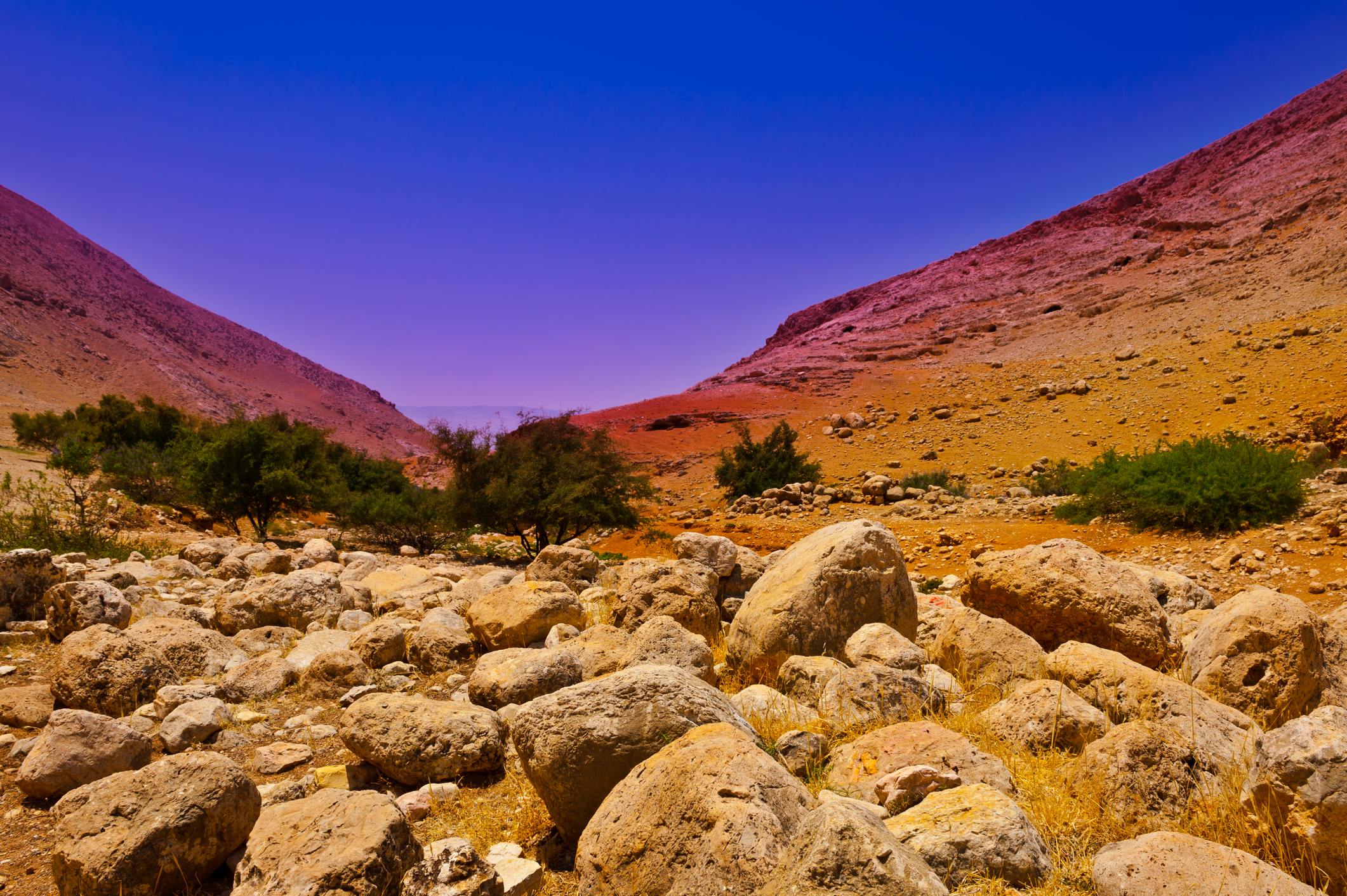
View & Download
So we begin our foray into the book of Micah of Moresheth. The detail is rich. We study how citing that it was "the word of the Lord" was significant. The word of the Lord came "to" various prophets, and is listed as coming "through" some. His vision is for both Jerusalem (and the Kingdom it represented, and Samaria (and the Kingdom it represented as its capital city). I discovered a phrase I love in this study. The word of the Lord is said to come by "the hand of" certain prophets. May it come through mine, both in my studies and the book I am writing. We'll do a special focus on the city of Samaria next time. It is a fascinating story. God bless.
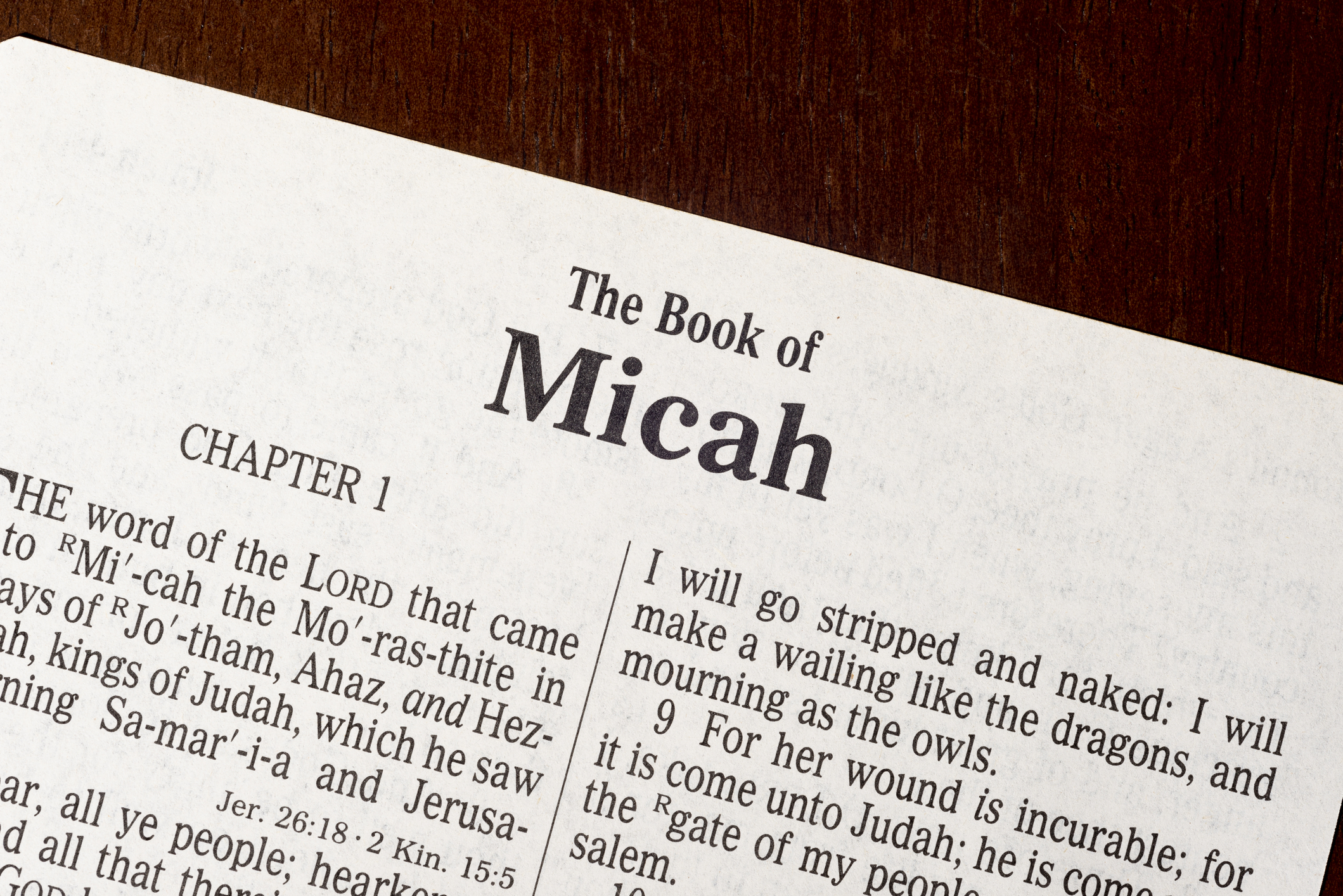
View & Download
So we look at the theme of Micah. He speaks of doom and hope, and he's really reflecting God's words here. Like Paul knew, there is a "sternness" and yet a "kindness" to God. There are things He hates. Things He loves. And it's us He apparently loves more than anything even to the point that He will throw our sins into the sea. I love that God! By the way, He is the only God!

View & Download
So I’m going to look at the style next. Micah has a style similar to Isaiah’s, the NIV Study Bible says. Both prophets use vigorous language and many figures of speech. Here’s one of my favorites. It’s in Micah 4:3. "They will beat their swords into plowshares and their spears into pruning hooks. Nation will not take up sword against nation, nor will they train for war anymore." May God speed that day!

View & Download
One of the major keys to understanding the Bible is understanding the literary forms the authors used. Micah uses about seven of them, and it's been fascinating to review a few. Not all books are to be read in exactly the same way. And the different literary forms gives us insight not only to the thought world of the author, but to the thought world of the Living Word of God who inspired these written words. I thank God for letting me study His word, and to learn so much from it! I love being in "God University." Seems like there is something new or more profound to observe and learn every day! Enjoy.

View & Download
God's word so open your mind to different planes of thought! And the more you learn, the more you burn with a desire to know more, but more importantly, with a desire to be "in" Him more! All life is of God! And all true life is a sharing of God's life and mind and thoughts. Let's share in this deep, deep study of God's word, as we study it from the ground up. Let's grow, and glow, in Him. Enjoy.

View & Download
So Jesus spoke through the prophet Micah. And it was important to Him to speak to this nation, out of which He eventually was going to be born! What did He have to say? What was so frustrating to Him about them? The NIV Study Bible says “Israel was in an apostate condition.” Micah predicted their eventual fall of Samaria, and desolation of Jerusalem. How does all this speak to us as Christians? That’s what I want to know. There’s more to this “reward” thing than we might realize. And we maybe can learn something from this book and God’s words in it.

View & Download
So today, I’ll continue to do the introduction section of the NIV Study Bible as I prepare to read this book. At first, I was not looking forward to getting into the complexities of understanding Israel’s historical backdrop, and then the references Micah would be making. but I was wrong and probably being a bit spiritually lazy. It’s amazing to understand God’s words, no matter when they were given and no matter what you’ve got to do to understand them. To see how the Creator of all the Universe thinks! What could be more amazing than that? Let’s dig in deeper!
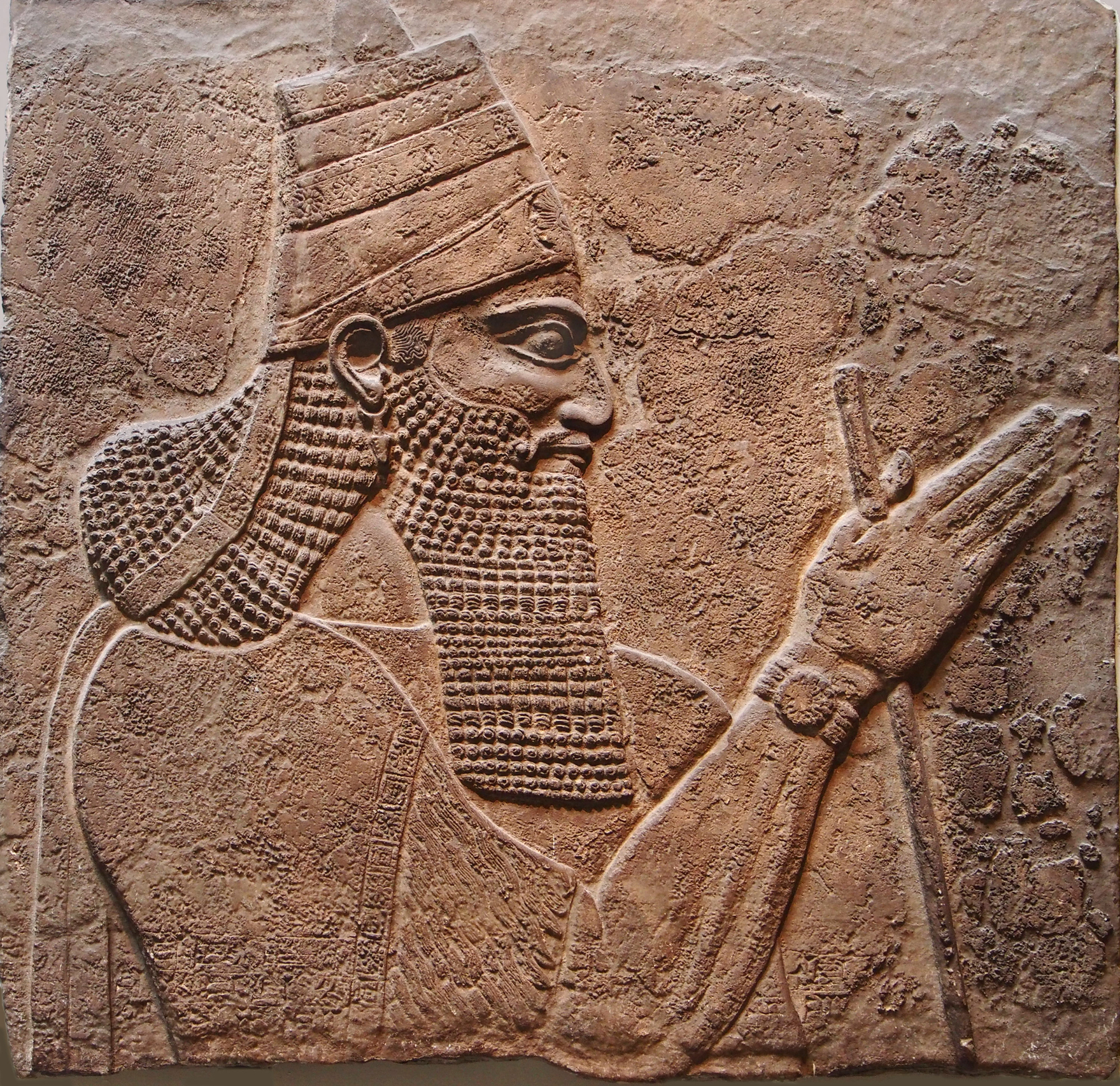
View & Download
Micah of Moresheth---what an interesting name. We know that Jeremiah knew of him. He prophesied in the time of Isaiah and Hoshea. Hezekiah listened to him. Will we? Starting our preliminary Introduction to this study today.
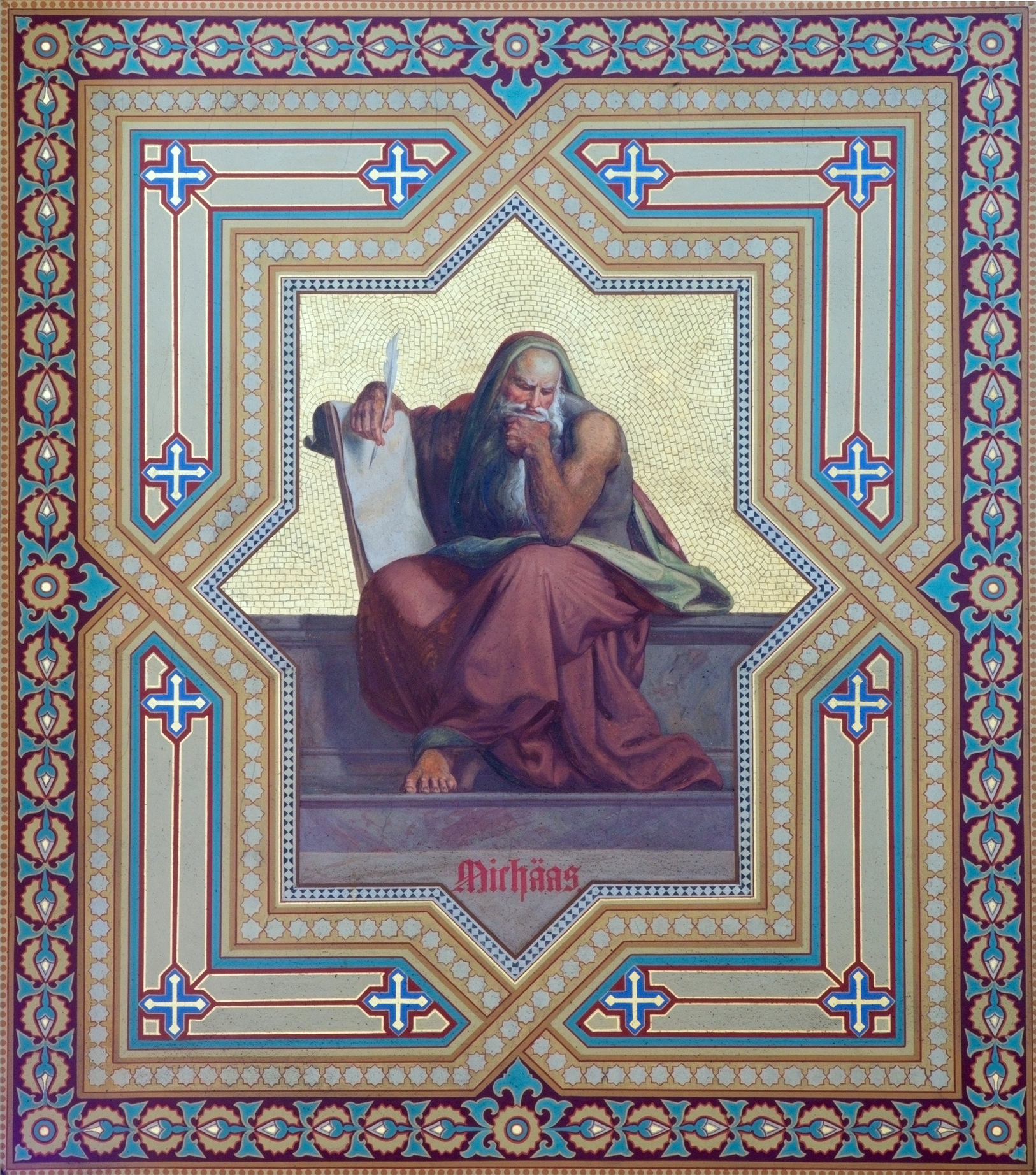
View & Download
Ever said it? I have. Lot's of people have, including many a "weary prophet." Soldiers of all sorts have struggled with that, including those soldiers in God's army. God understands, and will help. Sometimes, things get dark before they get bright again. But the one that has conquered death has conquered all things against us. And He loves all with an unbound and infinite love.

View & Download
So Jonah was sent to Nineveh a second time. I take it from that that sometimes, if you miss your first opportunity to do those works which God has prepared for you to do, He'll come at you again, until you start doing them. And this chapter has a fascinating look at repentance. What it looked like for this city, and what God responded to. Interesting, it notes that He responded for them "turning" from their evil ways. Even the king as proud and scary as he looked. Enjoy!

View & Download
So I'm studying Chapter 2 against the original Hebrew. Some cool phrases emerge. To me the fascination of looking at the literal languages are a joy. They give you such depth of insight, and help you to understand so many things. I pray that whoever reads this gets the same joy of savoring Scripture that I do. Enjoy!

View & Download
So I'm a little compressed for time this week. At a Healing Care Conference on Transformation. So I'm jumping into the meat of chapter 2. I'm revisiting the initial comments I made on the chapter, and then looking up the verses in the "literal" translations that give more "Hebrew" word insights. I'll share more as I progress. Enjoy.

View & Download
I studied Sheol a bit more yesterday, because when Jonah prays to God from the belly of the fish, he says he prays “from the realm of the dead,” which is translated from the word Sheol. It alternately means the unseen realm, and it comes from a root that means “to question,” and is indicative that it is also a place of contradiction, of unexplainable ambiguity, a place where things are unsettled and you are always wondering, “Why?”. I will continue this look at Sheol by looking at other things Sheol is associated with, spinning off the study note in the NIV study bible for Psalm 30:1-3.
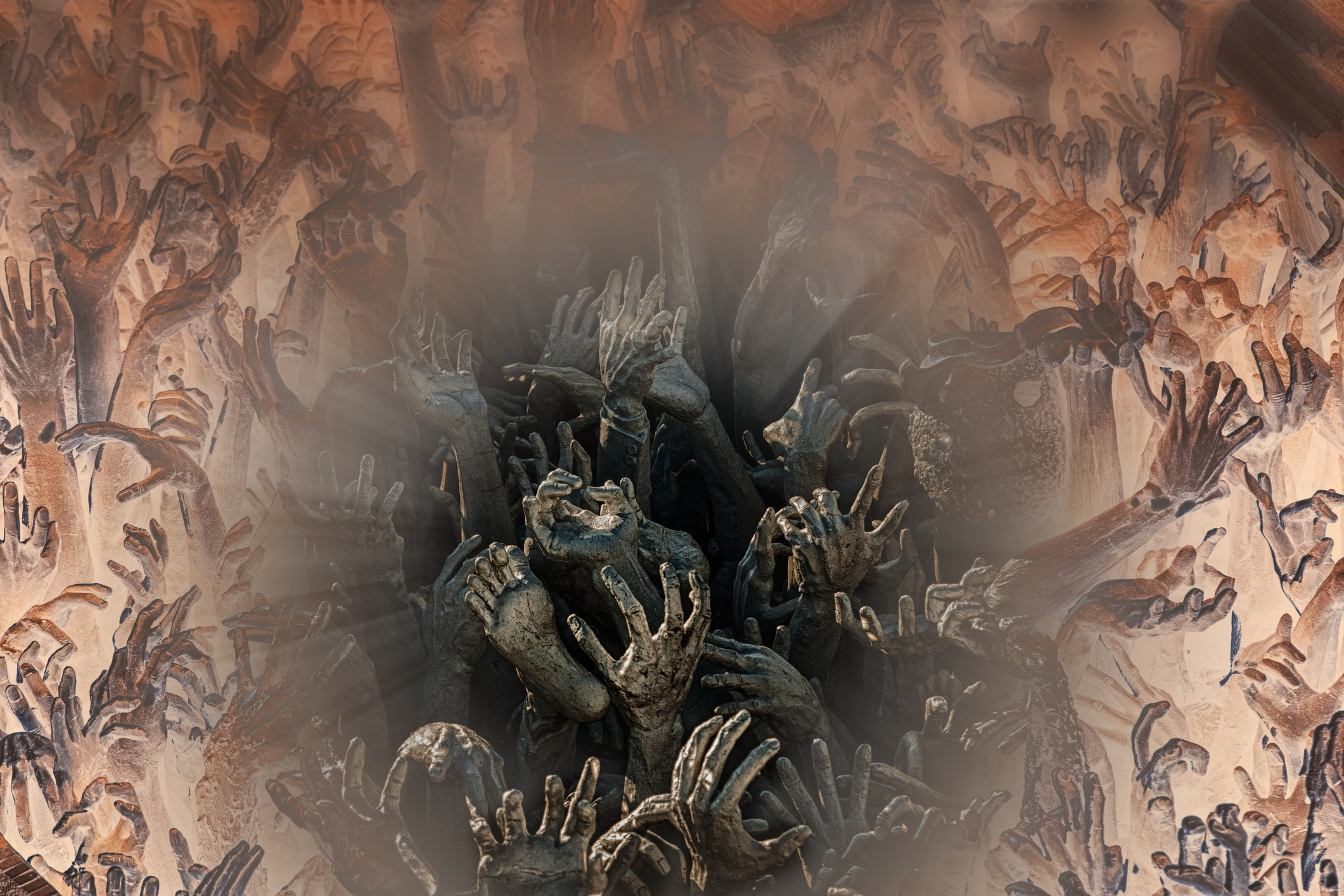
View & Download
So of course I'm on a rabbit trail. And this one is about Sheol, the realm of the dead. Jonah refers to his stay in the belly of the fish like a visit to Sheol, the "unseen" realm. I'm intrigued with the concept, and want to thoroughly understand what the ancients understood about it, and how God used the metaphor. I also want to rejoice in the fact Christ is Risen, and by death He's conquered death. Enjoy!

View & Download
So we get to the part where God provided a "great fish" for Jonah to be in for three days and three nights. We "rabbit trail" a bit into some interesting thoughts about the ancient "sea" monster spoken of in the Bible. And some interesting concepts by popular scholar Michael Hiser are brought up concerning this. God is so fascinating, and His word is amazing. I'm glad He and His Word are in my life.
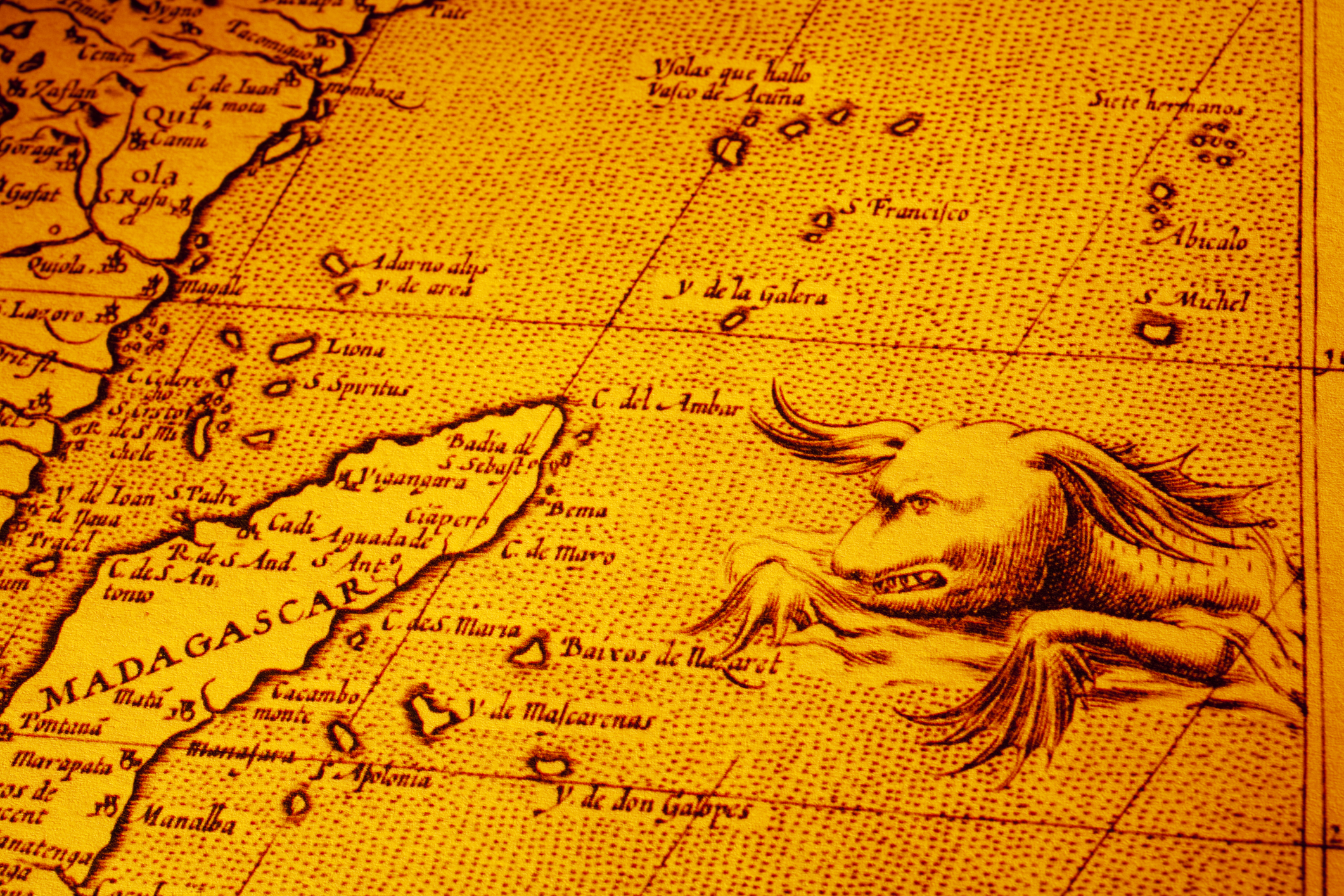
View & Download
So the sailors had no choice. They knew they had to throw Jonah into the sea. Jonah himself had given up. He'd do anything rather than obey God. I love a statement the pagan sailors make right before they throw Jonah in---you Lord, have done what you pleased. How did they come to appreciate that about God? Why have we forgotten that? Our definition of sovereignty has to do more with our sovereignty as a free state. We study a bit about God's loving, sometimes scary, but always God for us in the end good for us Sovereignty. Are you willing to let God be God and not hold accountable to you?

View & Download
How far are you willing to go to avoid God's will in your life? Jonah was willing to go to Tarshish. Then he was willing to be thrown into the sea. He was willing to do anything, except what God wanted Him to do. Where are you on that continuum? Are you running from the Lord, or running to Him---and to His will for you? For Jonah and Moses, it was a matter of do or die. And God still won, in the end.

View & Download
So the Bible study today led to some interesting territory. The sailors on Jonah's boat wanted to know who was his people, and the word for people was interesting---it basically means who you "huddle with" or who is your "herd" or "flock." But we got into the term Hebrew, and it's ancient roots are revealed to have some disparaging associations. The NIV Study Bible brings out things about how it conveys a "rootless" and homeless people from across the River. And it conveyed a contempt. Where does racism come from? What evil part of our nature stirs it up? It certainly wasn't that way from the beginning!

View & Download
What a fascinating custom! The custom of dice and casting lots is spoken of in several places in the Bible. We spun off today on a little rabbit trail studying where it occurs. And there are fascinating implications. The Roman soldiers cast lots for Jesus' outer garment. The 11 remaining disciples cast lots in the Lords presence to determine who would replace Judas. Priests used lots legitimately "in the Lord's presence." It's felt now that Holy Spirit guided discernment has replaced this custom. But I kind of, sort of wonder if in some cases, it still might not work! Enjoy.
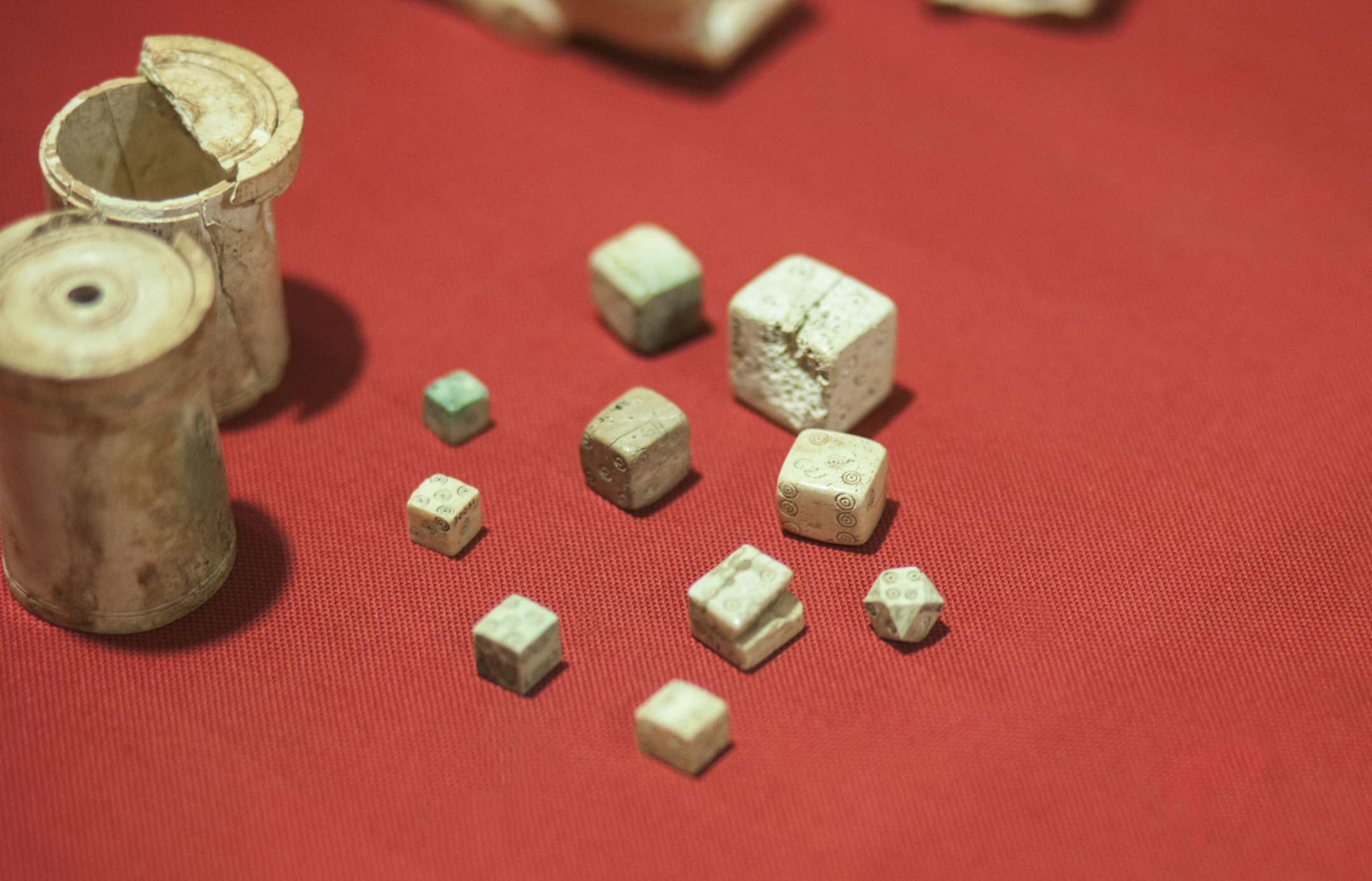
View & Download
We'll do a brief comparison today of Jesus sleeping on a boat, and Jonah's nap. We'll cover it more in depth next time

View & Download
I'm watching the movie "Casablanca" in bits and pieces before I go to bed. It's an amazing movie, filled with all kinds of one-of-a-kind characters. Set in World War 2, of course the Germans are depicted. And the horrors and brutality of the concentration camps come to mind, and the atrocities committed there. And it's the story of people looking to find refuge in the Americas. Does God take not of these things? The city of Nineveh, to whom Jonah was sent, committed its share of atrocities. And the evil of this world does come up to the Lord. And God responds. I wonder how God is feeling about the evil of our day. I wonder, when it's all said and done, what His version of our history is going to look like. Are we looking for refuge in our place of freedom, Jesus? Play it again, Sam. Play it again. The fundamental truths do apply --- as time goes by. Enjoy the study.

View & Download
Whatever else this story is about, it’s got a larger meaning. We all are swamped by the sea of chaos. The great “deep” has threatened existence from the very beginning. But the “Word” of God, Jesus, always resurrects us, always says us. Always says “Let there be light!” Genesis 1:3-4 3 And God said, “Let there be light,” and there was light. 4 God saw that the light was good God decided to save us long ago, from before the foundation of the world. He uses us to be channels of that message of salvation to others as well. Are you running toward that mission, or running from it?

View & Download
Without further ado, let’s get into this marvelous little book. It’s only 40 verses long. Just let me include few more comments from in a short introductory wrap up. The Study Bible notes say that “in its scope (a single extended episode), compactness, vividness and character delineation, it is much like the book of Ruth. The author uses structural symmetry. Part 1 (Jonah 1 and 2) could be headed “Jonah Flees His Mission.” Part 2 (Jonah 3 and 4) could be called “Jonah Reluctantly Fulfills His Mission.” I’m still intrigued with the parallels to Jesus in this story, not just in the three days and three nights aspect, but in other aspects as well. In this story, God shows His concern for the whole creation, and shows His involvement in places and spaces different than what you might think! So let’s join Jonah in His spiritual journey.

View & Download
So the NIV Study Bible Introduction to Jonah emphasizes how ministries of earlier prophets illumine the ministries of later prophets. It gave as an example Moses as illumining the future ministry of Elijah. I found a source that compares the parallels between the two ministries. This is a longer than usual study, but it makes for an interesting read. Jesus was spoken to by Moses and Elijah in the transfiguration (Matthew 17:3). In this historic painting, it seems as if He's drawing a parallel too! Enjoy
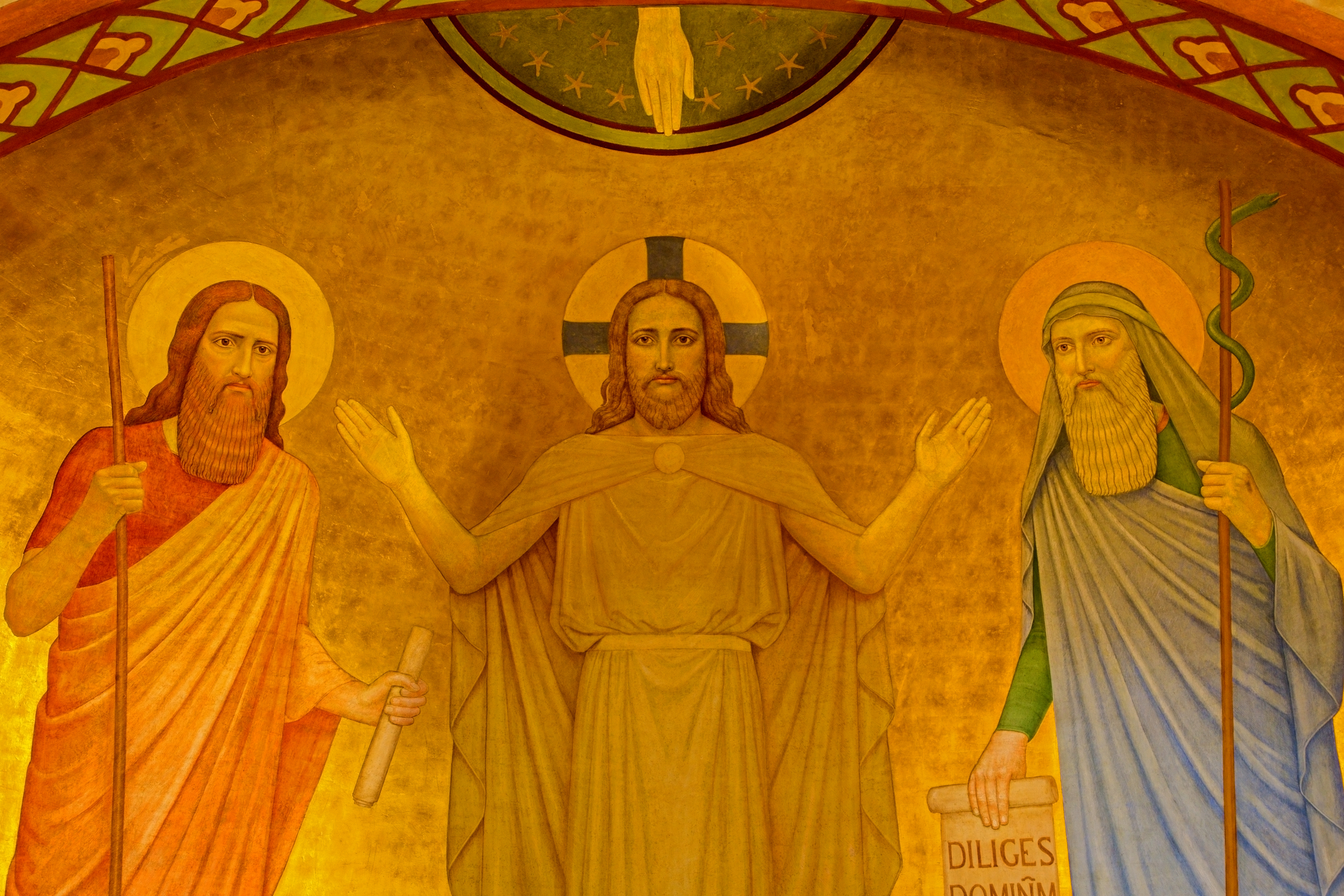
View & Download
So we get now into the discussion as to whether this is a historical book, a fictional short story with an important point to make, or a parable. All three have been suggested. The thought is that the story is too "fantastical" to be believable. But Jesus speaks of this story as if it were real---or is Jesus just quoting elements of the story to make His points. If I told someone God is like Santa Claus, He gives us "gifts" to be unwrapped---would that mean I had to believe in Santa Claus? But on the other hand, I fully believe in God's ability to miraculously create a fish that could keep Jonah alive for His purposes. What do you think?

View & Download
Somehow, I rabbit trailed onto the Lost Ten Tribes of Israel in this Study. Where did they go? And also, did Israelite prophets really interact with Gentile nations, like Jonah was supposed to have interacted with Nineveh. Interesting considerations in this study. Photo credit:By Joelholdsworth - Own workThis W3C-unspecified vector image was created with Inkscape ., CC BY-SA 3.0, https://commons.wikimedia.org/w/index.php?curid=2131901
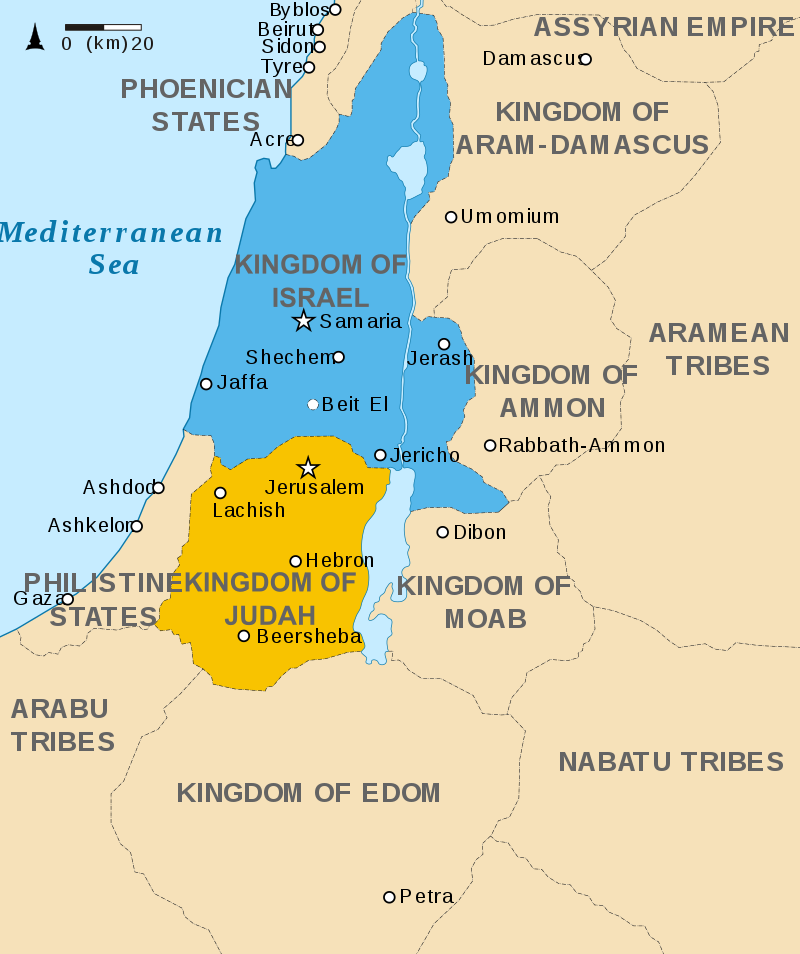
View & Download
So in this introduction, we continue to understand the background of the time when Jonah preached. A lot was going on. Israel, a nation supposedly of the "religion" of the true God, had grossly compromised that religion. The result was a complacent, smug, profaned version of spirituality that God actually got angry about. Doom and exile were coming. But a reprieve had been granted, one that gave them a false sense of complacent security. It was during this time that God sent the "run from God" prophet to Nineveh, a Gentile city no less. God is involved with everybody. And we've all got a role to play. Run toward God, not away from Him! Enjoy the study.

View & Download
That's a macabre title. But in studying the introduction to the book of Jonah, it spoke of how his life paralleled the lives of other "weary" servants of the Lord who'd either wished they were dead or wished they'd never been born. Even Jesus was sorrowful sometimes, even to death the Scripture says. So if you've ever gotten there, you're in very good company. And the God, who's given you life, has great plans for you. And deeply appreciates the sacrifices you've made to be especially close to Him, like the prophets. Don't let complaining people who still need to mature in their relationship with the Lord get you down! God's got your back. And theirs too!
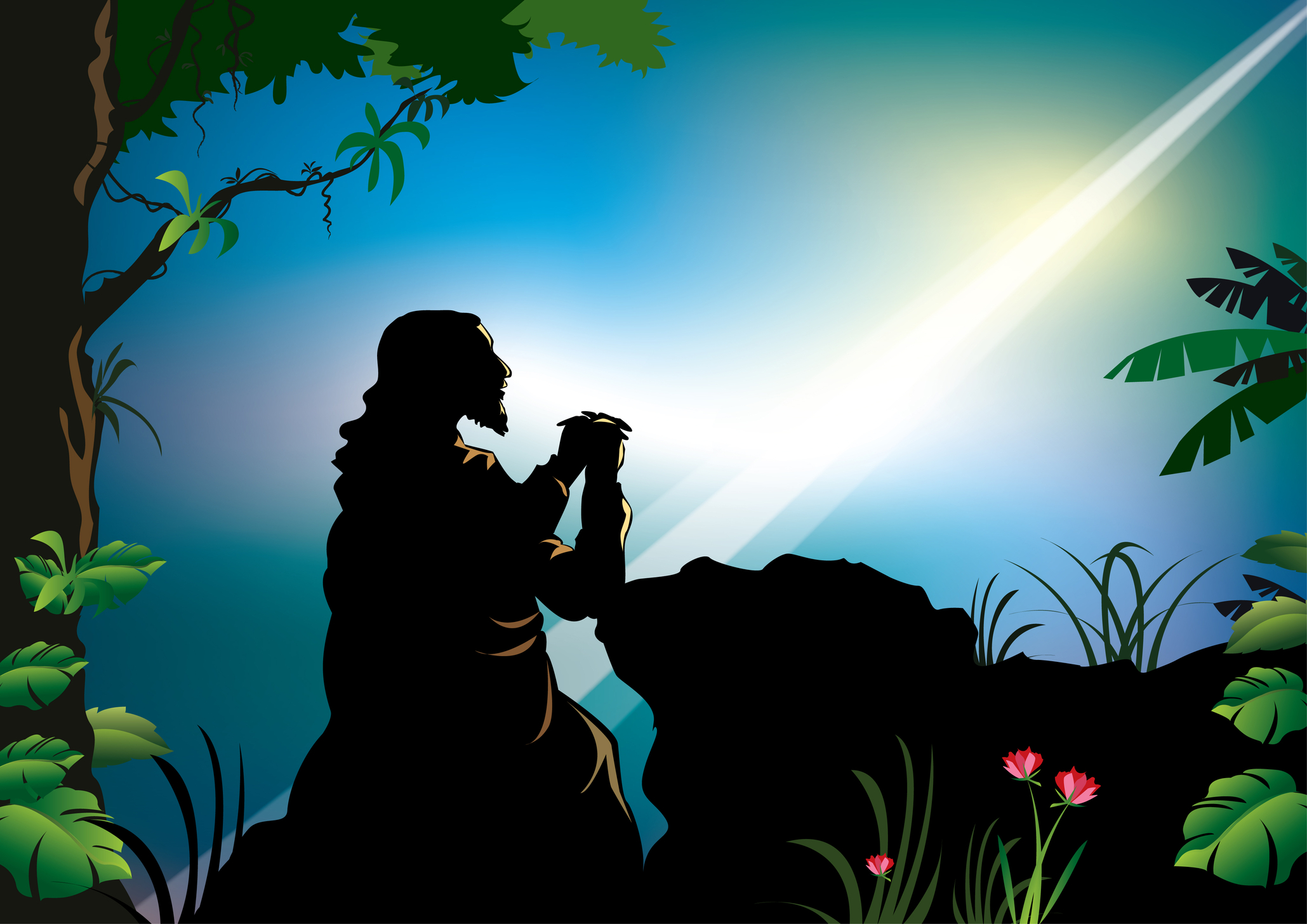
View & Download
This is going to be a really cool read. There are many comparisons that crop up about Jesus in this book. But there are also comparisons I never knew about between Elijah and Elisha and Jonah as an anti-Elijah and anti-Elisha. Those two prophets stand in the presence of the Lord and one even runs to the presence of the Lord in Mount Horeb. But Jonah tries vainly to run from the Presence of the Lord. How do we respond to the Presence of the Lord? Do we run from it, or to it! When you really see Jesus, you'll run toward Him! Interesting stuff ahead!

View & Download
So we finish today looking at this book, and of interest to me is the way God reassigns Edom's property. I'm also intrigued with Esau's bitterness and anger. Even though he seemed to have reconciled with Jacob his brother, something about his bitterness continued on in his descendants. And I couldn't help but wonder if unacknowledged sin played a part in his having somehow transmitted this bitterness to his descendants. It hurt him. It hurt them. Seems like everyone lost on that one!
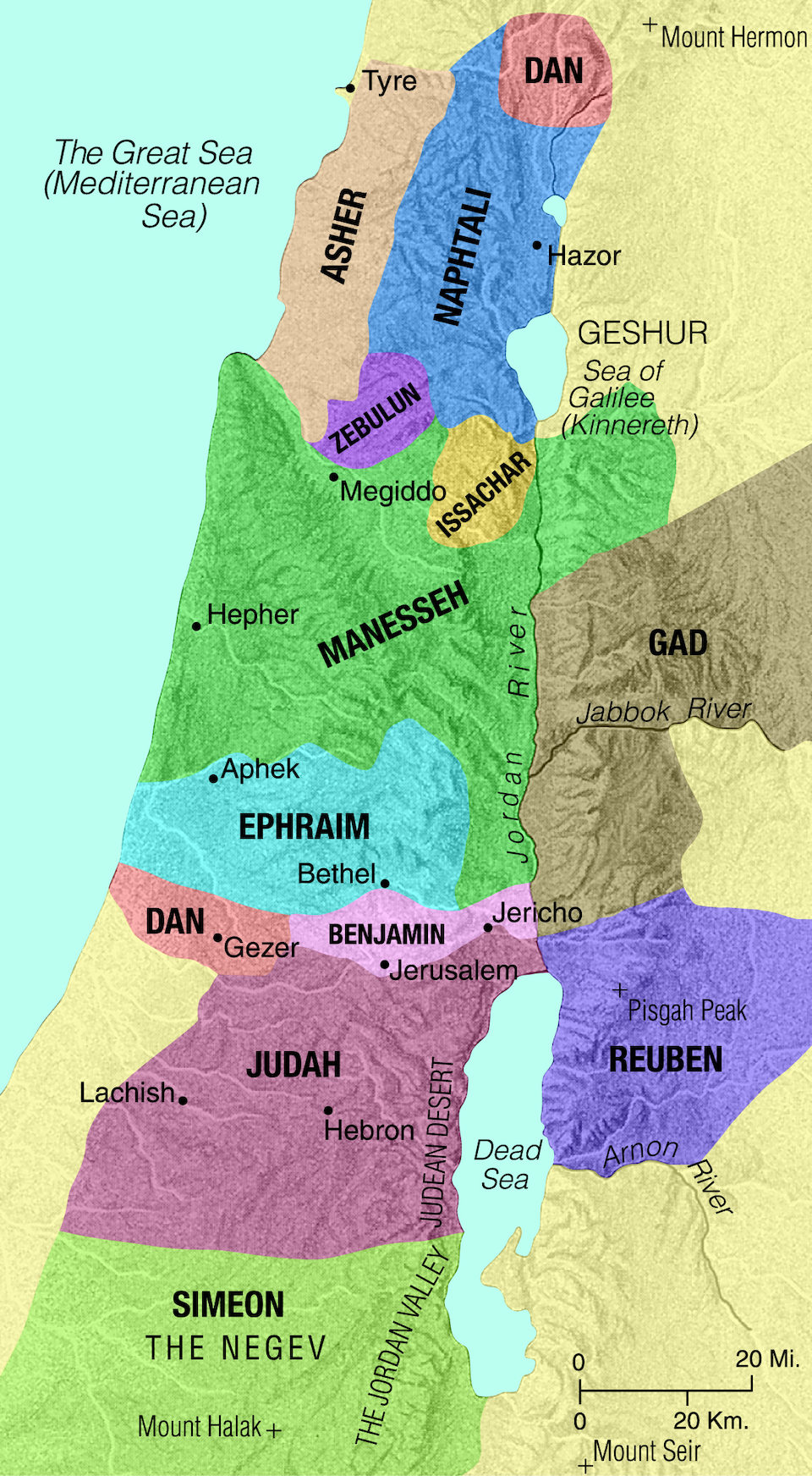
View & Download
"Jacob will be a fire and Joseph a flame; Esau will be stubble, and they will set him on fire and destroy him. There will be no survivors from Esau.” That's one of the verses in this chapter. You’re either fired up and made to be “fire starting” glow by your relationship with the Lord, or you consumed by the consuming fire the Lord is. God will avenge us. But He doesn’t like it when we avenge ourselves. Romans 12:19New International Version 19 Do not take revenge, my dear friends, but leave room for God’s wrath, for it is written: “It is mine to avenge; I will repay,” says the Lord. You can count on that promise.

View & Download
Obadiah joins other prophets with a royal "we" in verse 1 in a prophecy to Edom, Israel's negligent brother. She trusted in her mountain heights and in her wise men. But she was going to be brought down. The main cause was her hostility to Israel, and actually here passive acceptance of her destruction. As a brother nation, Edom should have responded. God had hope for her, as He does all His people. One day, Edom will seek the Lord. But it's going to take quite a bit for her to get there. But one day all will reach out and find Him. In the love of our Lord, Jesus Christ. Interesting side study on the way prophets often have few friends. Enjoy!

View & Download
How many times do we stand aloof, when atrocities and humiliations are inflicted on others? How many times do we turn our head the other way, and continue to fraternize with those who commit such crimes? Pontius Pilate tried to. I wonder if the "stain" of guilt ever washed away? This book is going to be a fascinating read. Enjoy!
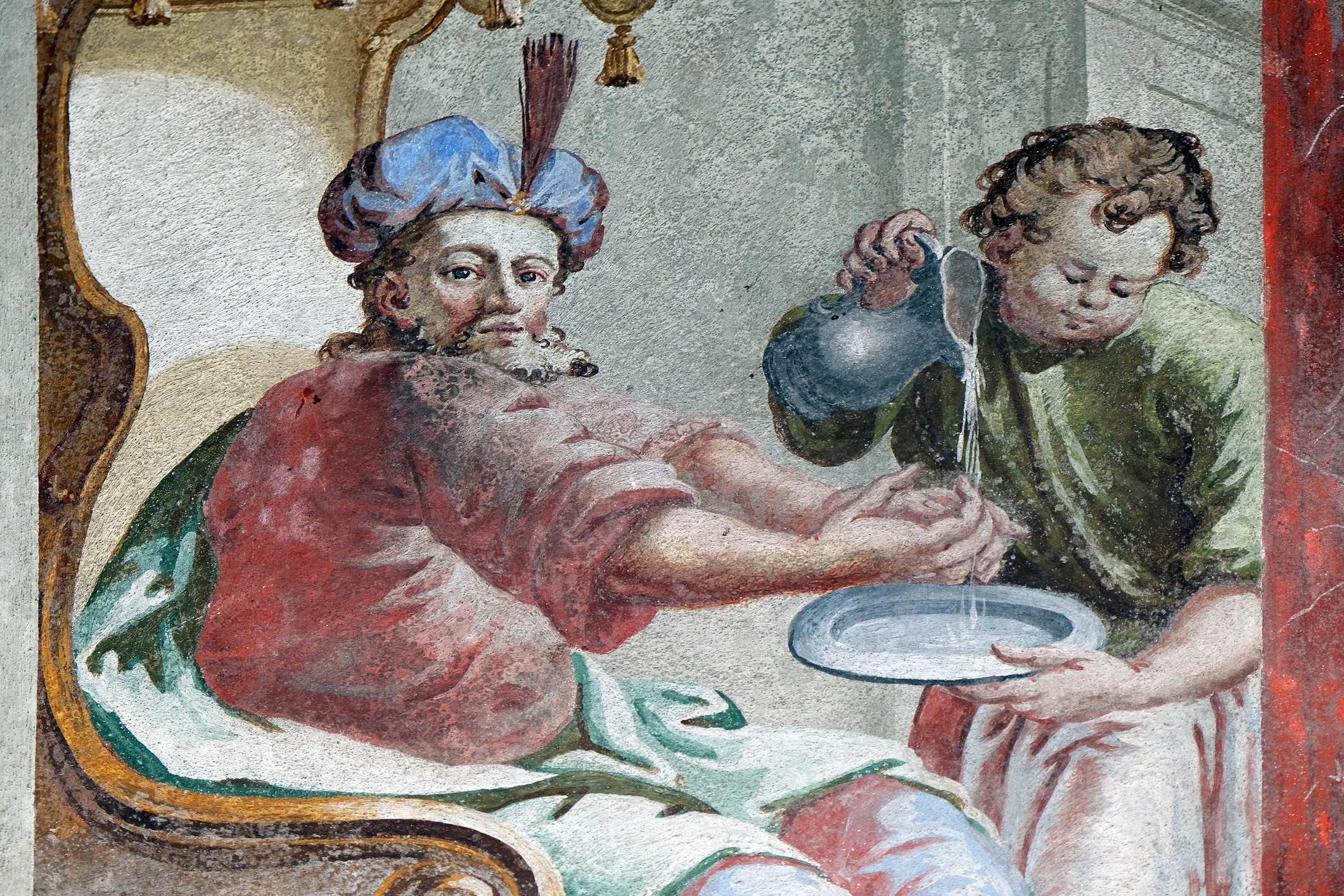
View & Download
This is the shortest book in the Old Testament. But it's chock full of interesting things. One "rabbit trail" I've gotten on today is the historic relationship between Israel and it's "brother" nation, Edom. It's a fascinating story of two brothers who the Hebrew seems to imply even bruised each other in the womb. Why don't siblings get along? Satan's infection of human nature, plus the sheer reptilian side of our being, surely has something to contribute to all this.

View & Download
Obadiah's name means "servant of God." There are about 13 of them in the Bible, and this Obadiah was a prophet who has specific things to say to the little kingdom of Edom. Edom was descended from Esau, and was, in effect, a brother kingdom to Israel, the descendant of Jacob, their shared father. Edom does something particularly hateful that God calls out. He stood "aloof" as his brother, Israel, was being pillaged and destroyed. He pretended, perhaps, not to see. Or worse yet, he gloated. God didn't hold him faultless for that

View & Download
There is something called the Sigiriya Lion Rock fortress in Sri Lanka. It's a towering rock, on top of which was a city, and a formidable geographic place of protection for an ancient king. After this king died, the fortress was abandoned. But our Rock remains. Jesus not only has been our Rock, our Shelter, our Hiding Place for all history---He's even more so now that He's become one of us and gives God perfect responses on behalf of us all! Blessings await. God has hope for all of our lives. Be safe in Him! Live in joy.

View & Download
We live in God. And He is our hiding place, our shelter! Psalm 32:7 Thou art my hiding place; thou shalt preserve me from trouble; thou shalt compass me about with songs of deliverance. Selah. Chaos surrounds us, threatens to overwhelm us. But we need not fear. God is near. God is here. He's in us. We're in Him. Rejoice!

View & Download
God was not opposed to using the popular culture's imagery in His word. He spoke of creation-myth "sea monsters" that apparently were destroyed along with chaos, according to Near East creation stories, by the creator-god in the story. Of course, our God is the Creator God. But He's not opposed to communicating poetically and make lavish use of the language of the day. In this chapter He is bent on finishing Israel's disciplinary punishment. But He's also bent on restoring her too. Enjoy!

View & Download
So this chapter describes something right in its middle that sounds just like the death of Jesus---or at least, a lot like it. I know some believe all prophecies have been fulfilled in Jesus. I don't know if I completely agree. But are all punishments fulfilled in Jesus? That would be intriguing if it were. There's "climate change" with all its dire warning. But there's Jesus change, which has "greened" us all. What freedom we have---in the life of Jesus!

View & Download
Perhaps you remember Billie Holiday, legendary vocalist, and her song "Strange Fruit." She was talking about the horrific lynchings that took place in parts of our country, and the "bitter" and strange fruit of the dead bodies on the trees on which people were hanged. God speaks of some "strange fruit" in this chapter. The fruit of Israel's sin has come full circle. It's ripe, and ready for harvesting. God loves His people. So much so, He's willing to discipline them and allow them to suffer loss in this world, so their spirits will be saved in the day of the Lord Jesus. Fascinating stuff in this chapter!

View & Download
So have you ever heard of the Cosmic Christ? Richard Rohr talks about Him a lot. He speaks of the "first incarnation" as taking place in Genesis 1, where a place and space was generated by God in His Son Jesus for all to be created! I went on this rabbit trail because Amos sees God forming a swarm of locusts. And I not only read, but felt God's creative energy and Word generating all things and us all. How were loved by Him The Hebrew word for "forming" implies squeezing something into existence. Like a potter squeezes a pot out of clay. Enjoy.

View & Download
I'm intrigued that Christ gives all things "mass" hence when I hear the word "Christmas" it means more than just a service for the birth of Jesus. It means everyday God is holding all things together in Christ. He loves us that much. Israel is becoming undone, though. And there spiritual smugness and complacency has a lot to do with it. They are oblivious to the will of God, much like many in our generation. I can't help but think about our luxurious lifestyles and complacency spiritually. Will God call us to account for this? I think so. Even though He's punished us in Christ for this, I do believe we're still going to have to confess and possibly make amends---if not on earth, at least in Heaven. It will be a time of tears. But also a time of katharsis.

View & Download
So what if the universe as we know it started unraveling? What if time and space simply became "undone" and heavenly portents and signs started the complete destruction, the complete unraveling of the universe? The Day of the Lord spoken of in the Bible seems to speak to that. But the Resurrection from the Dead of Jesus Christ seems to say "No!" to that for eternity. These and other concepts are discussed in this and the previous study from the phrase "The Day of the Lord" addressed in Amos 5.

View & Download
Can't you just see the sincerity in Amos' face in this photo. He taught so many beautiful things. We saw so much last time. Those who turn justice into bitterness also throw righteousness to the ground. I think that is a profound translation. You can want “justice” so much it becomes a point of bitterness (wormwood). I’ve seen that happen---how people become bitter, and sadness and hurt ensue. In a culture where those who speak righteousness are often condemned, I found this advice insightful. 13 Therefore the prudent keep quiet in such times, for the times are evil. There is a time to speak up. But there are also times to keep your mouth shut. Let’s see what else there is to learn.

View & Download
So The Lord is to be sought! Seek me, He says, and live. We are to “seek” the Lord. “Seek” Him! Even the place where He puts His Name. Seek Him. We are to tread and frequent the home of the Lord. We are to search for Him. Seek Him. Ask for Him. Seek His counsel. We are to: (CLV) 1Ch 28:9 . . . know the Elohim of your fathers, and serve Him wholeheartedly and with a delighting soul. . .If you |seek after Him, He shall be found by you; +but if you |forsake Him, He shall cast you off for the future. So God’s advice to Israel in the last chapter was to “Seek the Lord, and live!” or He will sweep through them like a consuming fire. Our God is a consuming fire. Let’s see what else there is to learn from the God who made Pleiades and Orion.

View & Download
I had several takeaways from the last chapter. Israel was going to be like a person who falls and no one is available to pick her up. Like an old person without a life alert, and no one to rescue her. She was going to fall lone, and no one would be there or able to save. She would be diminished to a 10th of what she’d been. And she was encouraged: “Seek me and live;5 do not seek Bethel, do not go to Gilgal, do not journey to Beersheba. For Gilgal will surely go into exile, and Bethel will be reduced to nothing.” So don’t worship at your “cultural” expression of my religion, which a wrangled up mess, anyway. Seek me, He says, and live. I’m going to continue a word search of the concept of seeking the Lord, then move back into the chapter as time permits.

View & Download
My key take away from the last chapter was this: “God reveals His thoughts to mankind.” Who is this God? He’s the One: who turns dawn to darkness, and treads on the heights of the earth— the LORD God Almighty is his name. In this chapter, God reveals His thoughts to Israel. What kind of thoughts did He reveal to this nation? Would we find His approach acceptable? Would that matter even? God, after all, is God. Prepare for some insights as to how He thinks.

View & Download
So they prayed and paid, but their compartmentalization of doing “good” by simply praying and paying for others just wasn’t enough. Like the Pharisees, they did what they “for people to see.” God had used natural disasters in the past to discipline and warn His people. I wondered whether God still does that today. While I didn’t come to a dogmatic conclusion, I did find instances in the New Testament where God punished people pretty severely to uphold respect for His Spirit and the seriousness of what was to be kept holy in the church. No nation that I know of today has entered into a covenantal relationship with God. Our nation has declared its independence from what they considered tyrannical rule. It is founded on an individual’s free choice of worship. But it’s not a relationship that has been covenanted with God. So I can’t say that we are “the new Israel” and subjected to covenantal retorts by God. That being said, God is free to be God. Like He did with Herod. Let’s pick up where we left off.

View & Download
So we're going to read in this chapter about natural disasters that apparently were more than just natural disasters. They were intentional acts of God to lead Israel into repentance. Israel had entered into an agreement with God. She promised obedience. God warned what would happen if she disobeyed. Now personally, I don't think this is what God really wanted of humanity. I think He wanted us to live by the tree of life, deeply rooted safely in Him, which to me pictures simple trust and reliance on God, not on knowledge of God and evil and our ability to perform. But humanity is stubborn. We have to learn the hard way. And Israel suffered as the example nation to show the world this way doesn't work. It's fascinating to read this things. Enjoy!

View & Download
So we will now begin chapter 4. Israel is particularly focused on in this chapter, and the women of Israel, called “cows of Bashan,” are specifically mentioned. Upper class women are compared with a particular breed of cattle that were raised and pampered in the pastures of the northern Transjordan (according to the NIV study Bible). It’s not sure whether the metaphor is meant as an insult or as an ironic flattery. Times were different then, and it’s funny how direct and almost verbally sharp the prophets speaking on behalf of God could be. And I don’t rule out that they were speaking under divine inspiration. Jesus called Herod a “fox.” It’s in Luke 12: Herod wants to kill you.”32 He replied, “Go tell that fox, ‘I will keep on driving out demons and healing people today and tomorrow, and on the third day I will reach my goal.’
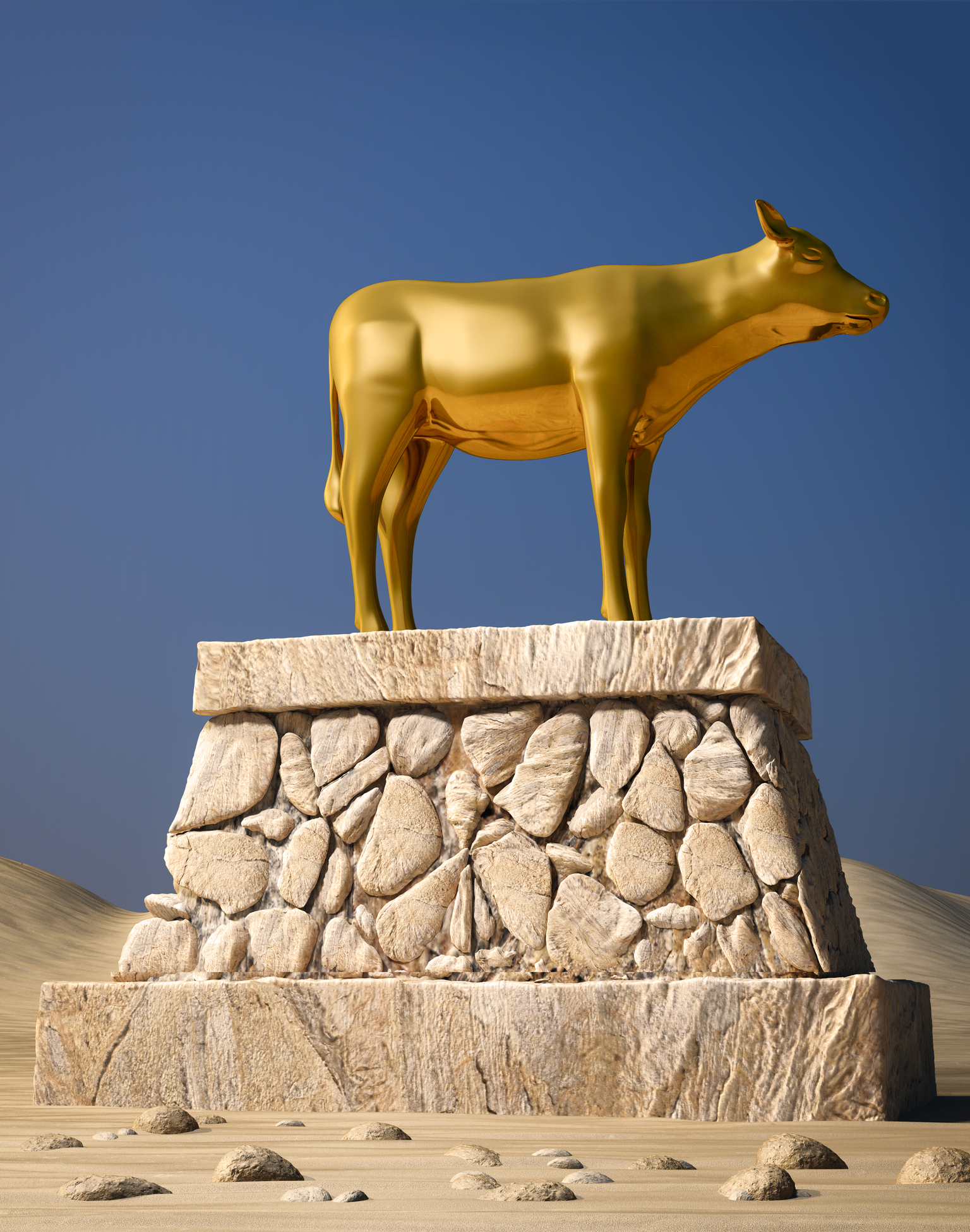
View & Download
The people of Samaria, Israel, lived in such luxury. They even had ivory inlaid palaces and furniture of all kinds. Yet, they did not consider the poor in their luxury. God held them accountable. We'll see that in this chapter, and in the next. They're national death was pending. The vultures we're already beginning to circle.

View & Download
So we will now begin chapter 3. One thing that amazes me as I study these passages in the Old Testament is how thoroughly Jesus, the apostles, and the early church fathers read them. As you read the things they taught, you can sometimes get a hint as to what scriptural precedent they were basing their teachings on. For example, Christ once said “From everyone who has been given much, much will be demanded; and from the one who has been entrusted with much, much more will be asked.” (Luke 12:48) Amos 3 opens up with God saying “You only have I chosen of all the families of the earth; therefore I will punish you for all your sins.” (Amos 3:1) Israel was indeed given a special, unique relationship with God no one else had. Much was required of her too. Let’s see what we learn today. Enjoy!

View & Download
We wind up our study of this chapter seeing what would happen to the Israelites for their sins, which, by the way, are a lot like ours. They lived luxuriously, but did it on the backs of the poor. They didn't offer the poor a way out, and basically disregarded them. They would not be able to stand in their final tests. But we can, as we fight with the Word of God (Jesus) and the words of God at our side and in our hearts.

View & Download
So the concept of profaning God's Holy Name came up in this chapter. And I've gotten on a bit of a rabbit trail about the concept. The Semitic word for name was way more than just what someone was called. It has to do with what they are, their power, their presence, their character. It was a force unto itself and could not be separated from the One it described. God's thunderous, powerful name means way more than we allow. How carelessly it's used on our society. There is power, apparently, even in the name of Jesus! That power is for me and you.

View & Download
So we learned an interesting concept yesterday. In the ancient Semitic world “name” often stood for the essence of the thing named. God’s name is equivalent to His Presence. We also did a study on the use of the phrase “God’s name” in the Law. There are a few references in the prophets we’ll pick up on next. God’s name is equivalent to His presence. It just occurred to me, we pray “in Jesus” name! So God’s presence is not only near us, but with us and in us. The more I learn about Christianity, the more I learn it, and life in general, is all about Christ. He is the firstborn of all creation. In Him we all live and move and have being. We are His brothers. He is our brother. And God is our Father. We bear His Holy name! To God be the glory, and us be the joy of sharing in the very life of God. Enjoy
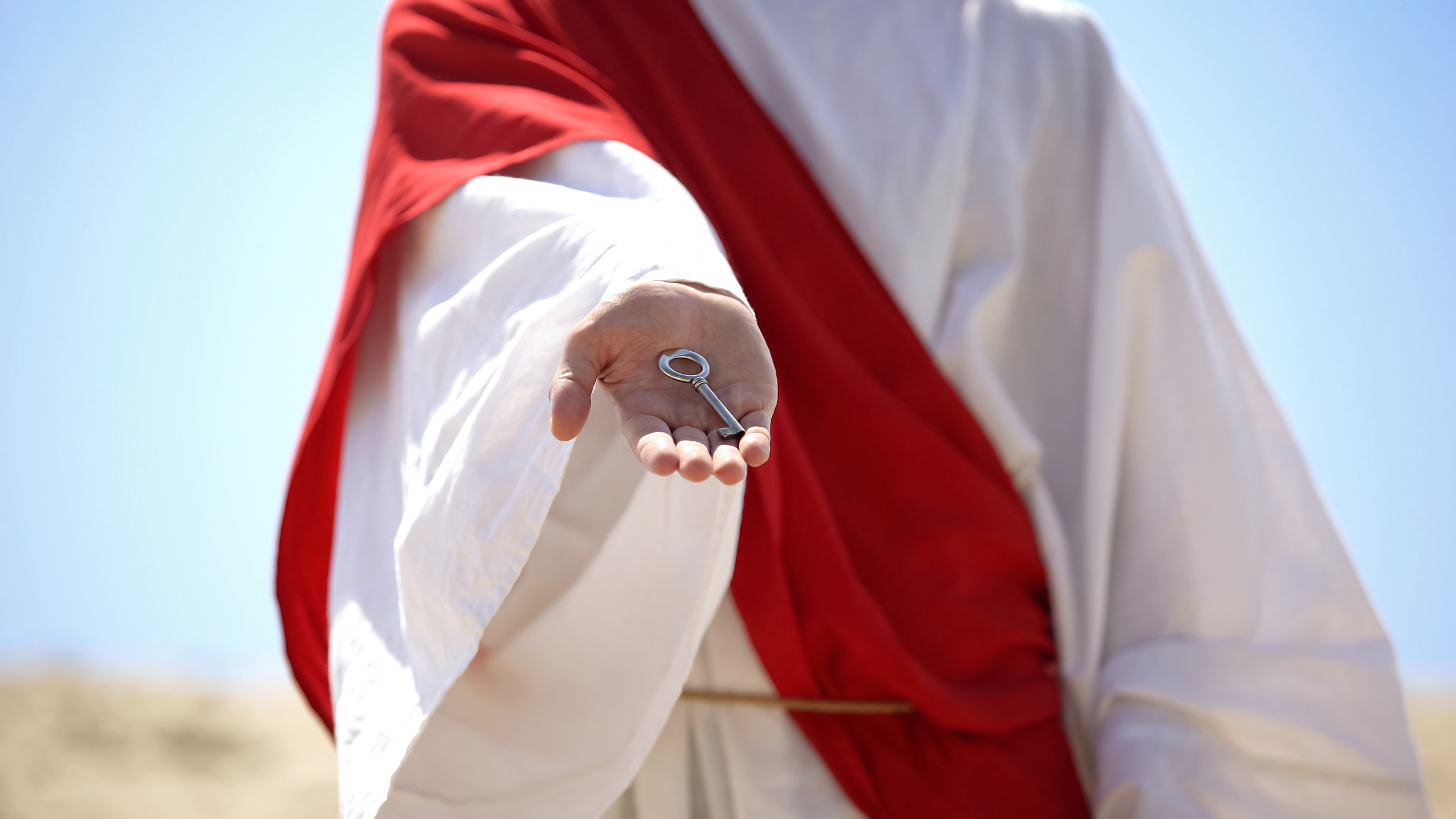
View & Download
God had a special love in His heart for the poor and the needy. It struck me today as I was reading this portion of the study of how the nation of Israel was being chastised for obstructing the way of the poor. I've engaged in some very meaningful discussion with some of my black brothers in Christ, and have come to see how unfair practices have indeed obstructed their way. And I also saw how at least some enlightened Christians are working together to make a difference and make their way better. I can't help but think that God is pleased with that! But if you are one the abused ones who've been trodden over, be of good cheer. You've got an amazing advocate in God!

View & Download
It's interesting to read this chapter and chapter 1 slowly, multiple times, and analytically. Fire is associated with judgment. It seems retributive in some sense but purifying in another. Do you realize that the same concept makes its way into the New Testament, and our lives will be "salted" with and purified by fire? God is amazing! Enjoy

View & Download
I revisited Edom's proclivity to harbor bitterness and discussed God's approach to vengeance. I observed how God may punish one nation for its sin, and yet hold another nation accountable for sinning against it! I read about the horrors of ancient warfare, and pray for the day when war will be no more. I love to live by every word that comes out of the mouth of God and to learn it and feed on it daily. I love reading the Scripture, "From the Ground Up."

View & Download
I love making cheesy rhymes that convey simple truths. In this study, we look at the results of a nation that inherited a very bad tendency from some bad spiritual roots ---the bitter root of simmering and stewing over the legitimate wrongs you've suffered from your "brother" humans. God holds this against the nation of Edom, descended from Esau, in this chapter. And I daresay, He might hold it against us if we take this path. Let the living waters flow, and cleanse out any potential harbors of bitterness in me and you.

View & Download
So Satan sifts God's people like wheat, and Damascus sledged God's people, running roughshod over them and breaking them down. God did not appreciate that in them, or in us. We get into some interesting word pictures describing what God hates and punishes for. I'll work my way up to the section on Edom today, and explore more tomorrow.

View & Download
Have you ever been threshed? I remember Jesus told Peter one time, "Simon, Simon, Satan has desired to have you, so he might sift you like wheat." (Luke 22:31) Well, Damascus apparently "threshed" the land of Gilead (Israelite territory) with a sledge. Although the photo below doesn't show it, there are some sharp teeth on the back of these implements. God cares about His people. He doesn't want bullies threshing them.
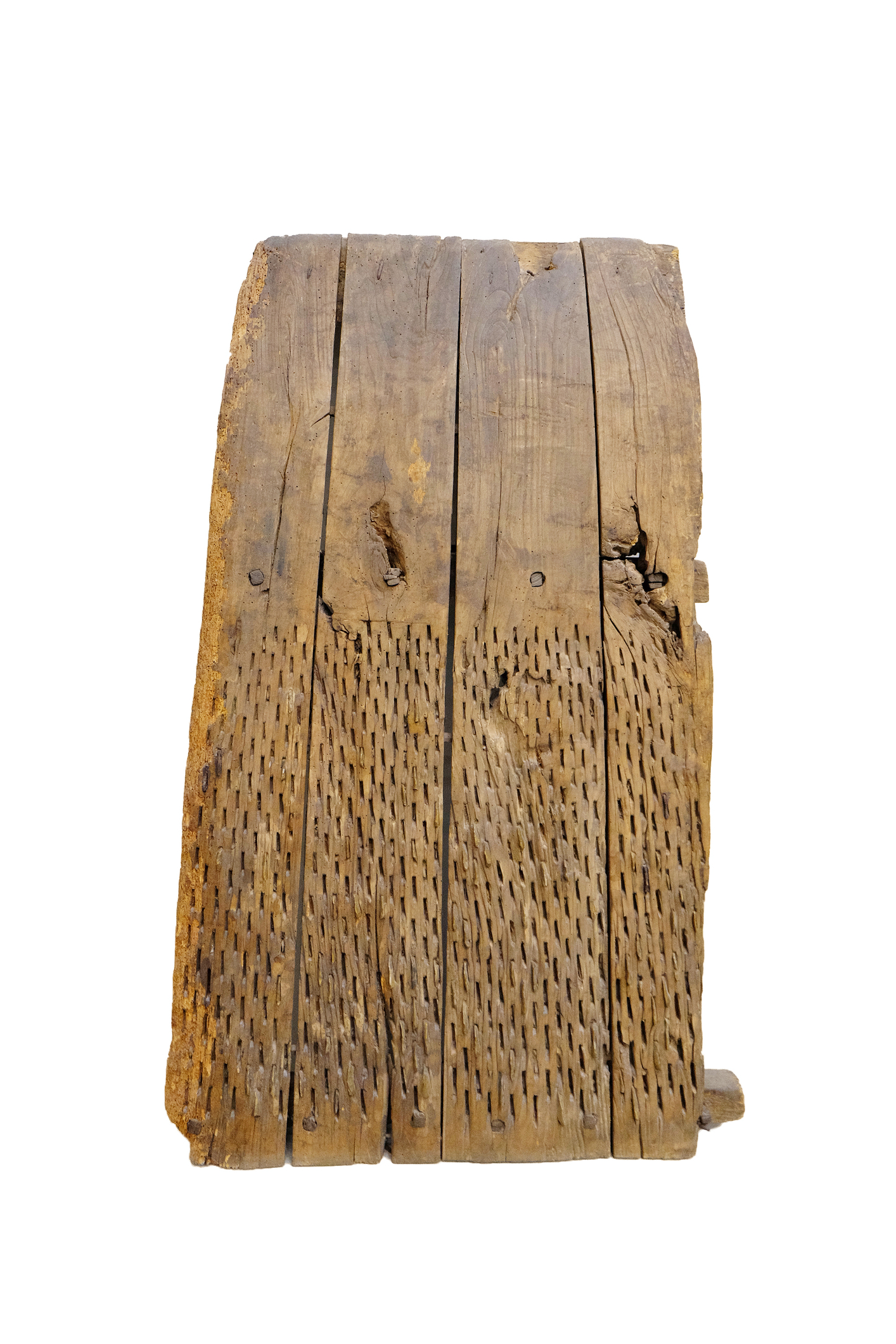
View & Download
As we finally get into the meat of this book, we see motifs this Shepherd Prophet uses. He warns the "sheep" of the land that a lion is en route. He addresses all the nations of the Holy Land. He holds them accountable, and has personal things to say to each of them. It reminds me of the Scripture in Hebrews that says "whom the Lord loves, He chastens." Apparently, His love for these people is enormous, because they are truly about to get chastened.

View & Download
So this final wrap-up of the NIV study bible introduction gets us into a larger theme spoken of in Amos. How God is the king of all the Universe and has a much greater plan in mind than one just dealing with Israel. Israel is unique, to be sure. But the scope of God's work is greater than just her. There are some beautiful Scriptures in this one that speak of the scope of God's work and plan, and of a subject I love---the Cosmic Christ.
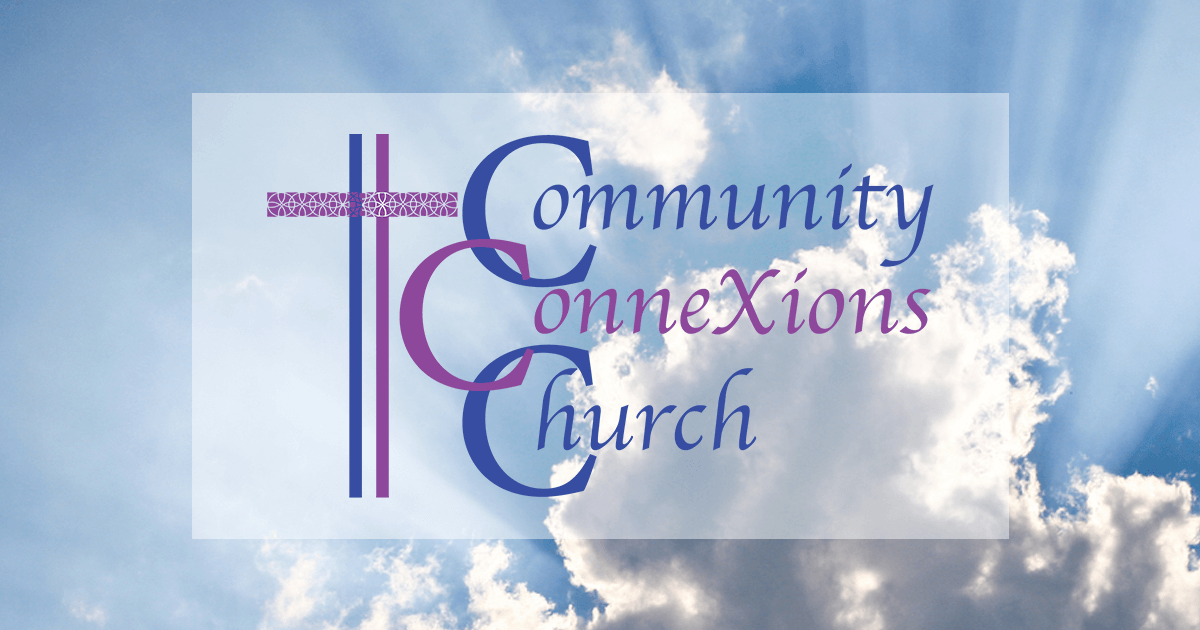
View & Download
So . . . God is showing Himself to be very strong, and very intent on bringing His nation back to Him. He means business in this chapter. God does punish, and in ways we would not necessarily deem politically correct. Famines, shortages of water, even sanitation issues---the God of this book takes responsibility for these things in working with His people. And again, His theme is "return to me." Don't just worship me with convenient "feel good" gestures but do whatever you want otherwise like I don't really exist. Return to me. You belong to me. I belong to you. Could you accept a God is like that? Would you be willing to let Him into your life? He's let you into His. For eternity! He wants to restore us all to original "created" goodness. Return to Me, He pleads. He loves us. Photo Credit: Creation Photo 159383766 © Alexandra Barbu Dreamstime.com

View & Download
Lot's of cool things going on in this chapter. Israel had a divinely appointed king, but the people's consent was involved. Sounds like our approach, calling for the "consent of the governed." And how God pleads with his people to come back. He gets more punitive than we'd like sometimes. Or maybe that was because we'd asked for it, at the Garden of Eden where we chose the Tree of Knowledge over the Tree of Life. Photo Credit: Photo 148441182 © Thomas Reimer | Dreamstime.com

View & Download
So Amos is poised and ready to confront Israel and Judah for their sins. Of course, the Golden Calf idols set up at Bethel and Dan didn't help. But neither did their ungrateful attitudes, and their insistence on their own way. Judah knew better. Israel got audacious in their flaunting of God. God loves His people and us. He loves us enough to discipline, and bring us back to Him. Loving what I'm learning in all of this. Photo 16804571 © James Group Studios, Inc. | Dreamstime.com

View & Download
It was a time of almost decadent prosperity. God worked so patiently with these people. But they continued to scorn Him. Amos is a fascinating prophet. He was a shepherd and sycamore-fig grower, yet he cared enough to let God "burden" him with this message not only for Israel, but for all the nations around Israel. I wonder sometimes if these nations represent "types" of people/groups/situations we face in our life. We all have a Moab we face. We all have a "brother" Edom in our life that harbors resentment. But most of all, we have a God who loves us, sometimes disciplines and even punishes us, but always works out things for our good. Praise be to God. Photo Credit: Photo 70365103 / Amos Prophet © Jorisvo | Dreamstime.com
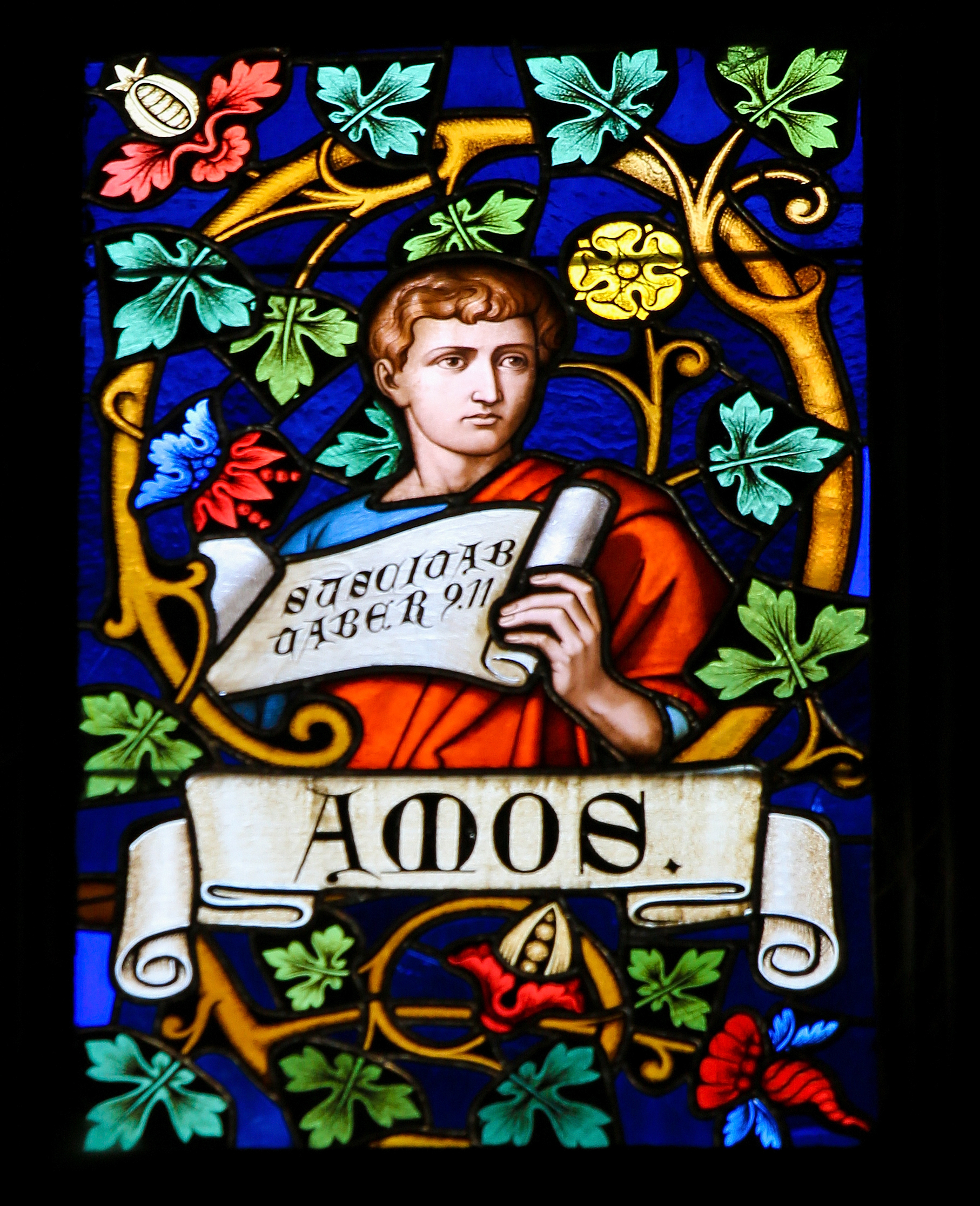
View & Download
So the town this shepherd and a sycamore-fig farmer was from was Tekoa. Tekoa means "trumpet blast" - a sudden sound that gathers everyone all together. So the words of this prophet chosen by God were going to make a big noise in Israel. And interestingly, he wasn't a professional prophet. He was really just a sheepherder and farmer. But like the disciples who'd simply been with Jesus, he was used by God and made an impact. You and I can be too, if we simply "be" with Jesus. Rams horn shofar Photo 26256853 © Blueenayim Dreamstime.com 28 After seeking advice, the king made two golden calves. He said to the people, “It is too much for you to go up to Jerusalem. Here are your gods, Israel, who brought you up out of Egypt.” 29 One he set up in Bethel, and the other in Dan. 30 And this thing became a sin; the people came to worship the one at Bethel and went as far as Dan to worship the other.[a]

View & Download
My mind is swirling still with a new approach to this chapter and all Scripture. I’ve come to believe that we are two “determinations” in one person. There is a side of us that is the true us, the Genesis 1 us, that has always been “righteous” “in” Christ, and still is. But we have a “dark us” as well. It’s the inherent parasitic humanity that we inherited from Adam and that Christ conquered and put to death in his life, death, resurrection and ascension. The battle has been won and Satan has been cast out---but he and our false selves still smolder and issue forth brokenness into our lives. “The Day of the Lord” represents the way God is sharing that defeat of evil with us in various stages (dimensions). Does this chapter simply speak of the final battle with all our false selves? Hmm! Enjoy. Photo Credit: Photo 129106911 © Kitty45 | Dreamstime.com

View & Download
So I wrestled with this text again today. And dimly again began to see God's punishment of us and our repentance to Him as all being accomplished in and by Christ. I know His physical nation, Israel went through some rough times. But the fulfillment of such rich blessings, and the restoration of the city of Jerusalem and Mount Zion, seems to have been accomplished in Christ. Christ did for us what we could never do. Thank you, Lord, for all you are and have done and are still doing on our behalf.

View & Download
The "Day of The Lord" is spoken of in this chapter. It's associated with the receiving of the Holy Spirit, which happened after Christ's death, resurrection and ascension. I'm getting a "sense" that all of the punishment and repentance Scriptures were all somehow fulfilled in what happened to and with Christ. He was punished for all sins. He repented properly for all too. Then the Lord is free to bless us all, and did, and bestow the Holy Spirit. So my question---are there all kinds of prophecies I once thought were to be fulfilled in our life experience that were somehow fulfilled for us and even by "us" in Christ who was both punished and repentant on our behalf! More to question, more to believe. Photo Credit: Photo 109567423 © Travelling-light | Dreamstime.com

View & Download
So did you ever notice how the bible speaks of some animals in a very human way? Ants are one such creatures, shown in the picture here working together and harvesting sunflower seeds. Rock hyraxes are too. They provide us with examples of how to be and how to live. Locusts are depicted like an army in this chapter of Joel. It makes me wonder if there is some connection with the descriptions of these creatures and the ones described in the plagues of Revelation that make them less likely to mean modern day warfare equipment, like I used to believe in the days of my naivete. Oh well. Enjoy! Photo Credits: Ants - Photo 22912905 / Ants © Andrey Pavlov | Dreamstime.com Rock Hyraxes - Photo 87394330 © Photonics | Dreamstime.com

View & Download
Joel speaks of an invasion of locusts and calls people to repentance, the NIV study bible teaches. It also shares that a desert swarm of locusts can 460 square miles in size and that between 40 and 80 million locusts can pack into less than half a square mile. It says they can eat their weight in plants each day, so a locust such size would eat 423 million pounds. (see "Locust," National Geographic, http://animal.nationalgeographic.com/animals/bus/locust/). Photo Credit: Photo 185180280 © Palex66 Dreamstime.com

View & Download
Have you ever done an overview of the phrase "the day of the Lord" in Scripture? It is a way more multi-faceted concept than I realized. It refers not only to the Second Coming, not only to the judgment. It even referred to past events in history, like the locust invasion in Joel or the Battle of Carchemish in ancient history. So here's a thought to mull over. What is your personal "Day of the Lord" in your life? Have you had it yet? Is it still to come? How did you come out of it? Here's another thought---are you still hanging in there, refusing to let God go, until He blesses you? What is God trying to develop in me and you?

View & Download
Have you heard the cicadas yet? Maybe it’s just in this part of the country. I’ve heard them in some established wooded regions. In my neighborhood they’re quiet, and I’m thankful for that. I guess that’s an advantage of being in a new development. Joel starts out with an insect invasion---one of locusts. It really happened in the Near East, quite a bit! God used them as a call to repentance. Today we’ll look at some background to the book of Joel, courtesy of the NIV Study Bible. Enjoy! Photo Credit: Locust swarm dreamstime_m_185180280 Photo 185180280 © Palex66 Dreamstime.com

View & Download
Why did Jesus teach what He taught? I’ve got a theory. He read His Bible (as the Early Church fathers did, I believe). And He picked up metaphors from it that became part of his famous parables. Take for example this one from John 14: “5 “I am the vine; you are the branches. If you remain in me and I in you, you will bear much fruit; apart from me you can do nothing.” Did this metaphor come out of thin air? Maybe not! Look at this next chapter, and see what you think. Enjoy! Photo 145532526 © Naropano Dreamstime.com.jpg

View & Download
This chapter is fascinating. It speaks of God's anger toward the sin of Ephraim. It speaks of his inability to come to fruition and birth. But it speaks of God's compassion, and promise to "deliver" Ephraim, and the nation of Israel and us all ultimately from death. And to our true selves. Many metaphors to birth in this chapter. Enjoy. Photo 92560605 © Joerg Stoeber | Dreamstime.com

View & Download
This chapter follows up on the lion metaphor but then gets into discussions of birth and deliverance and God's deliverance from death. The metaphor of pregnancy and deliverance is often used in Scripture, from talking about everything from the "birth pangs" of the second coming and our "deliverance" from death. There are even metaphors at the end of this chapter about babies that are not delivered. I'm beginning to wonder if these somehow are not talking about just historical people, but our "false selves" prevented from "delivering" on the sin we so often gestate in our lives. More to question, more to believe! Emoy Photo Credit: Photo 188393045 © Milkos | Dreamstime.com

View & Download
Ephraim became a mighty tribe in Israel. Much had been given to him. Much was therefore expected. God continues to plead with him for repentance. But it's just not going to happen. He was making himself vulnerable to a lion attack. Always remember, we are too. A lion, the devil, prowls to see who he can destroy of God's people. But don't be afraid. The Good Shepherd has His eye on you. Be sure to stay close to the flock! Photo credit:lion in hiding dreamstime_m_45330961.jpg

View & Download
I'm impressed with the way God deals with Ephraim in this chapter. He remembers our history. In fact, the history of Israel becomes part of our history when we recognized our life in Christ and realize we are Christians. Paul wrote in 1 Corinthians 10: "I do not want you to be ignorant of the fact, brothers and sisters, that our ancestors were all under the cloud and that they all passed through the sea. 2 They were all baptized into Moses in the cloud and in the sea." What a rich heritage we receive. What a legacy we're supposed to live up to? Are you living out your legacy, or are you "just" alive? It's something to consider. Photo Credit: Explosion of Light dreamstime_m_173151220.jpg

View & Download
https://www.communityconnexionschurch.com/.../studies.html There is a phrase tucked away in this chapter in the CSB that means a lot to me. "Israel will again live in tents, as she did in the festival days." I used to keep Old Testament festivals. They were the locus of my life for a very long time. This will now be the phrase I use to describe it. "The Festival Days." Actually, it's a goal I still have---to live in "tents" as in the Festival Days. My body is a "tent," my bible tells me. I'm journeying with God a a sojourner on this earth, awaiting a Heavenly City. I can either dig in to life here without that vision, and be constantly disappointed. Or I can live with Christ in a tent (He tabernacled in flesh too! John 1:14)---and live in "Festival Days." And guess what you do at a Festival? You feast! To quote Rosalind Russel in "Auntie Mame," life is a banquet. And most poor suckers are starving to death. But not people living in tents in "festival days." Happy festival! Photo Credit: Photo 181838261 © Andrey Popov | Dreamstime.com

View & Download
https://www.communityconnexionschurch.com/.../studies.html So . . .heading toward the beautiful mountains of North Carolina. Our cabin backs up onto Mount Mitchell. What a wonderful place to rest, relax, and think big thoughts! From a higher point of view! How exciting life is when you live it with God. I’ll be using the CLV version of the Scripture today to study this chapter. It’s often a more literal translation, and I look forward to deeply engaging with this chapter. As I recall, it’s going to teach us things about God’s view of Jacob’s life---and wonderful life that prefigures our own personal lives, struggles, and ultimate victories, as we wrestle with God, men and truth. And I think that's the moral to this chapter. We get we need from God---even if it takes wrestling with Him, till we prevail. He wants to teach us tenacity! Let’s dig in!

View & Download
Remember teaching your toddlers how to walk? Remember bending down to feed them, to care for them, to make their fears and burdens go away? That's what God remembers about His early days with Ephraim and ancient Israel. And it's interesting. The lost tribes of Israel are still lost to this day! No one knows, I think, exactly where they are. But God does. And through the apostle Paul, He's promised us---all Israel will be saved! God loves us more than any law allows---except for the Law of the Spirit of Life, which is also the ongoing "law" and rule of God's love! Photo Credit: Photo 76810525 © Anna Pospyelova | Dreamstime.com

View & Download
The Scriptures are ultimately about Jesus! John 5 39 You study the Scriptures diligently because you think that in them you have eternal life. These are the very Scriptures that testify about me, 40 yet you refuse to come to me to have life. When Christ opened their mind to understand Scripture, he opened their minds to understand how they spoke about Jesus. Luke 23 27 And beginning with Moses and all the Prophets, he explained to them what was said in all the Scriptures concerning himself. 45 Then he opened their minds so they could understand the Scriptures. 46 He told them, “This is what is written: The Messiah will suffer and rise from the dead on the third day, 47 and repentance for the forgiveness of sins will be preached in his name to all nations, beginning at Jerusalem. More than grasping the original context, we need to grasp this---it’s all about Jesus! He is wisdom, our knowledge, our sanctification, and our treasure. Paul said this: Colossians 2:2-4 New International Version (NIV) 2 My goal is that they may be encouraged in heart and united in love, so that they may have the full riches of complete understanding, in order that they may know the mystery of God, namely, Christ, 3 in whom are hidden all the treasures of wisdom and knowledge. 4 I tell you this so that no one may deceive you by fine-sounding arguments. That’s my goal too! Photo Credit: Photo 91748139 © Jozef Klopacka | Dreamstime.com

View & Download
The Bible is as much of a love story as it is anything else. God loves His wife, "Israel" to actually be honest with her---to tell her "I hated" who you were in one particular place. That doesn't sound like love from our perspective, does it? We imply that love means total acceptance of everything and anything the one loved does. According to Hosea, God is not like that. He loves us enough to confront our false selves with the reality of who we are---not just in our mistakes, but in His eyes and His love for us. Reading this book makes me think of marriage, and all its ups and downs. God saves His marriage. By the way, He can save yours too! Photo Credit: Photo 32512259 © Wavebreakmedia Ltd | Dreamstime.com

View & Download
As you sow, so shall you reap. So says Galatians 6:7. And Hosea 10 speaks to this as well, in a beautiful Scripture: Sow righteousness for yourselves, reap the fruit of unfailing love, and break up your unplowed ground; for it is time to seek the Lord, until he comes and showers his righteousness on you. I love that visual too. God will come, and shower His righteousness on us. It's like taking a wonderful bath in His healing love! This is Scripture to commit to memory, and live out! Photo Credit: Photo 97657802 © Visivasnc | Dreamstime.com

View & Download
So . . . WWJR! What would Jesus read? Obviously, He read and quoted this chapter. Phrases of it show up in Luke 22 at His Crucifixion, applying to that time. And in Revelation 6, the same phrase surfaces again, about a situation so utterly dreadful that people would want "hills to fall" on them and mountains to "cover them." Have you ever felt that way? In a world where Jesus is "crucified," it seems constantly, and minimized frequently, people are perhaps vulnerable to such despair. But not for you or me or anyone who chooses to "fall" on the Stone Jesus is! And rest on Him as the foundation of their lives. Like we sing at church---there was, and always will be---Jesus, our Rock, forever! Photo Credit: Photo 203503836 © Martina Simonazzi | Dreamstime.com

View & Download
So Israel had this hang-up. Whenever things got tense, and especially when they didn't like what the "prophets" and "priests" were saying, they loved to worship golden calves. Why? What was so special about them? One source I read said that they didn't really worship the calves, but visualized God or "the gods" standing on them, mightily defending them and giving them bounty, fertility and all the things the ancients wanted. Another source had a different take. It said that they wanted to worship God (or at least wanted to think they were worshiping God), but only a version of Him that was translated through the eyes of "their" culture. So for them it was a God who stood astride golden calves. For us, who knows what it is---a politically and socially acceptable God who fits our cultural parameters. The God of o Jesus Christ goes way beyond that. He not only fits true cultural parameters---He Himself constitutes what culture of what truly is! And guess what---it's bigger and greater and more wonderful than a god who stand aside our culture's golden calves. This chapter in Hosea speaks of this, and more. Enjoy! Photo Credit: Photo 15246966 © James Group Studios, Inc. Dreamstime.com
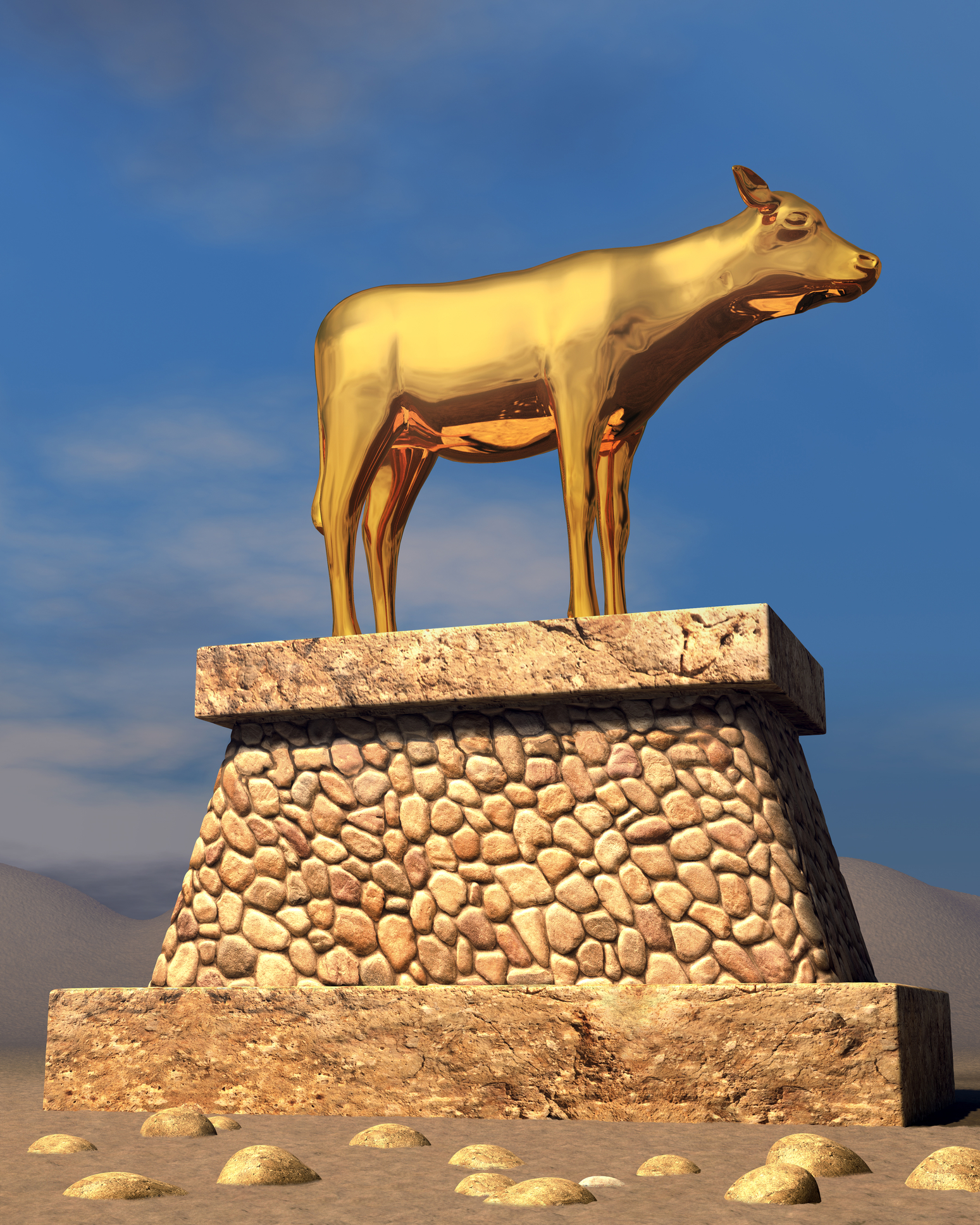
View & Download
Apparently being "half-baked" is an option in meal preparation for some dishes, including this half-baked meat bread pictured here. But there's another sense in which something can be "half-baked" ---it can be "undone." That's what ancient Israel's national policies with other nations were like---incompletely thought out and unwise. Just like a half-baked loaf of bread cooked on a hot stone would be burned on the bottom and undone at the top! Boy, have I been guilty of taking unwise approaches sometimes and instituting unwise solutions to issues. And nationally, many nations have been too! Let's face it---we all desperately need God. And the good news is He is always there for us! Photo 147512596 © Alkiona25 | Dreamstime.com

View & Download
In general, one may identify three basic meanings of the word, which always interact: “strength,” “steadfastness,” and “love.” Any understanding of the word that fails to suggest all three inevitably loses some of its richness. “Love” by itself easily becomes sentimentalized or universalized apart from the covenant. Yet “strength” or “steadfastness” suggests only the fulfillment of a legal or other obligation. The word refers primarily to mutual and reciprocal rights and obligations between the parties of a relationship (especially Yahweh and Israel). But checed is not only a matter of obligation; it is also of generosity. It is not only a matter of loyalty, but also of mercy. The weaker party seeks the protection and blessing of the patron and protector, but he may not lay absolute claim to it. The stronger party remains committed to his promise, but retains his freedom, especially with regard to the manner in which he will implement those promises. Checed implies personal involvement and commitment in a relationship beyond the rule of law. From Vine's Expositor, quoted in https://billelliff.org › blogs › news › checed What would it look like if we could see it? Photo 180182873 © Rolffimages | Dreamstime.com

View & Download
Let's face it, God loves us. He loves us so much, He'll discipline us. He'll let us "stew" in our guilt---until we seek His face, until we earnestly seek Him. What about me and you? Do we earnestly seek God? Or is He just an add-on to a busy day, if we can squeeze Him in? What if we took this approach---to always pin Him to the top of your "LifeBook" page. You won't regret it, not one bit. How many "prayer emergencies" might we avoid? The God of all the Universe loves us and has an amazing purpose for us all! Love Him back---and discover a life that will fill your soul and the of others as well! Photo Credit: Photo 42618056 © Hriana | Dreamstime.com

View & Download
Jesus and Paul often spoke or wrote some amazing phrases. It's fascinating to read a chapter like Hosea 4, and consider how both men used "snippets of truth" they garnered from a close reading of the Old Testament. You'll see things in Hosea that end up in the apostle's work. We'll find other metaphors and parables that most likely get their source from a deep awareness of the Scriptures. These people didn't just read books about the Bible. They mainlined the Bible. And pulled out snippets of truth when they applied! May we ever be able to do so ourselves as we live for our God. Photo Credit: Photo 86533548 © Sven Reich | Dreamstime.com

View & Download
There are so many wonderful writings out there from amazing women sharing what wives so dearly want from their husbands. But what does---or legitimately should---a husband want from a wife? In Hosea, we find some things expressed by the most perfect "husband" in all the universe---God. In His marriage to Israel, there were a lot of "contentious" moments. But He never stopped loving her, and He never simply settled. He shares what He wanted from His beloved "spouse"---and I'd be willing to wager, what most husbands truly want from their wives as well. It's nothing more than any one would want from someone who claims to love us. God is simply so cool. And He's the coolest husband ever, and teaches us how to be the same! Photo Credit: Photo 511781 © Robert Pernell | Dreamstime.com

View & Download
Hosea 3 - God's Love for His "Wife' https://www.communityconnexionschurch.com/studies/studies.html Hosea again has to engage in a marriage that at the very least must be difficult. His wife is "loved by another man." She is an adulterous. But God tells Hosea to love her anyway, to love her like He loves His wife Israel who is also an adulterous. He doesn't leave His wife. He isolates her, bars her way from her lovers, and leads her to want to come back to Him, the one who loves her freely. Imagine the thoughts running through Christ's head on the cross, as He loved His wife, and gave Himself for her, washing her with water through "the word"---washing her guilt away. Imagine the thoughts of love going through His head when He said, "Father forgive them." He's still praying that for all of us, even today. Photo Credit: Photo 69160944 © Hriana | Dreamstime.com
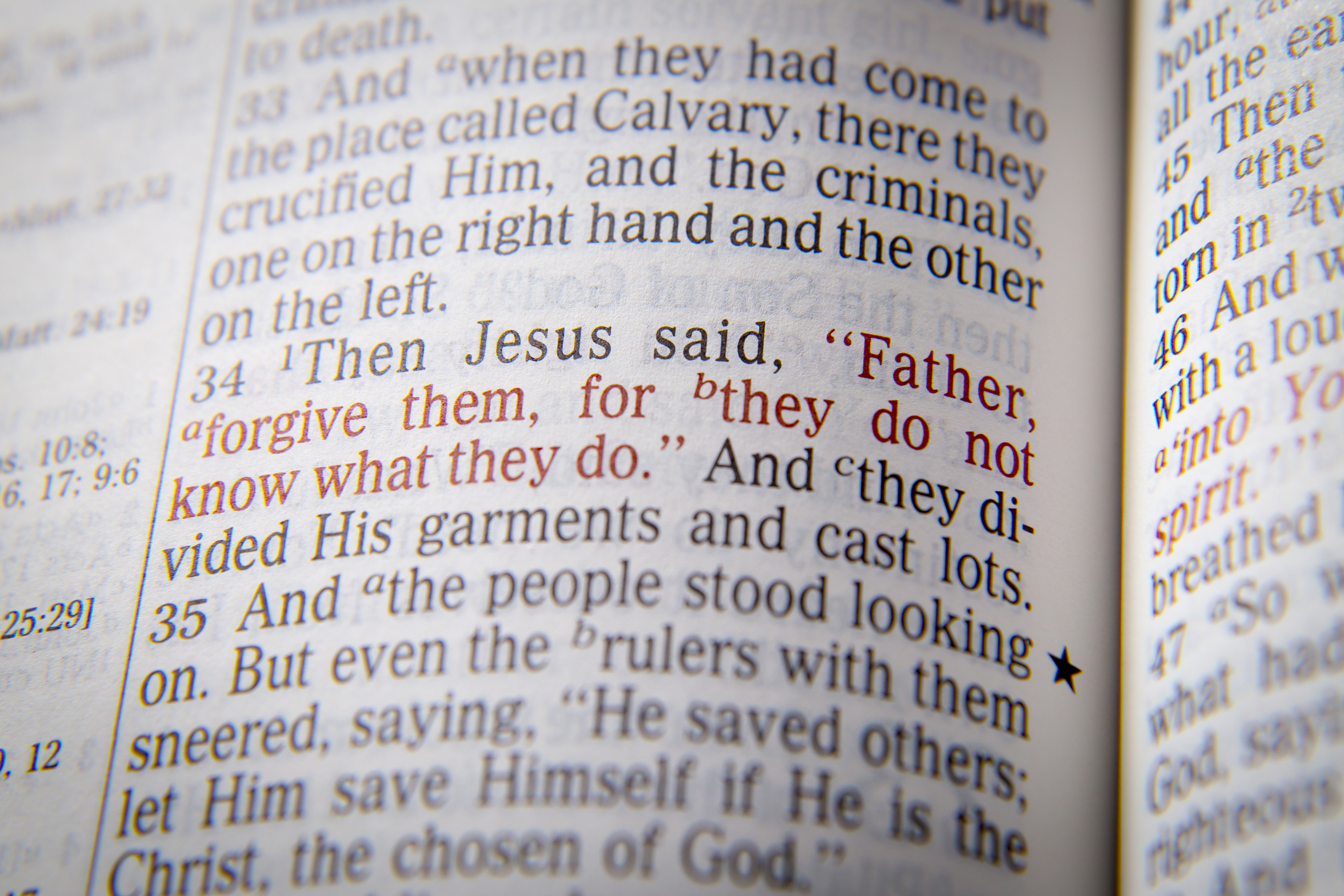
View & Download
Have you ever seen a cascading waterfall? This one is called "Fairy Falls," and I "get it" because my little granddaughter is all about fairies these days. But see how the water cascades. It's a beautiful process, and it's like something I discovered in Hosea 2. God will respond to the sky it says. After that, the sky responds to the earth, the earth to the new wine, the grain, the glistening oil. I just got a glimpse of life the way it was meant to be---a cascading world of Trinitarian responsiveness. How wonderful it is when Christ's life wells up in you, and overflows like He promised it would in John 7:38. He said "Whoever believes in me, as the Scripture has said, rivers of living water will flow from within them." How beautiful!

View & Download
What does it mean to love the woman you are married to? God talks about that, somewhat incidentally, in this chapter. The words used are beautiful. The love expressed is amazing. The God we worship loves us like that! Wow! Photo Credit: Photo 128706217 © Fizkes Dreamstime.com

View & Download
Would God actually do something like that? He did. And Hosea obeyed. We have such a conflicted view of life, and priorities, and God, and our responsiveness to Him. The God of the Bible is love. The God of the Bible is the Father of our Lord and Savior Jesus Christ! The God of the Bible is holy! And the God of the Bible actually asked a man to marry a prostitute and have a daughter named "Not Loved." Imagine what his counseling bill would be if he lived in our era and was subject to our sensitivities. It's something to think about. Imagine the Sacrifices these people made that we wouldn't touch! Photo Credit: Sacrifices dreamstime_m_86114285.jpg

View & Download
We're beginning the book of Hosea, and it starts off with something counterintuitive---God asks the prophet to marry a promiscuous woman---and by the way, how in the world do people define that term these days anyway? But we end up with a look at the metaphor that God is Israel's husband, and when she worships other things, she "cheats" on her husband---she's in effect, promiscuous. But another cool factoid emerges. In Hosea 2:16, God says one day you'll call me "husband," not "master." In other words, Israel's broken relationship with her "husband" was because she herself didn't properly understand the relationship with God. He didn't want to be known as her "Master" or "Owner" as the word conveys, and certainly didn't want her to be His "slave." He wanted, dare I say it, a partner with whom He could give all---and she could give her all back to Him. Master/Owner/Husband/Slave . . .or "partner" or "equal" or "co-heir." That's how much God loves us! Photo Credit:Photo 23246913 © Picstudio | Dreamstime.com

View & Download
Can You Accept God's Answer About the Time of the End? Daniel received a lot of prophecies he just simply didn't understand. Times and days and seasons and years, he just couldn't put it all together. If we're honest, neither can we. Some prophecies won't be understood until they're fulfilled. And we're not to overly focus on trying to figure out what Christ said plainly we will never figure out---the time of the second coming. God's response to Daniel---and to us---is simply to be God's witnesses on the earth and frankly stop over focusing on the when of His return. Is that answer enough for you? It is for me, and I challenge you to accept that answer and start witnessing Christ daily! Photo Credit: Photo 164754178 © Feng Yu | Dreamstime.com

View & Download
So more angels will show up in Daniel 12, and Michael will again be referenced. I again reviewed the views of the early church on Daniel's works and learned they truly believed the destruction of Jerusalem ended the Temple system once and for all, and that the church became the true temple of God. Ephesians 2 says that! I'll keep sifting through this, and try to put it all together. Photo: Public Domain Pinturicchio - Web Gallery of Art: Image Info about artwork
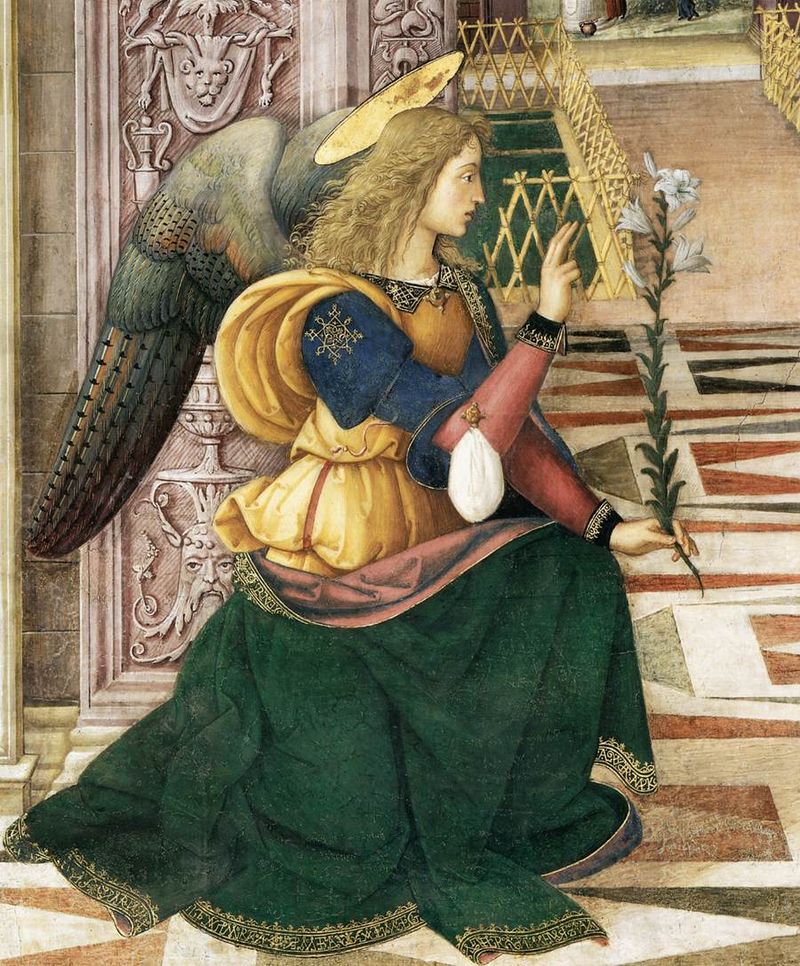
View & Download
Barbra Streisand sang that beautifully in the movie Yentl. I sing it (or think it) daily when I read Daniel more deeply. There are things I just can't quite figure out yet. I've always posited a lot of this in "end time" scenarios. But I'm seeing way more of a culmination in history at what Christ did at the cross! Here's what I've concluded about some of this stuff. Photo Credit: Yentl dreamstime_m_89155365 Photo 89155365 © Rene Van Den Berg Dreamstime.com Here’s is my take. Just like Elijah was a prophet in the Old Testament, and an Elijah type prophet came again in the figure of John the Baptist, a template was set by Antiochus and later, the Roman Empire. It just repeats itself with increasing intensity, all the way to the time of the second coming of Christ. But there is some kind of culmination in the coming of Christ that is referred to both here, in Daniel 12 and in Revelation that I’m dimly beginning to see. Let me close today for sake of time and see what this last section of Daniel 11 says about this unique king that seems to be the intensified embodiment of evil human rule that started way, way back with Nimrod and Babel and simply is known to us today as spiritual Babylon.

View & Download
Talk about slogging through! The historical details are legion in this section of Scripture. Since the Lord we are to live by every word that comes out of the mouth of God, I’m going to pay attention to it and give it honor. I know that some will find this to be too simplistic and tell me I’m interpreting that direction wrongly, but I don’t care. If God spoke it through His prophet and left it there for me to read, I’m not going to ignore it. And besides, I’m finding out some fascinating things. While the circumstances are different in that time era, some of the dynamics of those in public office still apply. And a given phrase here and there do actually seem to apply to things happening today. So in that Spirit, here we go. I’m going to correct some earlier information, and see if I can move forward. Enjoy! Photo Credit:Photo Credit: By Miguel Hermoso Cuesta - Own work, CC BY-SA 3.0, https://commons.wikimedia.org/w/index.php?curid=27034253
View & Download
What a mess the "kingdoms of this world" are. When you try to slog through the history of what happened between the fall of Jerusalem and the Christ, you see intrigue, drama, actually nasty retribution---a whole sordid mess of people living obviously without the Spirit of God enabling them to be more than they simply are on their own! I did a bit of research on one of the ladies alluded to in this complicated prophecy---a real spitfire named Laodice. She engineered at least two murders, maybe more. She ruthlessly consolidated power to her own devising. She met her end as you would expect, being murdered by the brother of a woman she murdered. It's like the Game of Thrones on steroids---thank God for the one who is the true King of Kings, coming to take over! PS: The only "laodice" I could get an image of was a butterfly. I prefer to look at it rather than her. Photo Credit: Photo 187860590 © Zhanghaobeibei | Dreamstime.com

View & Download
Forget the Young and Restless and Days of Lives. Forget the Copacabana, where they asked "Who shot who?" Follow the drama of Daniel 11, and learn about who married who, who reigned over who, and who possibly poisoned who. The kingdoms of this world got even crazier as time went on. This makes me glad that my kingdom and King is not of this world. I don't have to get into all that mess. My King is Christ. I hope yours is too. Photo By Allan Gluck - Allan Gluck, CC BY 4.0, https://commons.wikimedia.org/w/index.php?curid=85414285

View & Download
So the angel speaking to Daniel references something called "The Book of Truth." What is it? The Bible speaks of all manner of records being kept in heaven, including the famous "Book of Life." There are records of our tears, records of our deeds, maybe even records (blotted out frequently, I hope) of our sins. I did a survey of those in this study, and I'll move on to Daniel 11. Photo Credit: Illustration 45560998 © Gualtiero Boffi | Dreamstime.com
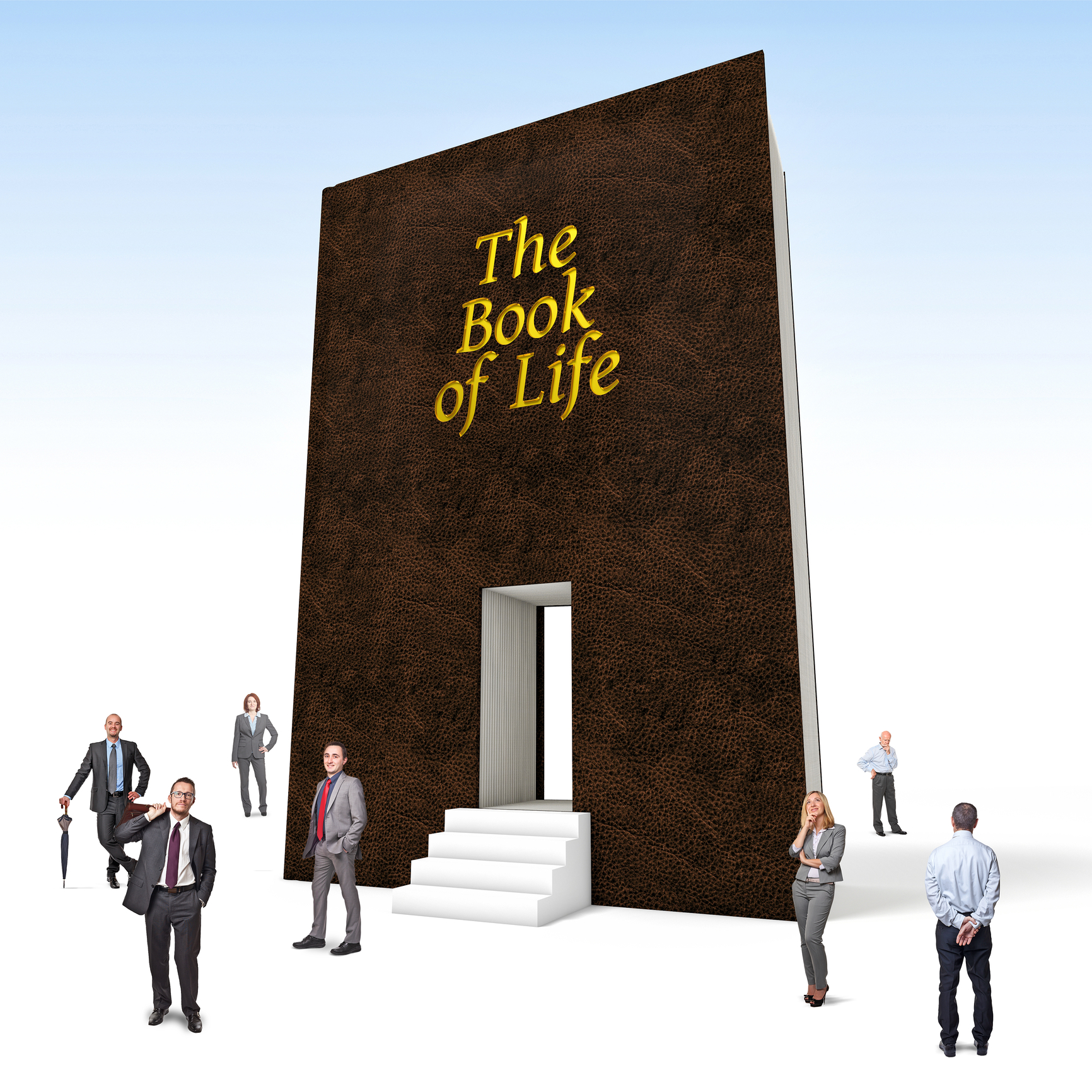
View & Download
One man literally answered that question with a cash value----30 pieces of silver. What is He worth to you? Is He worth prioritizing your time for? Is He worth changing your plans for? Is He worth spending a little time with Him at a service honoring Him? Is He worth giving back your life to as a living sacrifice? You and I were worth that much to Him! Photo Credit:Money Bag Judas dreamstime_m_173183266 Photo 173183266 © Gabriela Bertolini Dreamstime.com

View & Download
It was on this Day that the Disciples come to Him and ask Him where He wanted them to make preparations for Him to eat the Passover. The Passover, of course, was the memorial service instituted when Israel escaped from the land of Egypt. The death angel came through the land and killed the firstborn---the Israelites put the blood of a lamb on their door posts and lintels, and where spared. They came “under the blood”---and they were saved. Just like Jesus was anointed for His funeral before His death, He was going to eat the Passover “beforehand” as well. The Jews wouldn’t slay the lamb until twilight the next day---at the very time, Christ died. This wasn’t a coincidence, by the way. Christ ate the Passover. Then became it! He instituted what we’ve come to call the Eucharist, the meal of thanksgiving, Christ, our Passover. Photo Credit: Photo 88711368 © Romolo Tavani | Dreamstime.com
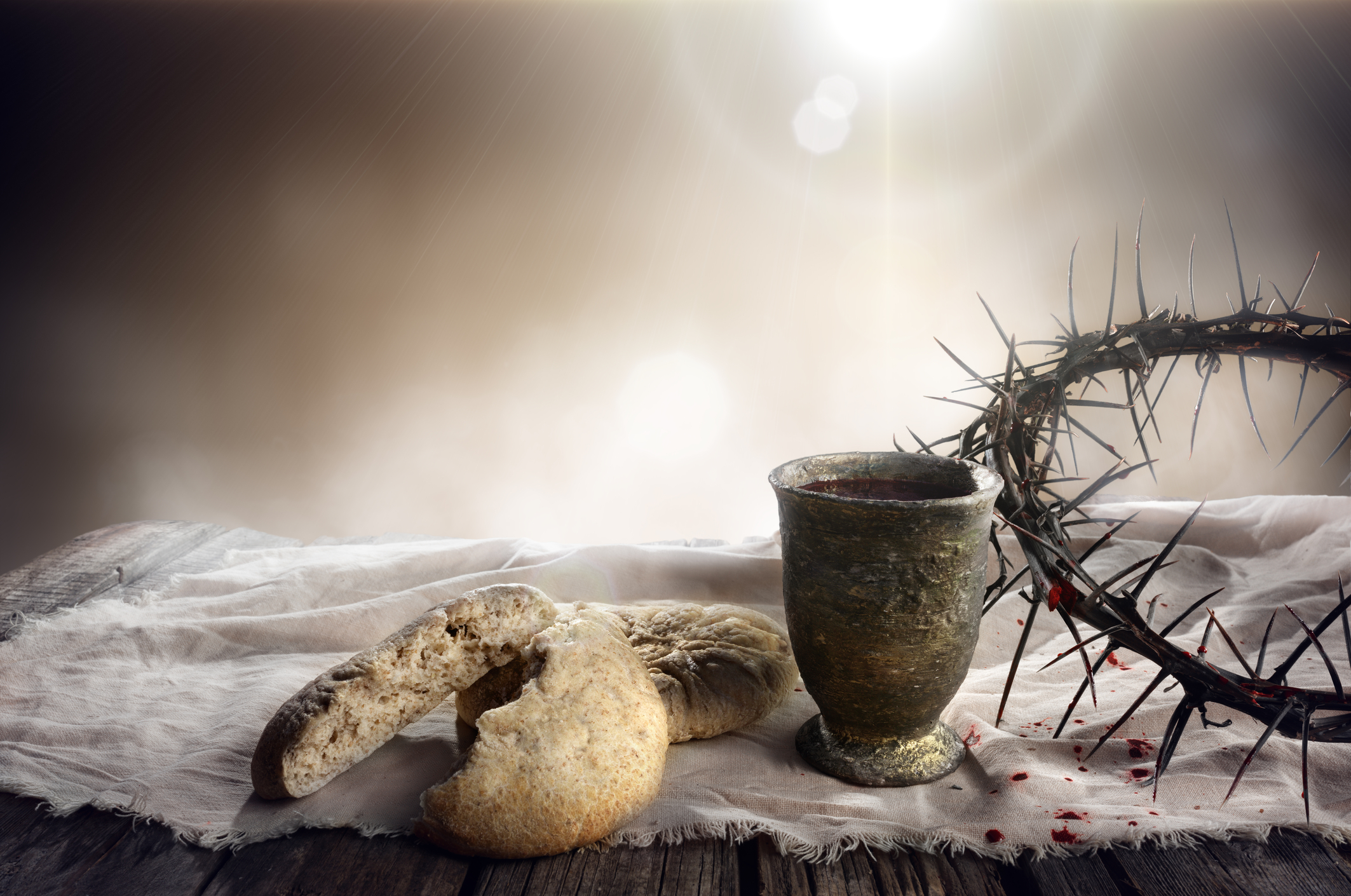
View & Download
Yes, they do exist and yes, there is some kind of cosmic struggle going on. Evil is powerful. It's inexplicable too, in light of the God of Light and Love that made us. Even though it has been completely conquered by Christ, it still raises it's ugly head and has amazingly compelling influence on us in the "first heaven" in which we live. Our battle is not against flesh and blood. It's against the powers of this dark world, against the spiritual forces of evil in the heavenly dimensions. But God has won the battle through Jesus Christ. His beautiful light always prevails against the darkness. And we can partake in both His struggle and victory against it. In this study, you'll learn about the angels on our side! And the hope that is ours! Enjoy! Photo Credit: Illustration 212782566 © Articture | Dreamstime.com

View & Download
Cosmic battles, spiritual forces in "heavenly places," overwhelmed prophet, and the drama of this current existence---that's what we get glimpses of in this chapter. A "man" (angel actually) looking simultaneously like "topaz" and "bronze" (with lightening eyes, no less) appears to Daniel. And literally, knocks him out. This Scripture definitely reveals the "behind the scenes" cosmic battle going on between good and evil---a battle we end up getting caught up in, probably because God doesn't just want to win it over our head, but with our participation. He wants us to share in the victory. Or so I've heard!

View & Download
So as I wrapped up my look at the prophecy of weeks in Daniel 9, I was drawn to looking at the numbers used in Revelation---all the three and half years spoken of, and I saw what I thought was an intriguing link to the 3 1/2 days left of Jesus' ministry as prophesied in Daniel's "seventh week." Could it be that Jesus did his ministry week this way---3 1/2 days (years) during His ministry on earth leading up to the cross, and 1260 "days" (3 1/2 years --- time periods of a non-determined length, but making up the perfect amount of time----symbolized by the "7" days---) of ministry through the church, while the "beast" governmental system continues to reign and dominate and God's church continues to witness in a special Elijah like way? I know that's way over the top, but I'm intrigued. And Daniel 10 is cool too. I urge you to reread your Bible "From the Ground Up." The Lord is still speaking guys and He wants to speak to me and you!

View & Download
From time to time I read interpretations of these prophecies that don't seem to "fit" what I've seen elsewhere in Scripture. They're interesting, they're kinda sorta plausible, still they're "out there"----and most of the time they don't come through. So what can "solidly" be said about prophecies like the 70-week prophecy listed here? Lots! By early church father's whose names I can't even correctly pronounce. As you might have guessed, they saw it all being fulfilled in Jesus. And these days, somewhat dimly, my eyes are being opened to the fact that Revelation is simply a story about what God has already done in---guess who---Jesus! So let's see how Gabriel explains things to Daniel. Enjoy! Photo Credit: Pinturicchio_-_The_Annunciation_(detail)_-_WGA17770
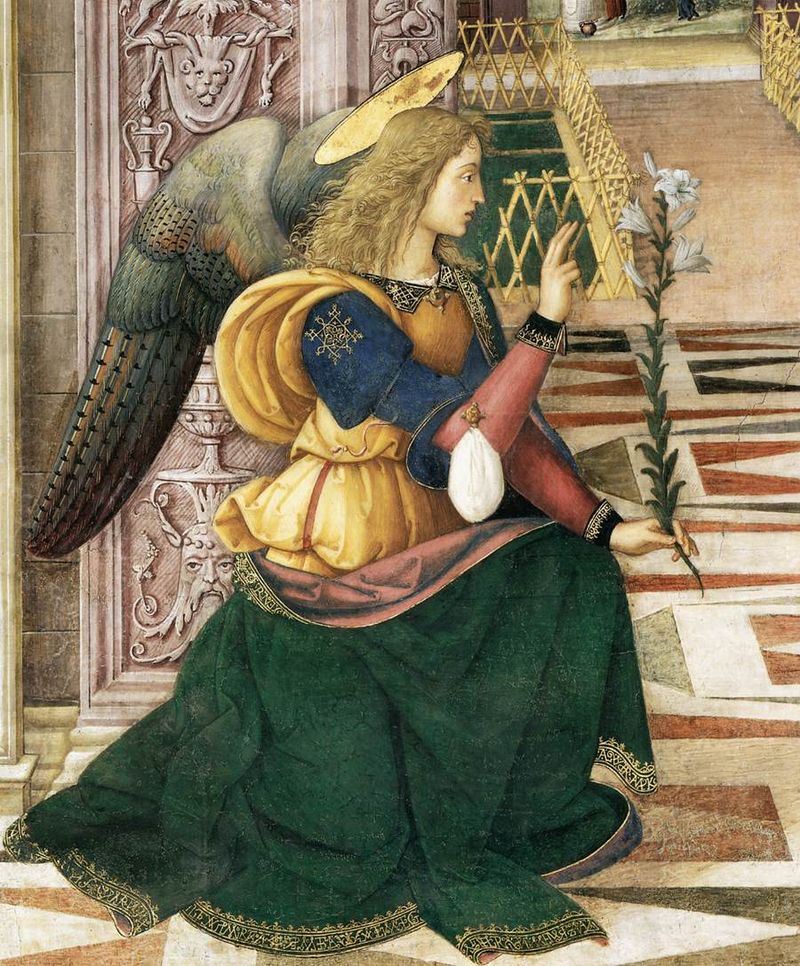
View & Download
So all kinds of sevens are mentioned in this chapter. Are they literal? Are they symbolic? Are they both? Our chance of getting this prophecy right until Christ shows us what it really means might be as flimsy as the luck of the draw---although some intriguing dates do surface when you give it a shot that show the profound prophetic insight of the Word of God---especially when it talks about the most important truth in the Bible, the Living Word of God, Jesus, who puts an end to all sacrifice and confirms the covenant with God for many! Photo Credit: Photo 50017530 © Mawerix | Dreamstime.com

View & Download
Again, It's interesting to listen to the words of a man who's praying not just for himself, but for others. Daniel wasn't guilty himself of half the things he prays for here. But he takes on the sin of his people like it's his own. Makes me think of how we should consider taking on things on behalf of our people, even if we're not the ones necessarily guilty! A very Jesus-like thing to do! Kind of like the love the Trinity shares constantly, in the loving communion of God!
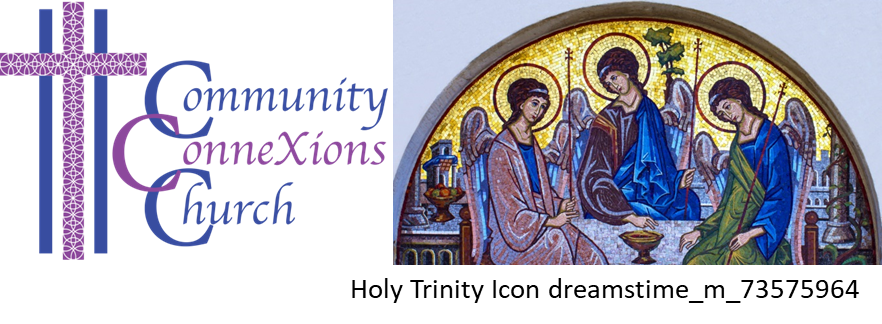
View & Download
Daniel gets serious about repentance. And teaches us how to pray. Interesting concept in a world that doesn't seem to see a need for that so much these days. Daniel did. Maybe we should too! Photo Credit: Praying on knees dreamstime_m_46870881.jpg

View & Download
This passage gets into six things the Messiah accomplished. And the question arises "when" did these things get accomplished? One train of thought says they were partially accomplished at the cross, but would be fully accomplished after Christ returns. But other frames of thought see it differently---radically differently. We were saved before we were made! We were made live saved---before the Beginning of Time! Before the foundation of the world! Photo Credit: Photo 170736954 © Vchalup | Dreamstime.com

View & Download
The angel Gabriel plays a role in explaining things to Daniel in this chapter. Why? Why does God use angels to do things like this? Couldn't he just "make" explanations plain in our minds? Hebrews says “all angels are ministering spirits sent to serve those who will inherit salvation.” (Hebrews 1:14) So why does God use them when He doesn’t “have” to, technically? My guesses are: 1. Sometimes we are too spiritually insensitive to God’s more subtle "leadings" through the Spirit, and it takes a manifested being like an angel to get through to us. Or, 2. God wants to share not only what He has, but what He is---an active Living Giving Life Being, who does a lot of “fun” things He simply wants to share with others. It must be an honor to be a Gabriel, an angel who stands “in the presence of God.” He’s an important angel, and was given important responsibilities. His name means “God my hero” or “Mighty Man of God.” He can fly swiftly (although that may or may not mean he has wings). He is sent out it seems in response to prayers. At any rate, we consider that in today's study. Enjoy! Photo Credit: By Pinturicchio - Web Gallery of Art: Image Info about artwork, Public Domain, https://commons.wikimedia.org/w/index.php?curid=15463892

View & Download
Elvis sang the song back in the day. And because he was in love, he was all shook up. Have you ever been "all shook up"? Have you ever been knocked off your feet by something? Ever been so overwhelmed you, well, just passed out? Ezekiel was. Daniel was. I think John the Apostle was too. The Spirit of God can be, well, overwhelming. His servants have experienced physical reactions to the presence of God. That's the focus that hit me as I considered this part of Daniel chapter 8. There is a physical price to pay for being a servant of God. And it's worth it. Enjoy. Photo Credit: Illustration 16101530 © StampGirl | Dreamstime.com

View & Download
So Daniel meets the angel Gabriel, who is used by God for all kinds of important messages. He is a revealer and clarifier of prophecies. He let Elizabeth know that John the Baptist would be born. He told Mary about the coming of Jesus in her womb. He stands in the presence of God. He's willing to talk to "a" son of man. And he does important work for "the" Son of Man. And for me and you! Enjoy God Shepherds His Rams, His He Goats and His Ewes . . . I mean even you! Photo Credit: Jesus the Good Shepherd dreamstime_m_125695858 (1).jpg

View & Download
So Daniel is in the citadel of Susa. It was the king's summer palace. And he's overtaken by a vision of the future that is so vivid it astounds him. It's about a ram, a he-goat, and pardon my cheesy pun---it's about you too! God is describing he puzzle pieces of the Spiritual Babylon we all live in, and this chapter study gives insights on how the "system" we're a part of evolved with some pretty fascinating roots. The things we've done to establish a rule without God are amazing. And are still being reflected in our governmental processes today. Enjoy this series, as we continue through the Bible, and history, from the ground up!

View & Download
I'm studying Daniel's end-time prophecies against the backdrop of the beliefs of the early church. One resource I found (Bible Truths (earlychurch.net)) had an interesting observation. They put it this way: "Modern day eschatology is Dunkirk. The devil is coming, and we need a rescue. The debates between Pre, Mid, or Post trib is merely a question of how many casualties we take before we get off the beach. The fact that we are being driven back and are failing is presumed. In the early church, however, the eschatology was typified by D-Day. The apostles saw the "Last Days" as starting on Pentecost, and the invasion of the Kingdom of God onto this earth began. The early church fathers labored to drive back the enemy and had considerable success. The differences in view as to the wrath of the antichrist was merely a question of how much we may need to endure on our way to success and dominion on the earth." I like that take. I'll wrap this up today, and move on. Photo Credit: Public Domain File:Into the Jaws of Death 23-0455M edit.jpg By Chief Photographer's Mate (CPHoM) Robert F. Sargent - Identifier (NAID) 195515., Public Domain, https://commons.wikimedia.org/w/index.php?curid=17040973
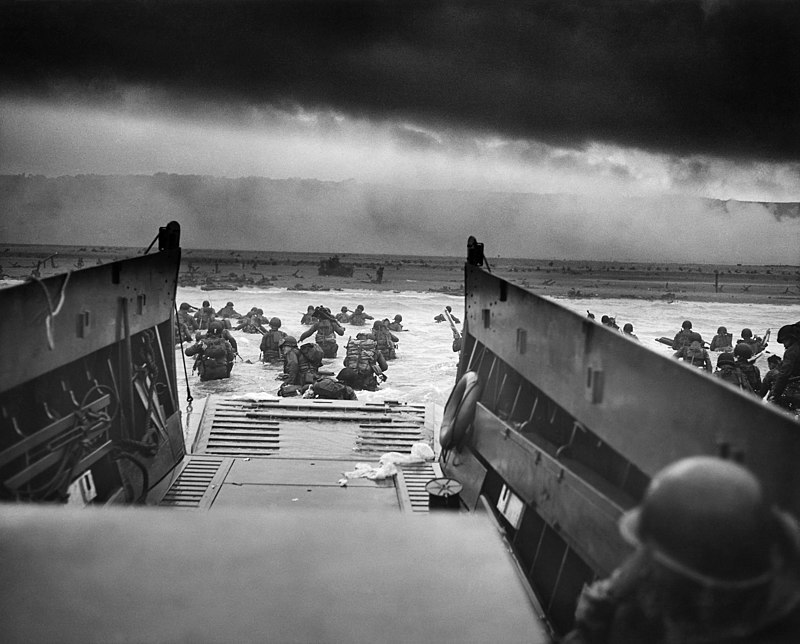
View & Download
I'm parking at Daniel 7 for a while. It has a fascinating prophecy about Jesus in it. It also has a glimpse at what we've called (and marketed and hyped incorrectly, often) as the "end of the world." What did the early church fathers believe about this passage of Daniel 7 and other "end time" prophecies? Some of it compares well with what we believe. Some of it they wouldn't recognize at all. Using some web resources on the stated beliefs of the early church fathers, I'm going to explore this subject this week. It's great to study Scriptures . . . "From the Ground Up!" Enjoy!

View & Download
So Christ talked about bringing "treasures" of knowledge, and discovering things "new" in the old (Matthew 13:52). I'm studying the Kingdom of God from that slant today. It's giving all kinds of new ways of looking at everything from our reign, the 1000 years, and taking part in Christ's resurrection---which indeed, is the first resurrection. Don't know where to go with all this yet. But it's fascinating. Enjoy! Photo Credits:Sapphire dreamstime_m_8695638; Topaz yellow dreamstime_m_10591934 Photo 10591934 © Kettaphoto Dreamstime.com

View & Download
When I pray in the morning, I sometimes like to "center" a bit on biblical images of the throne of God in all His unvarnished glory in the heavenly realms. I love the vision in Ezekiel. I love this one too, and take heart from it! Why? Even though my "outward man" is perishing, I'm being renewed daily in the inward man in Jesus. And I just visualize stepping into the "flame of eternal fire" emanating from God's throne, and being emblazoned with more and more of God's eternal energy spring, His eternal life. I share this with you today in this study. May God renew you in joy and in love this Easter season. May hope always burn brightly in you. Photo Credit:ID 139926071© Iva Vanurova| Dreamstime.com

View & Download
So various nations and empires rise from the abyss. The ancient kingdoms of this world set a template for world rule that has dominated until this very day. The one we will study today is the one historically known as the Roman Empire. It, or at least, variations of it, have dominated world politics even to this very day. I want to understand this template of Scripture, and understand just what the symbols in this apocalyptic book mean. I’ve come to see the whole Bible is way more about Jesus than I’ve ever allowed for. Maybe even this book is about Him and cosmic truths for us all to be aware of as well! Maybe He has (or is) the Key for understanding all books of the Bible. Enjoy! Photo Credit: Christ's hand key dreamstime_m_158966258 (1)

View & Download
So the timing for this is perfect. Easter is on the horizon, and to me that’s increasingly becoming a time of Resurrection, Renewal and Restoration---and Hope. Amazing things happened at the cross. The life that was revealed on Easter Sunday was there, waiting for the cross, to be emblazoned on the world. I don’t see this season as a time of dour repenting and “getting ourselves” right with the Lord anymore! As if any of us could ever do that! I see this season as a time to remember that there’s only one tree worth chosen---the Tree of Life. And the Lord and His Cross have always been there for us. Daniel 7 speaks to that! In more ways than I’ve realized in the past. Let’s explore it. Enjoy! Photo Credit: Photo Credit: ID 113784722© Physyk| Dreamstime.com

View & Download
Out of a churning, raging sea "beasts" appear---symbolic of nations that emerge from the abyss, symbolic of the nations and empires that exist in this skewed, fallen Babylon of a world. What is the "abyss" in Scripture? Satan seems to come from there, go back into there from time to time. The chaotic primordial deep challenged the original creation in Genesis 1. And nations emerge from a sea-like abyss in Daniel 7. What is God telling us? More to question, more to believe. Photo Credit: Photo 101161340 © Viktoriia Raznatovska | Dreamstime.com

View & Download
So what makes a Daniel a "Daniel"? How can you survive in the dog-eat-dog, beast-eat beast like world of governmental systems in the heir to Spiritual Babylon, the kingdom of Darius the Great? Gifts and talents and abilities had something to do with it. But what fueled the fire of those gifts? Where did they come from? How could he have a consistently excelling spirit through it all? Daniel simply prayed. Regularly, consistently. No matter what. And he was not only a survivor, but a "thrive-er" in Spiritual Babylon. We can be too! PHOTO CREDIT: Peter.zn1 - Own work
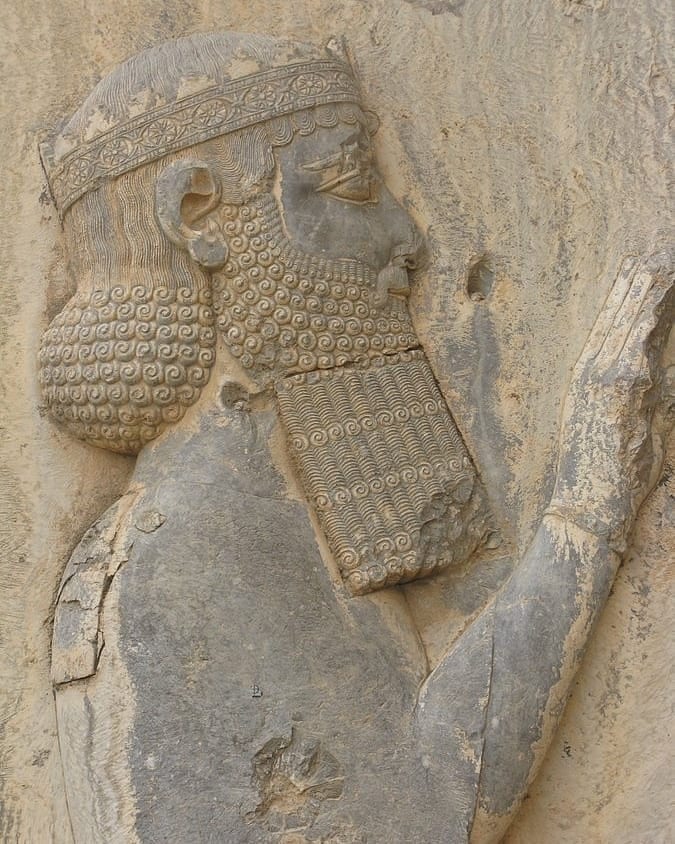
View & Download
Rulers would come and go, but Daniel remained in his high position of authority. He survived in spiritual Babylon because of his relationship with God. He became so valuable to the leadership that leaders from even different generations valued him. When Belshazzar saw the writing on the wall, he was terrified. He didn't learn the lessons of the past. What a warning it is to us to never harden our hearts in pride, never to be exalted in spirit. "Blessed are the poor in spirit," Christ said. For theirs is another kind of kingdom----the kingdom of heaven. (Matthew 5:3) Photo Credit: Photo 3595492 © Steve Estvanik | Dreamstime.com
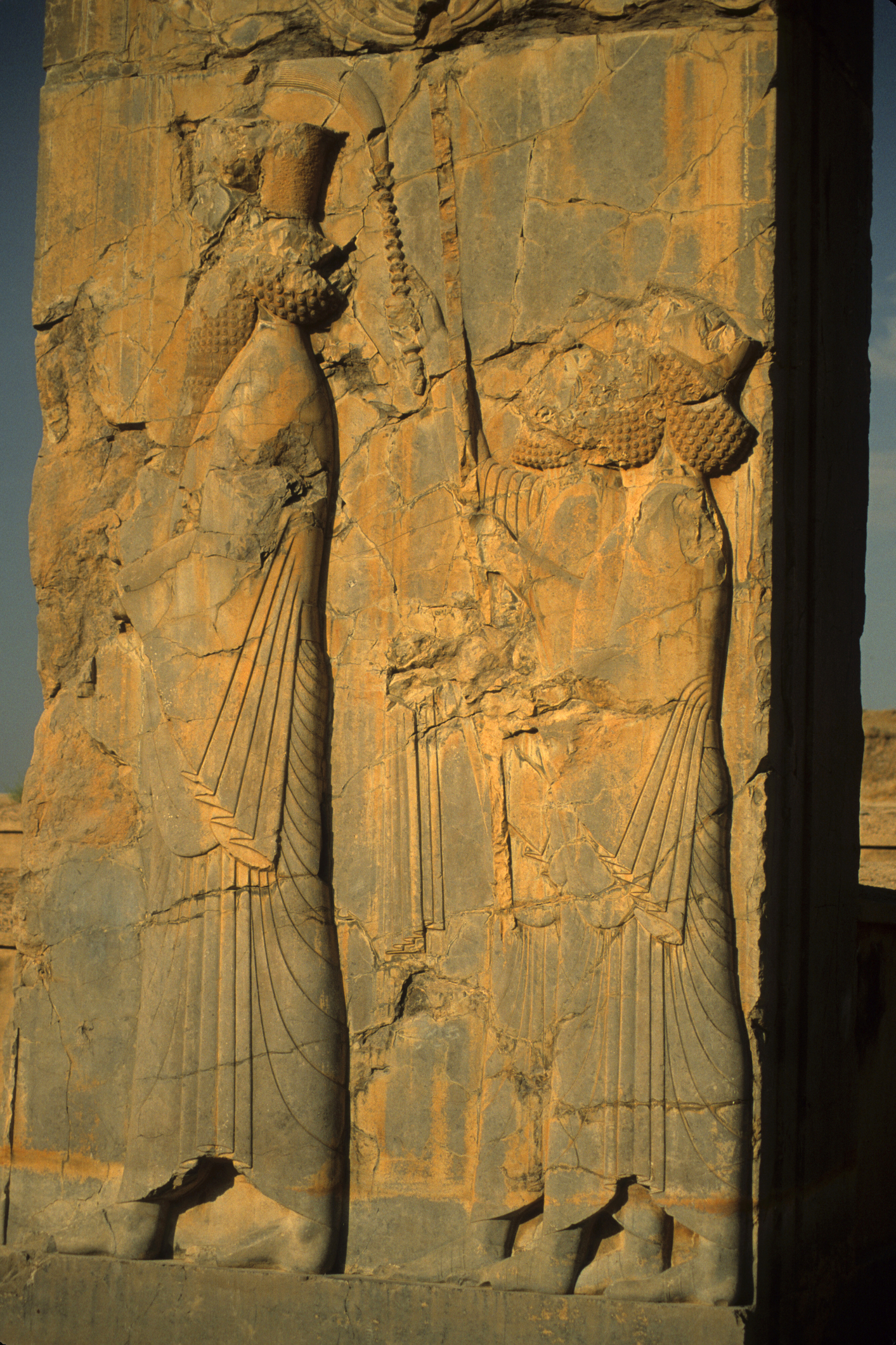
View & Download
It's become a stock phrase---"I saw the handwriting on the wall." This ruler did. He literally saw a hand writing on the wall. And he needs help to know what it means. Daniel once again is brought before a new ruler. And it is once again because of his true "ConneXion" to what the ruler called "the spirit of the holy gods." He was a "stream of light" one translation says. He was able to "interpret interpretations" and "untie knots." What an amazing capacity to have---and how desperately needed in our world today. Sometimes we need to know how to read "the writing on the wall." Being like Daniel, with a consistent, functioning relationship with the Spirit of God can make all the difference. Photo Credit: Photo 40211491 © Photodynamx | Dreamstime.com

View & Download
There was a play written years ago entitled "Long Day's Journey Into Night." As described in Wikipedia: This play portrays a family struggling to grapple with the realities and consequences of the failings of other family members in relation to their own. . . The family's enduring emotional and psychic stress is fueled by their depth of self-understanding and self-analysis, combined with a frank honesty, and an ability to boldly express themselves articulately. Nebuchadnezzar was going to have his long journey---but it was not going to be a journey based on a depth of self-understanding. It was going to be one based on a lack of self-understanding. That is until he looked up to heaven and acknowledged God. Photo Credit: Photo 33745860 © Naruto4836 | Dreamstime.com

View & Download
Nebuchadnezzar shows all the markers emotionally and psychologically of someone headed for a great fall. And sure enough, God himself gives him dreams to both challenge him and warn him. God loves all people, even rulers who rule like this man did. And He loves them enough to warn them and help them do the right thing. This chapter is chock full of fascinating information. It speaks to the megalomania in all of us as we rule our little "empires" on the face of the earth. It speaks to what real repentance looks like (notice the actions recommended by Daniel). Most of all, it speaks of the love God has for all---even the "lowliest of people," who He set over a whole empire. Photo Credit: Photo 2038803 © Timurk | Dreamstime.com

View & Download
So we fight trials, don't we. We struggle, we want out, we negotiate, we avoid. Or . . . we can accept. And see what happens when we do. Three men in the Bible wasted no psychic energy wishing a trial would go away. They hit this iceberg head-on, and instead of lives sinking like a doomed Titanic, they not only glowed . . .they "growed"????(sic)! We can too! Photo Credit: Photo 104628503 © Jozef Sedmak | Dreamstime.com
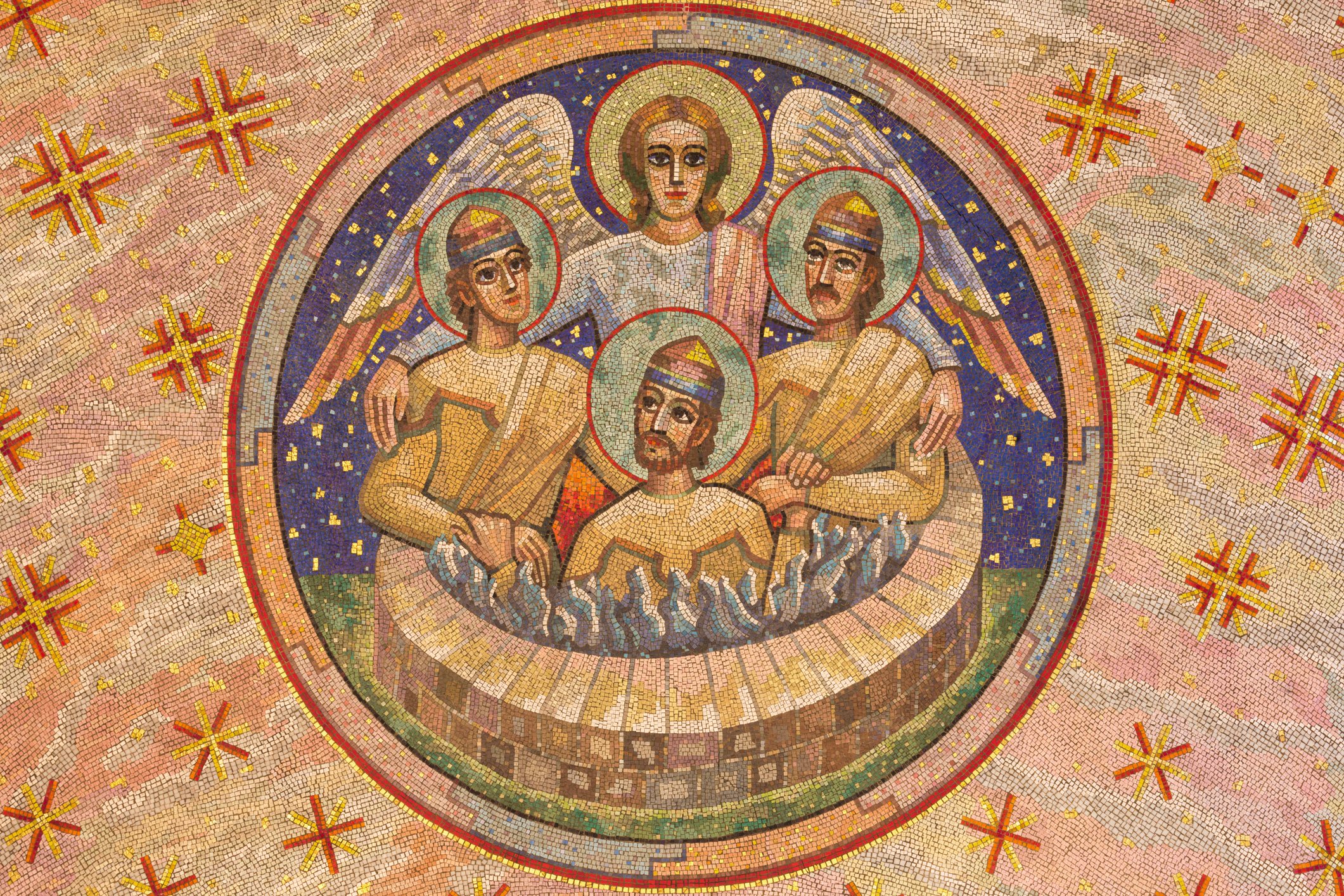
View & Download
It's one thing to be large and in charge. It's another thing to co-opt the religious sentiments of the day and insist your version of "God" is on your side and working through you. That's what so riled the Roman government in the early days of Christianity. True Christianity could not be coopted into paying quasi politico-religious notions any credence whatsoever. Their kingdom wasn't of this world. They didn't fight. They totally relied on God and reported to Him. Here is how "Postcards from Babylon: The Church In American Exile" by Brian Zahnd says it in a book I'm going to buy (quote pictured below)!
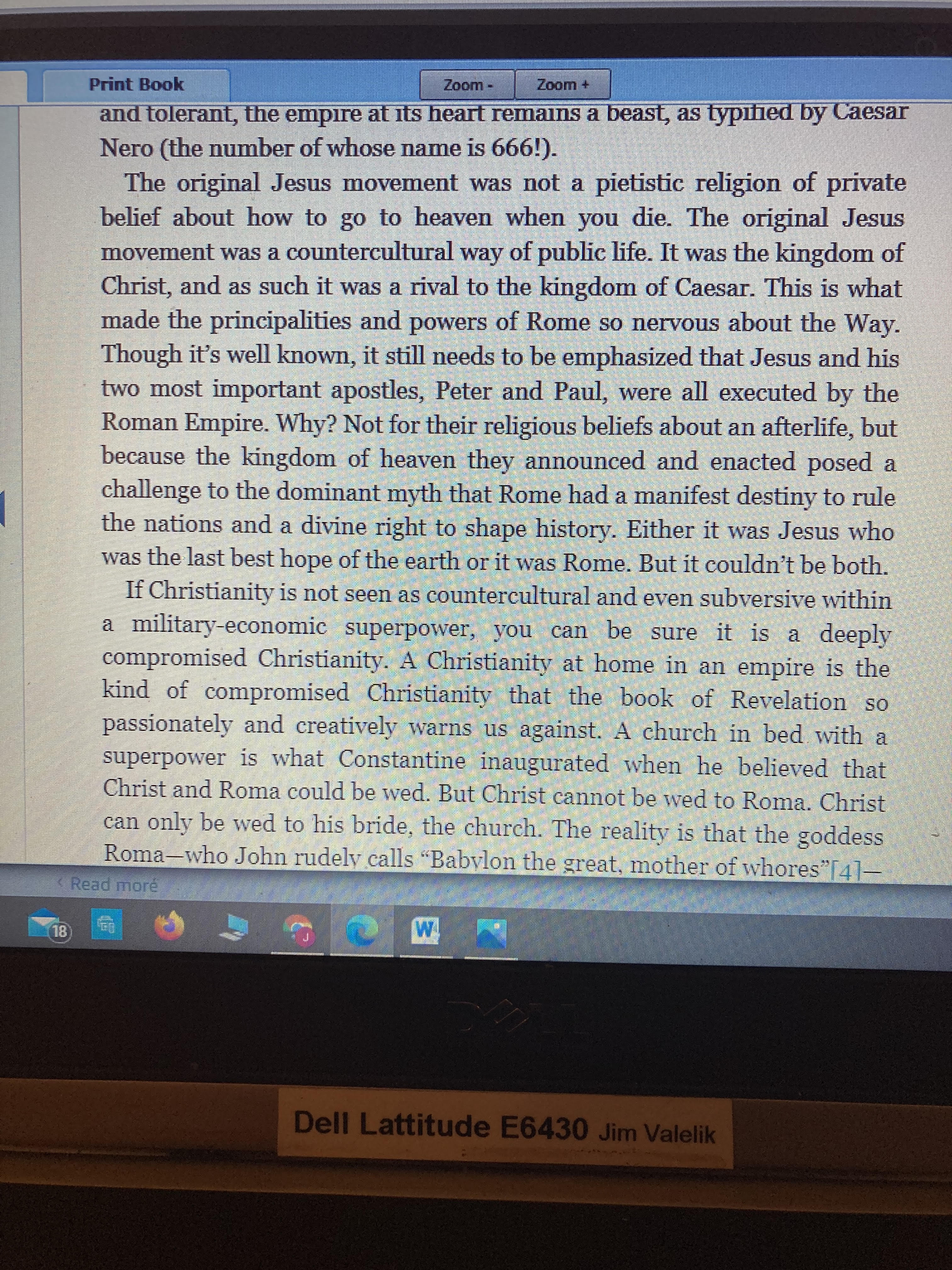
View & Download
The Bible is an amazing book. I can remember way back in the 8th grade, I was desperate to be reassured there indeed was a God. And when a group I began studying with at the time introduced me to Scriptures like these in the bible, I was hooked. For God to so ably describe our way of governing, from the time of Babylon on was amazing. And to consider the implications of our current very "Roman" like system of senates, shared rule, union in the midst of "individualization," attempts at compromise and unity that never hold when truly tested---it describes the world we live in today perfectly. We're a spiritual Babylon on feet of clay We hold together in a fragile kind of way But when things tough or self-will sways We declare our independence in isolationist ways Oh why can't we see that we'll miss all the fun 'Til we decry our independence and become "persons" Like the Father, Son and Holy Ghost Who haven't moved to the California coast But is still here with us, and can unite us "the most" Thy Kingdom come! Photo Credit: https://www.freebibleimages.org/photos/nebuchadnezzars-dream/
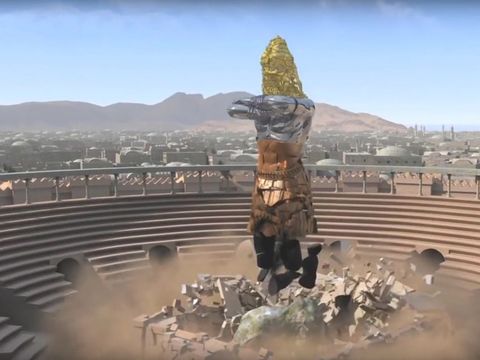
View & Download
The Rock "cut" without hands----the rock that becomes a mountain that fills the whole earth---the "Rock" that was and is and always will be Christ. I love Daniel, both the prophet and the book and visions created there in. There are heads of gold, feet of clay, all kinds of crazy beasts. And there's the piety of a man who loved and whom God loved and used. I want to be a Daniel. And some days I am. Somedays I'm a Nebuchadnezzar. And some days I'm just me and happy and free. Live large and love God! He loves you! We are shielded in and by and with and on The Rock. And He'll save us forever! Photo Credit: https://www.freebibleimages.org/.../nebuchadnezzars-dream/ Please refer to this link to access or reuse these images. Be sure to refer to their terms of use. CCC expresses gratitude to this wonderful sight
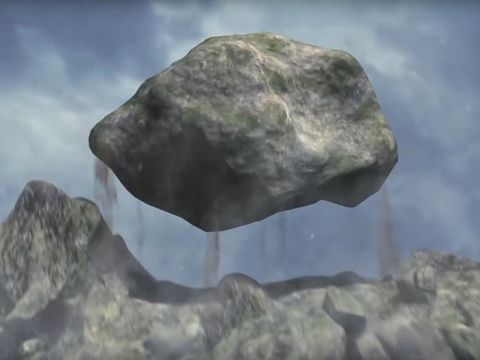
View & Download
I want to savor this chapter more deeply. So I’m going to start from the beginning, and just “react” to the text. I love living by every word of God, and I’ve always believed that meant to make sure I paid honorable and deep attention to every word of God in the Bible. That’s what Christ did! 4 Jesus answered, “It is written: ‘Man shall not live on bread alone, but on every word that comes from the mouth of God.’” (Matthew 4) I believe that means His written word, and whatever comes out of His mouth, His living Word. I’ll saunter through the opening, and then continue. Enjoy! Photo Credit: redo dreamstime_m_148374882 Photo 148374882 © bang oland Dreamstime.com

View & Download
God is amazing. Through His servant and son Daniel, He unraveled a dream for the despotic ruler Nebuchadnezzar---as ferocious as one of the lions on the beautiful Ishtar Gate of his capital city Babylon. God "cut" through the "digital" and synaptic confusion of a mind that was way too wired. He turned the lion, at least for 30 seconds, into a lamb that was giving Daniel a reward of power and safety. He can do the same for me and you today---clarify conflicting, confusing messages we get in our digital and spiritual Babylon. On top of that, He can help you get back to sleep too, with clarity and hope. Enjoy. Photo Credit: Photo 117285933 © Gepapix | Dreamstime.com
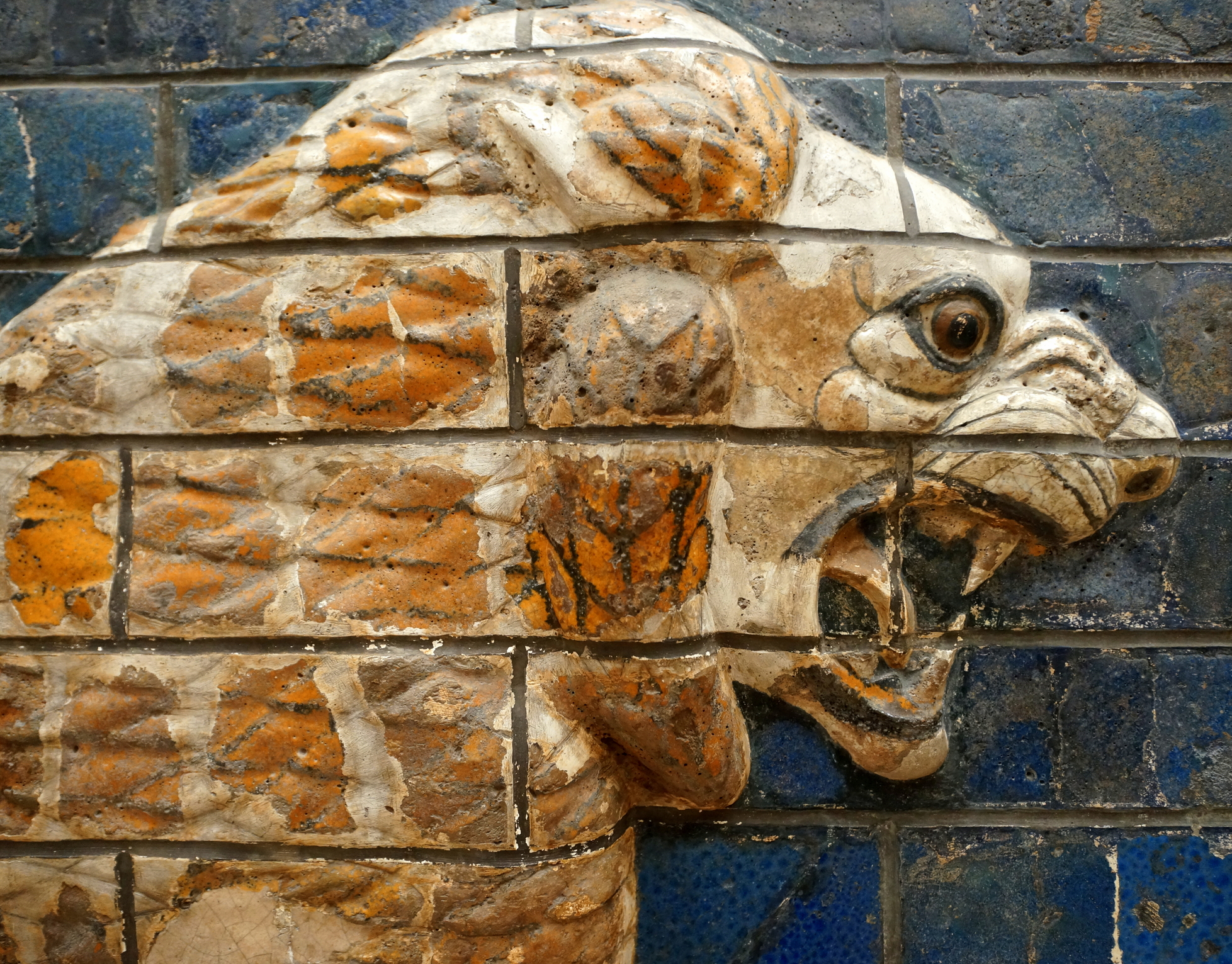
View & Download
https://www.communityconnexionschurch.com/studies/studies.html The boss was really mad. And everybody's job---and lives actually, were on the chopping block. It was an interesting group of people too. They were in the business of astrology, and reading the signs and telling folks what to believe. It wasn't just a spiritual Babylon. It was a cacophony of differing and fluctuating opinions of what was true---kind of like the stuff you get on the web today? What's a Daniel---a wise person---to do? Tact and wisdom go a long way! Photo Credit: Photo 43761168 © Alunablue Dreamstime.com

View & Download
How do you live and cope and thrive and survive in a spiritual and digital Babylon like we live in today? Daniel and crew give some interesting lessons in this chapter, that put a special focus on this New Testament admonition: Romans 12:18 If it is possible, as far as it depends on you, live at peace with everyone. Apparently, that means even your crazy boss! Photo Credit: Babylonian statue fierce facedreamstime_m_27017919 Photo 27017919 © Andersastphoto Dreamstime.com
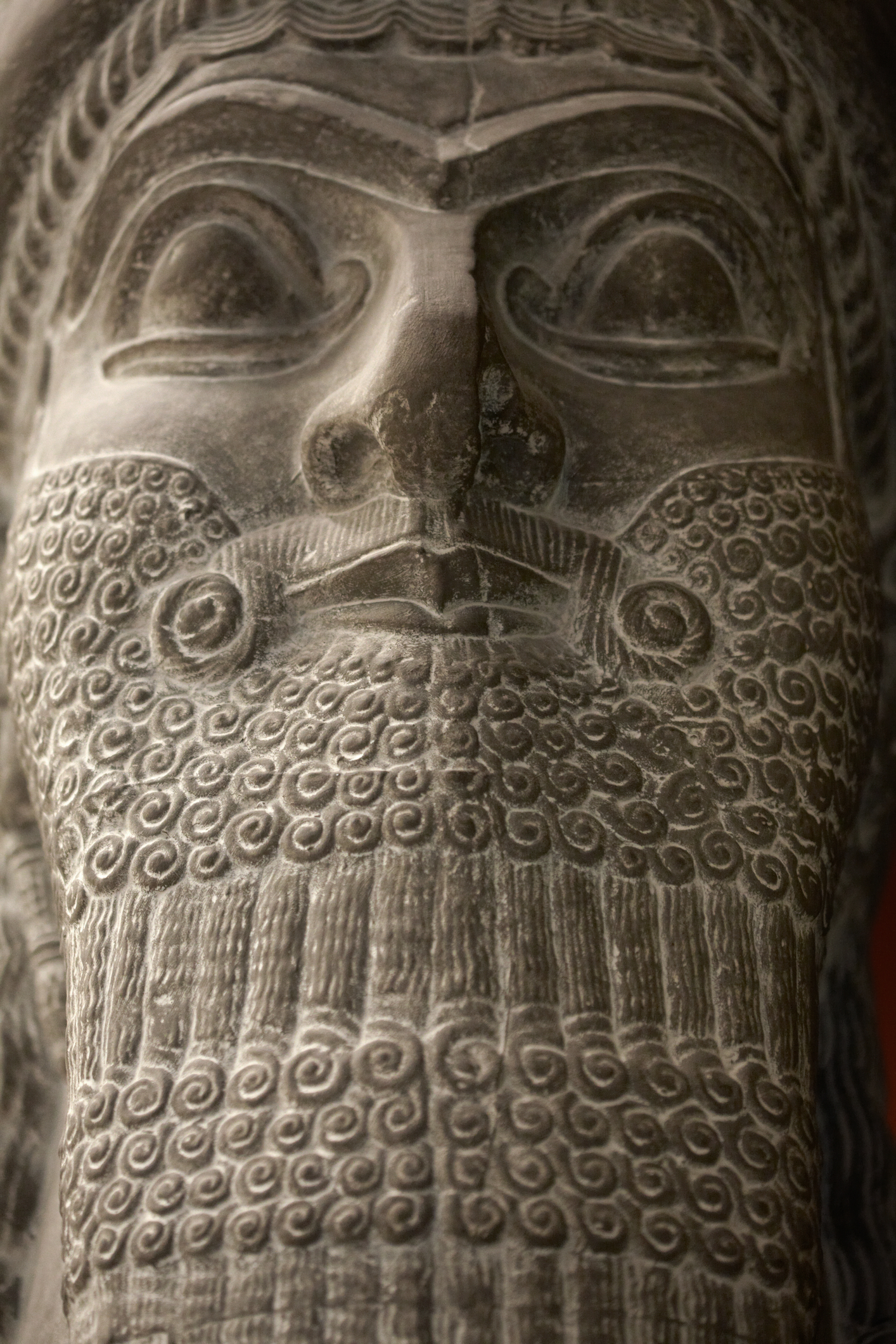
View & Download
We live in what some have called a "digital Babylon." A cacophony of voices, media assertions, truth, and non-truth. We live in a culture that spiritually speaking, is a lot like Babylon---divided. Cultish. Vying for power. Dominating or being dominated. Does the bible have anything to say about how to live in this culture? I'm revisiting this book in our "From the Ground Up Series" at CCC and posting studies from it on our website. I don't know what exactly is going to shake out yet. But I know every time you look into the multi-faceted jewel of God's word, something new shakes out. Enjoy! Photo Credit: Photo 38715881 © Jodien777 | Dreamstime.com

View & Download
I love looking for connexions! They almost always are always there! I'm comparing the last two chapters of Ezekiel to the last two chapters of Revelation. There are ConneXions---and embellishments too. When I saw that God is the "Temple" for the Holy City in Revelations, I also saw that Jesus is the Lamp of the City. He's also the Light! So consider this---the One who is the Light of Life is also the One who first incarnated to become the perfect vessel for the light, a Lamp! And we share in His incarnated life, and can become "lamps" too! Just so amazing to me! Photo Credit: Photo 43794038 © Justsh | Dreamstime.com
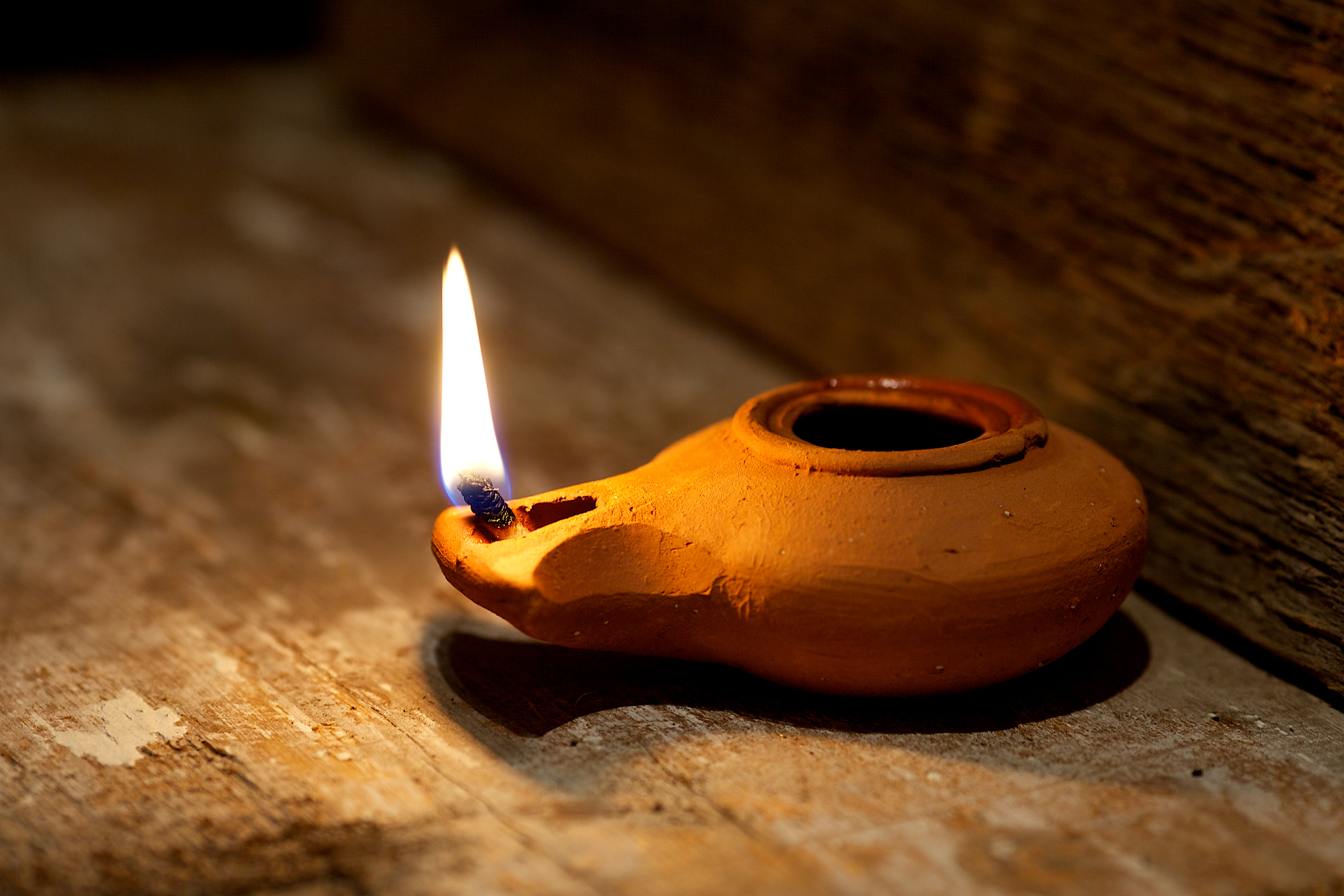
View & Download
Ever hear of the mile-high city? Check out the one that's 1400 mile high---and long---and wide. Like I said yesterday---more to question, more to believe.
View & Download
Doing a series on the connections between Ezekiel and Revelation.What are they? How are they different? What does this mean to us? More to question, more to believe!
View & Download
You can't help but see parallels between the last chapters of Ezekiel and the last chapters of Revelation. I'm going to finish up Ezekiel today, and study those parallels---and do a bit of a mini-study on the book of Revelation---how to use it, not abuse it. The bottom line---Jesus is going to return. It's going to be great! And everyone gets a fair chance to live in joy in eternity forever! Photo Credit: Second coming dreamstime_m_139668895 Photo 139668895 © Frank Manno Dreamstime.com
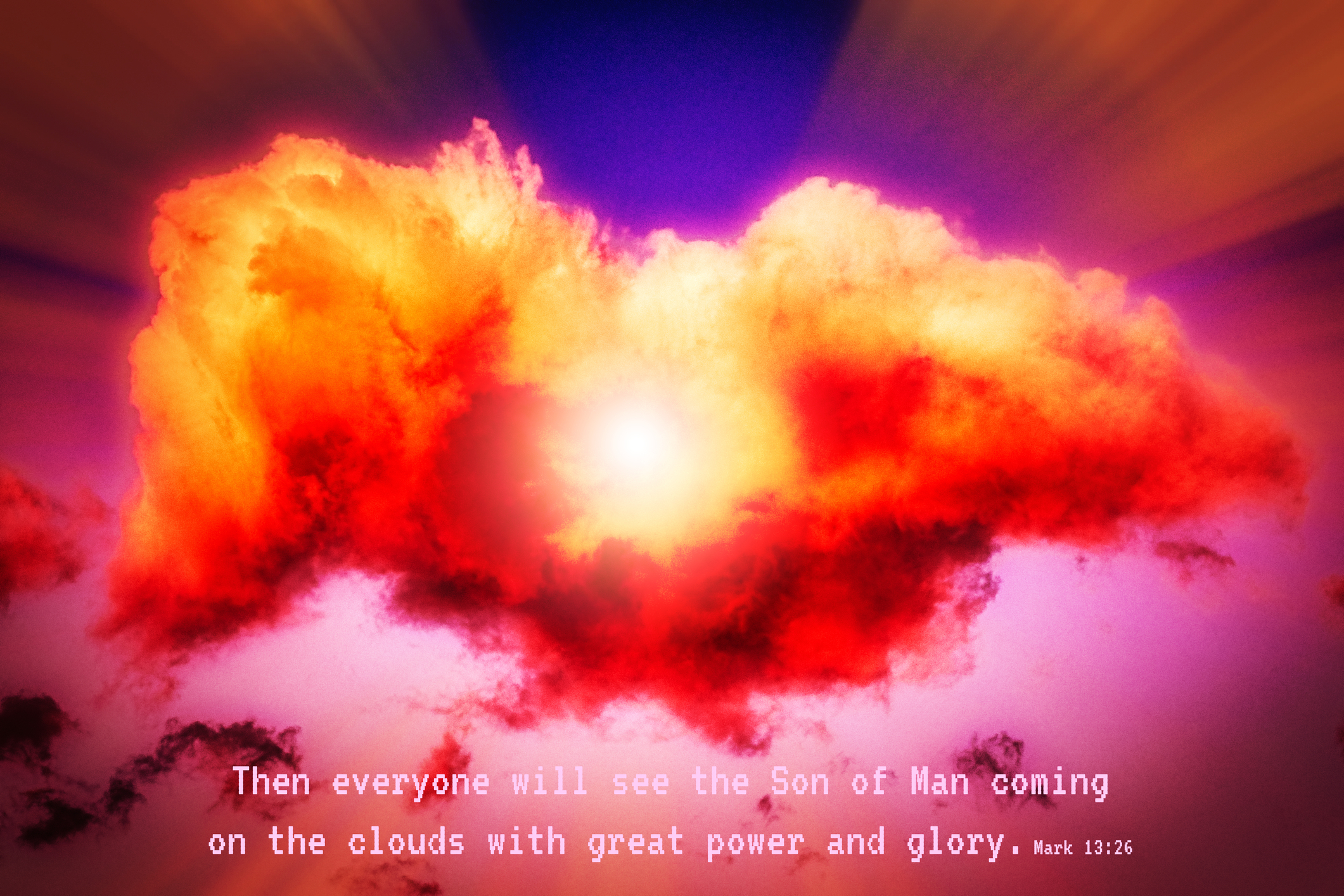
View & Download
Fascinating nuances are included in this chapter for the serious bible student. Dan is included in this vision, but he's not included in Revelation's vision of the tribes in the Kingdom. Old historical positions and status are honored by God. And the contrast between God's perfect vision and acquiescence to human requests are suggested. Our God is fascinating. His word is amazing. Enjoy Photo Credit: Biblical scrolls dreamstime_m_115833282 (1).jpg
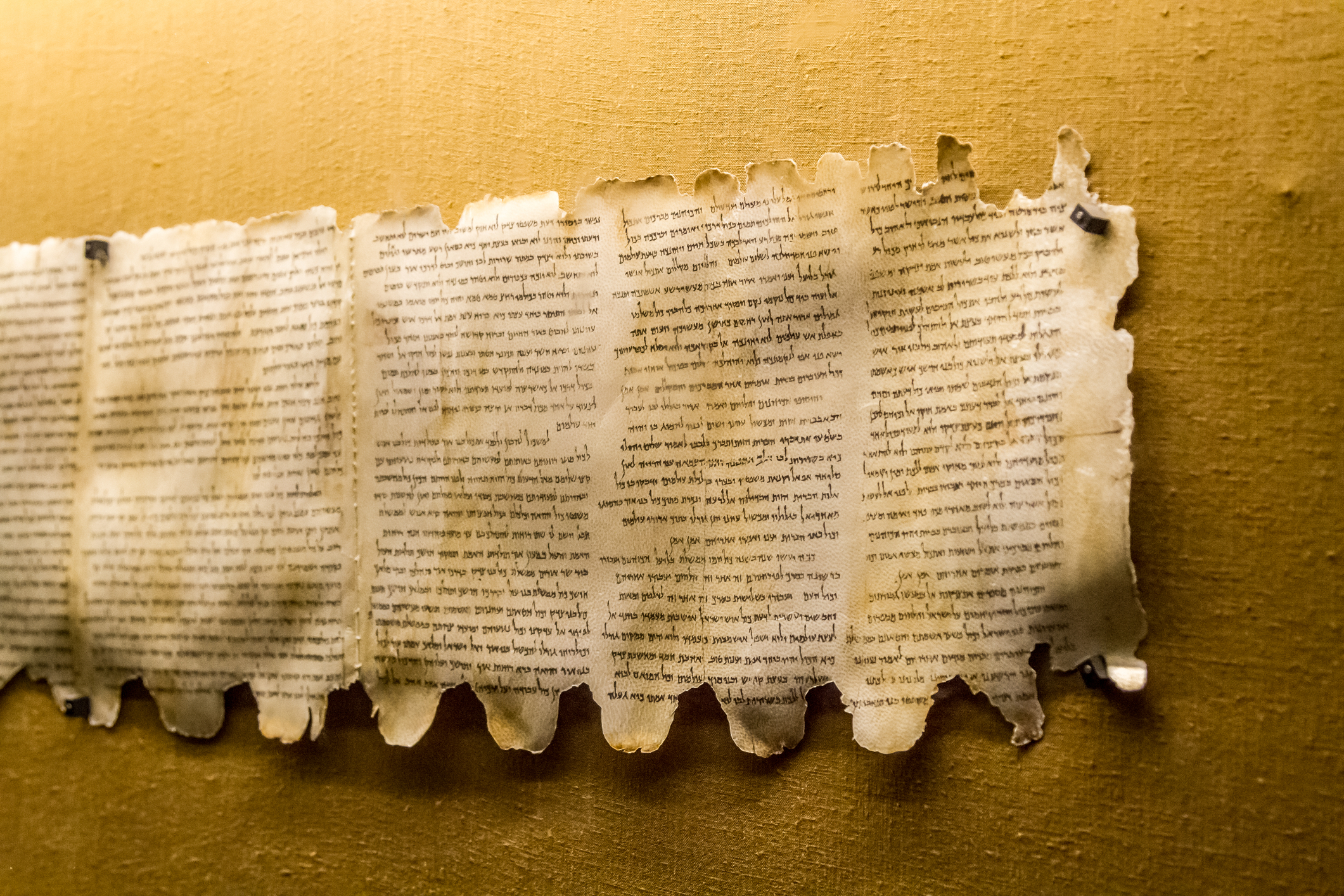
View & Download
Ezekiel 48 talks about the land being apportioned to the restored, future nation of Israel tribe by tribe. Since we are the Israel of God (Galatians 6:16), what does this mean for us? I used this prophetic parable as a jumping-off point to see what the New Testament has to say about our inheritance. It says a lot! And the beauty of it is that God has amazing things in store for us as "the Israel of God." We have a great inheritance coming. We can dwindle it or lose it too, apparently. But God preserves it for us and enables us to participate in it in some way now. I want to participate in eternal life now, and inherit all that is to come in the future! Enjoy! Photo Credit: Inheritance dreamstime_m_85233268

View & Download
The Temple is restored, the River of Life is flowing, leaves are there for the healing of the nations, prophets swim in the River of Life, and now the tribes of Israel are about to receive their allotted inheritance. The concept of inheritance is huge in the Scripture. In fact, the New Testament speaks often about receiving “an allotment” from the Lord, and “inheriting the Kingdom of God.” I want to press that concept, to understand the OT roots of the concept, and more importantly, what it means to us today. Christ was serious! We shall inherit the earth! Enjoy! Photo Credit: World Christmas Ornament dreamstime_m_47362752

View & Download
The River of Life will even make the Dead Sea come to life. But there will still be lingering salt marshes in its environs. Could this picture how bitterness and unforgiveness can corrode us and even picture the "hell" of the future? I wonder! Don't look back. Live now and look forward! Photo Credit: Dead Sea Salt dreamstime_m_36063858

View & Download
What an amazing concept! I love the song of the same title. But I love the concept that is shared in this prophetic parable, and shown to have great significance for us in the last chapter of Revelation. What does it all mean? And why are some "salty marshes" left in areas healed by it? Could this speak to us of the danger of bitterness in our lives? I'm going to explore, and theologically swim, in the River of Life for a while. Photo Credit: En Gedi dreamstime_m_66817044

View & Download
God protects our destiny. He created us for good works which He prepared in advance for us to do. As I consider what the symbolism means in this prophetic parable, I get this impression. He's telling us this. Even though Jesus is His and Our Prince, the Prince shares inheritance with us! He will have His assigned inheritance---but God will protect ours too and ensure it comes back to us. Even if we lose sight of it or even possession of it for a while---God will ensure it always comes back. God is our destiny. We each have a special path. God protects our destiny! Photo Credit: Destiny dreamstime_m_37142569

View & Download
I will admit, that's a stretch. But I wouldn't put it past Him. In my review of this chapter where it talks about offerings made to God in the prophetic parable the Ezekiel Temple is, it talks about quantities of flour moistened with oil. So when searched on the Web for recipes resulting from flour and oil, voila, I get soft shelled tor????tillas! So God likes Mexican food. From now on, instead of singing "Holy, Holy, Holy" I'm singing "Ole! Ole! Ole!" Pass the chips and dip! Photo Credit: Tortillas and Bean Dip dreamstime_m_19942440
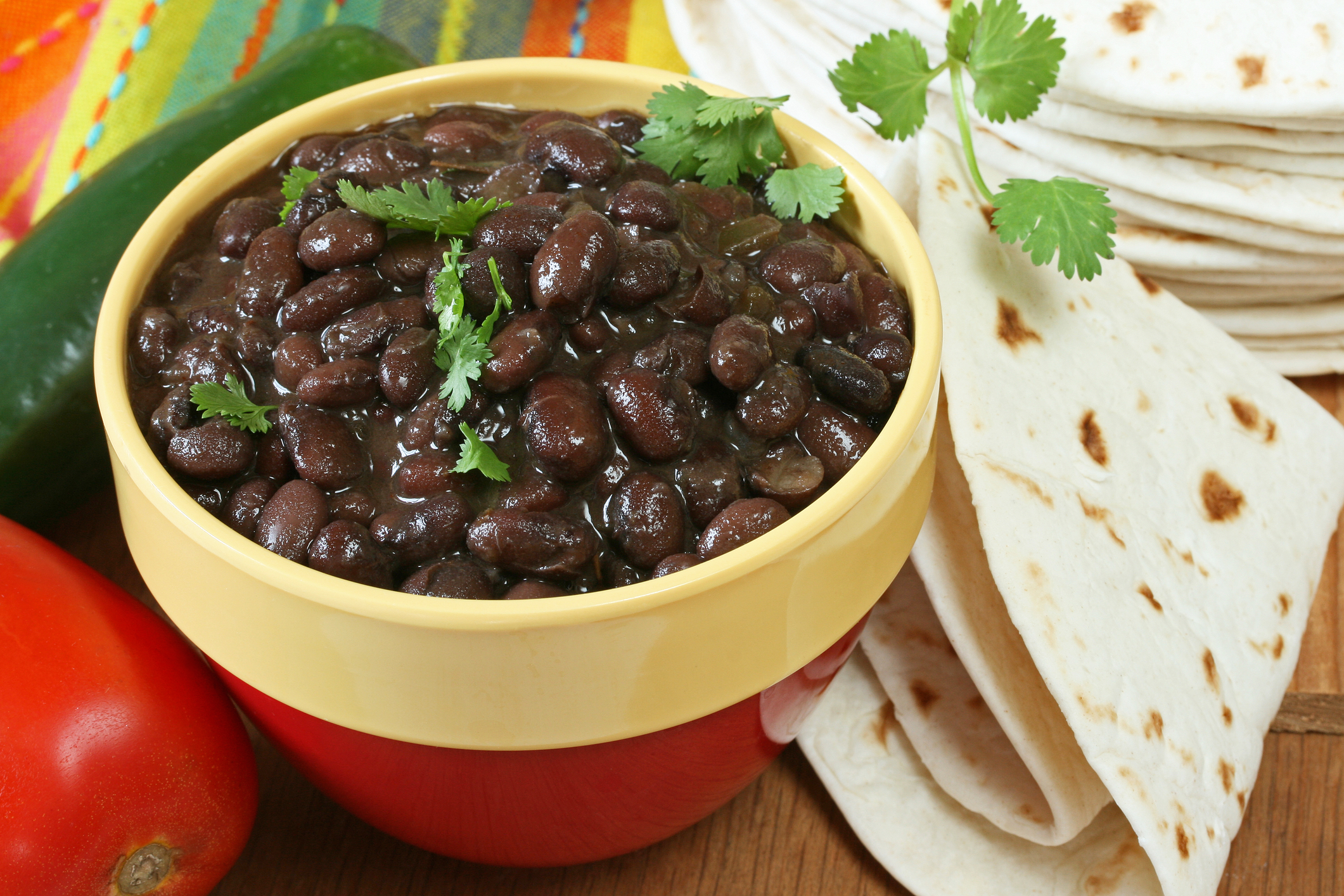
View & Download
We're hidden with Christ in God. And God's love for us is the heartbeat of our existence. And the beat of his perfect forgiveness and sustenance of our existence is pictured in this prophetic parable of the ongoing efficacy of Christ's completed work on our behalf. I love the nuances of the kind of offerings we make with Him as we participate in His life. Some of them are "burnt" offerings---something we completely offer to God. Some of them are sin offerings. There are even grain offerings! God is infused in our entire existence and even daily being. Photo Credit: Hidden with Christ in God dreamstime_m_143582996 (1).jpg
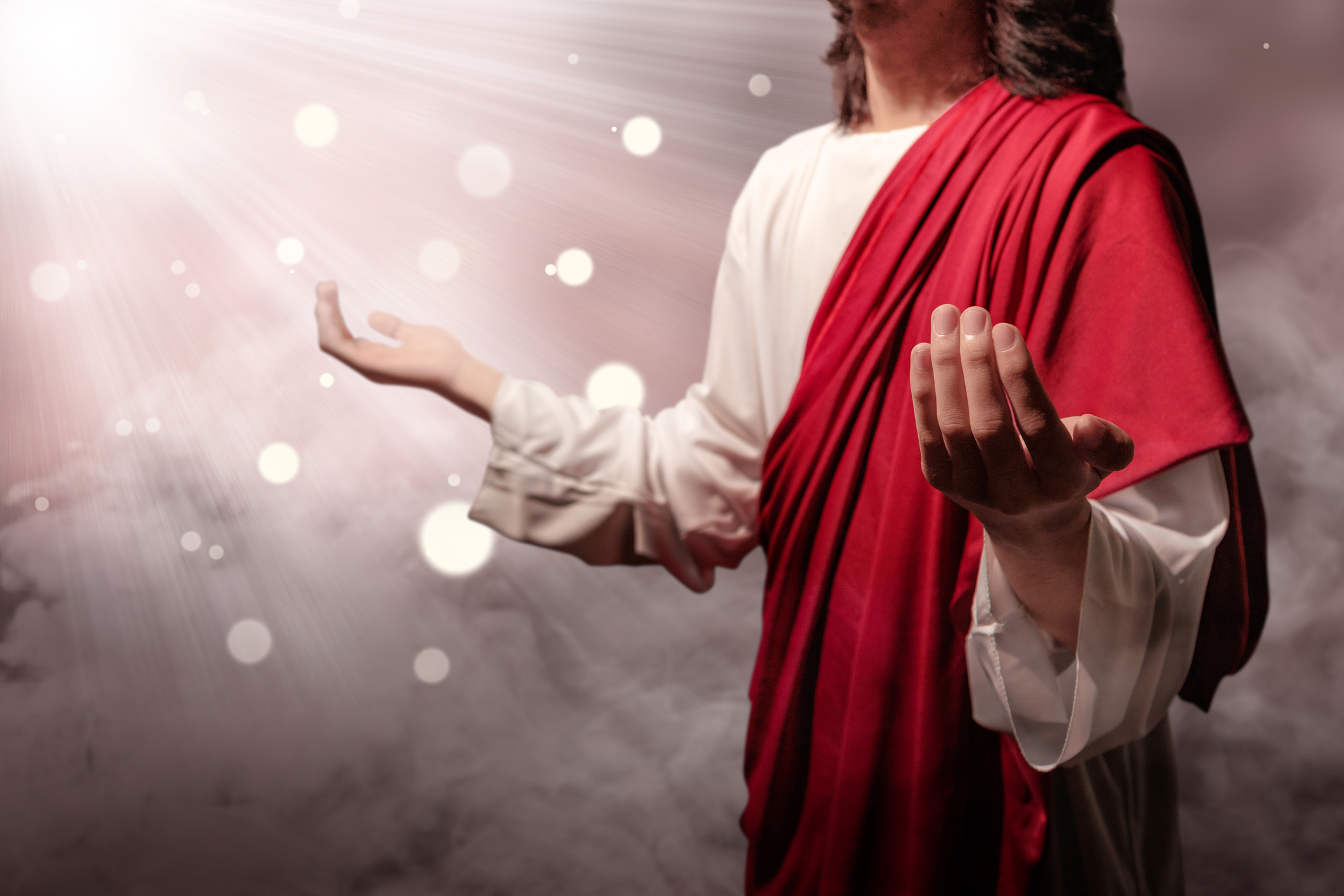
View & Download
This prophetic parable now speaks in detail of the need for sacrifices made by the Prince of the people to justify their continued existence. Obviously, Christ has fulfilled that for us. But why does God speak in such detail about this? We're to be continually offering burnt offerings and sin offerings, and the prince is supposed to do a lot of that on our behalf. Perhaps what's being pictured here is our ongoing need for sacrificial support by God for our continued existence. And His ongoing willingness to provide it! Our God is an amazing God. He sacrificed so we could exist. Even after we ditched Him, He continued to sacrifice on our behalf. And in Christ, He still does. Photo Credit: Sacrifices dreamstime_m_86114285

View & Download
Holy smokes! God is serious about us being both holy and whole! They are interrelated. We're supposed to be both. Deeply human, and deeply holy! And we are---because of Priest and Prince, Jesus Christ. So the future Israel would not only have "Bible Study" as their worship---they'd have a full-blown Temple that was so important it was to be the center of the newly divided land! What is God teaching us in this portion of the prophetic parable this whole section of Scripture is turning out to be? One thing for sure---God is at the center of all our lives, individual and corporate. And we have a Priest and Prince, two functions of one very special Person---our brother, by the way, Jesus Christ. Hmmm---we're definitely "well connected" in the God-world!

View & Download
The priests had a duty. It was described in verse 23 of this chapter. They were: 23 They are to teach my people the difference between the holy and the common and show them how to distinguish between the unclean and the clean. There is a difference between the holy and the common. There is a difference between the clean and unclean. There is a difference between you and those that don't know the Lord----because you're living to let Christ "mass" in you every day in this world. You are living to be what you are --- holy! Photo Credit: Man and Universe Fill All Things dreamstime_m_153665409 (1).jpg

View & Download
We are holy! In this passage, speaking to priests in the future Temple, it talks so profoundly about knowing the difference between the common and the unclean, the holy and the profane. And since God has made us a holy priesthood, the analogy in this parable of a chapter becomes clear---we are holy! And we're supposed to live that out and give that out! Our holiness can actually transfer to people and things around us. Wow. We are so blessed. Why should we be surprised? After all we've been given the Holy Spirit!
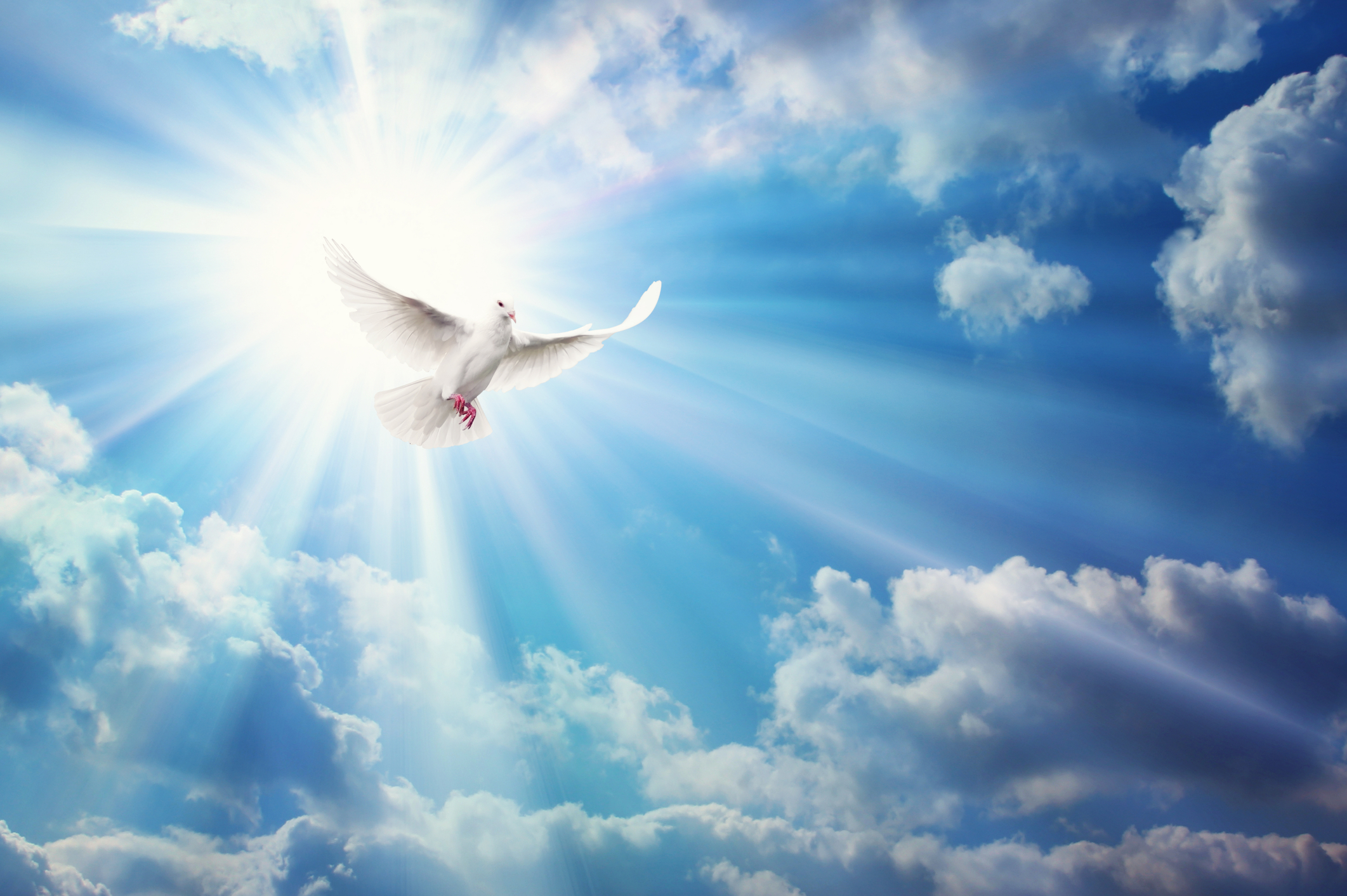
View & Download
We stopped here yesterday: 5 The LORD said to me, “Son of man, look carefully, listen closely and give attention to everything I tell you concerning all the regulations and instructions regarding the temple of the LORD. Give attention to the entrance to the temple and all the exits of the sanctuary. We determined this was a call to look at Jesus and pay Him special attention as our Way into God’s Holy Temple. Let’s see what else God wants to show us. Photo Credit: Explosion of Light dreamstime_m_173151220

View & Download
An interesting approach to the way Levites and priests will get to serve in this restored Temple in this parable of the restored Kingdom of God. Will our judgment be like this? Will there be some things we lose out on because of choices we've made in this life? I'm not saying this for sure. But this restored temple and the vision of what happens in it is to me a parable God used to describe heaven to these Israelites who would not have understood yet what God was going to do with Christ. He spoke in terms they could relate too. I wonder if some transferences can be made.
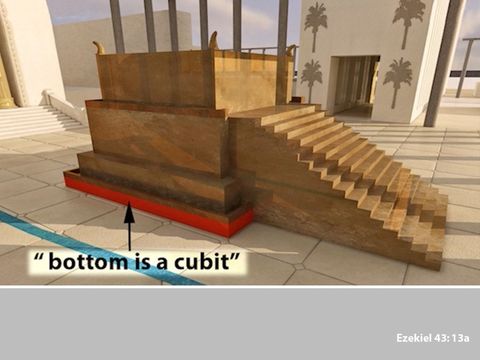
View & Download
So let’s look at Ezekiel 44 44 Then the man brought me back to the outer gate of the sanctuary, the one facing east, and it was shut. 2 The LORD said to me, “This gate is to remain shut. It must not be opened; no one may enter through it. It is to remain shut because the LORD, the God of Israel, has entered through it. 3 The prince himself is the only one who may sit inside the gateway to eat in the presence of the LORD. He is to enter by way of the portico of the gateway and go out the same way.” Ok, looking at this through my Jesus lens, here’s what I see. Only Jesus, our Lord, High Priest and King is the One who “eats” in the presence of the Lord on our behalf. He enters by way of the portico of the gateway (“I am the door for the sheep – John 10), and we enter through Him into the Presence of the Lord. This is not so much to keep us from holiness, as to showing us how holiness is accessed and made available for us---through Jesus. Photo Credit: Explosion of Light dreamstime_m_173151220

View & Download
I've been struggling to understand why a God who no longer requires animal sacrifices gives us an 8-chapter explanation of a perfectly symmetrical Temple and its altar for a restored Israel. And I think I found the reason! It's to assure the Israelites---and us---or the lengths God has gone to in order to completely, fully, totally, and irrevocably pardon us and keep us pure. It's all about Jesus! And that is amazing!
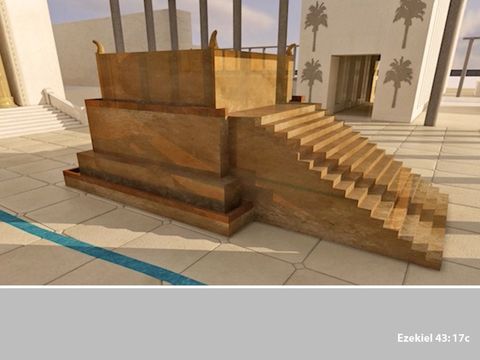
View & Download
So now the bronze angel is going to show Ezekiel how the glory of the Lord fills the temple once again. The detailed descriptions of the perfected version of ancient Israel’s worship system are going to continue. I do know the Scripture in both the Old and New Testaments speak of the tabernacle/Temple complex being a copy of the ones in heaven, a shadow of heavenly things. Hebrews says: They serve at a sanctuary that is a copy and shadow of what is in heaven. . . The law is only a shadow of the good things that are coming—not the realities themselves. For this reason it can never, by the same sacrifices repeated endlessly year after year, make perfect those who draw near to worship. Yet great pains are taken to describe this. Why, I wonder? Enjoy! Photo Credit: Man of metal dreamstime_m_129474570

View & Download
We are holy. God emphasizes in so many ways. We're not common, we're not unclean. Whatever the "bronze" looking man meant to show Ezekiel and us with the vision of the beautifully symmetrical, wonderful Temple, I know it includes this message---we are not common! We are unique. We are holy. Live like it. Our God fills us with His Holy Spirit, and we're not just costume jewelry. We're the good stuff! Enjoy your status in the One who loves you more than you love yourself! Photo Credit: bronze angel dreamstime_m_168332963
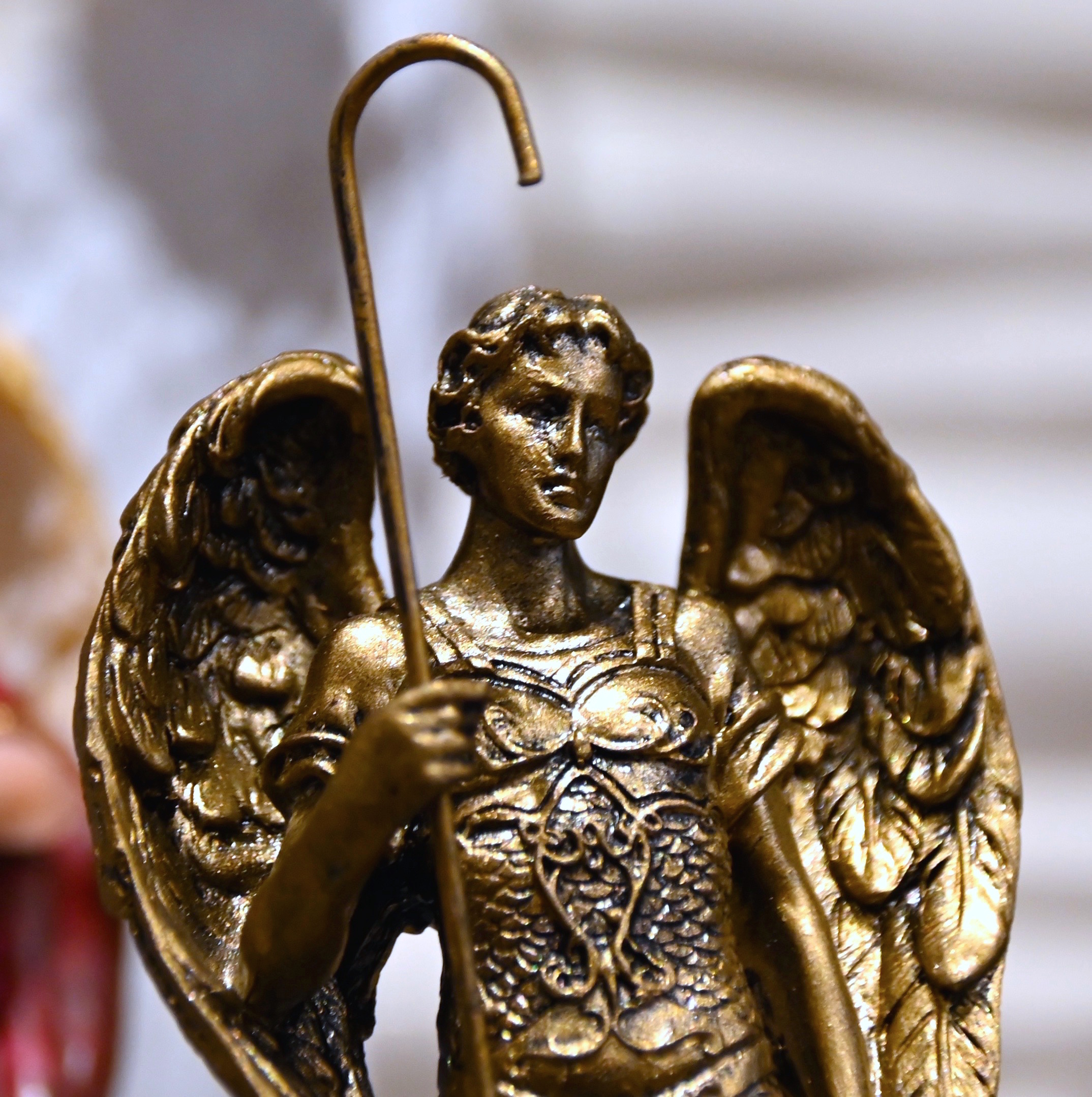
View & Download
Well, sort of. I am attempting to write a paraphrase translation of a web-based interlinear Hebrew version of a portion of this chapter to see what shakes out. I'm calling it the JLV translation. The Jim Local Version. I believe God really wants us to study His word, and really understand it, so out of respect to Him I'm attempting to wrestle with this complicated passage and see how they ended getting the information they got to produce a graphic like the one I posted. I'll move on after this attempt. Sorry. I'm not A.D.D., I'm also O.C.D. and little ODD too. :)
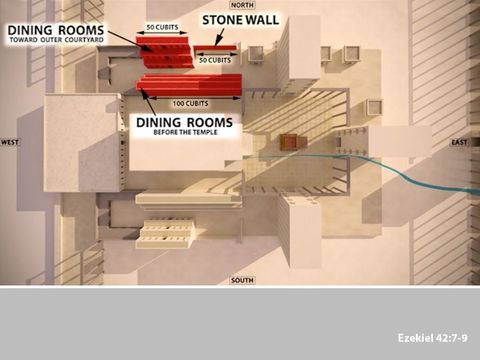
View & Download
How did they ever figure out this translation and this picture of the temple? I tried to see if I could work my way back from the English to the Hebrew and back again. I am overwhelmed with how Hebrew works, how translators translate, and how richly detailed t his vision of "The Temple" is. Since God is my Temple, I still believe He's trying to teach me something. And just because I don't get it doesn't mean God is a bad communicator. It means He wants me to wrestle with understanding and grow! I love being in "God-Life University." I'll always have more to question, more to believe.

View & Download
We continue our journey into the vision of the Temple Ezekiel is given. Today, we’ll see some chambers the priests used to eat in the presence of the Lord. The elders ate in the presence of the Lord from the very beginning. Notice this vision of God they were given right before Moses went up the mountain to meet with God as described in Exodus 24. 9 Moses and Aaron, Nadab and Abihu, and the seventy elders of Israel went up 10 and saw the God of Israel. Under his feet was something like a pavement made of lapis lazuli, as bright blue as the sky. 11 But God did not raise his hand against these leaders of the Israelites; they saw God, and they ate and drank.Today, we eat His flesh and drink His blood at Eucharist. And “He stands at the door and knocks.” When we open, He comes in and eats with us! (Rev 3:20) Enjoy!

View & Download
When Jesus was tempted by Satan in the wilderness, Satan tempted Him to turn stones into bread. He'd been fasting for 40 days. He was hungry. But He said something that always struck me. "Man shall not live by bread alone, but by every word that comes out of the mouth of God" (Matthew 4, Jesus quoting Deuteronomy 8:3). so what's the big deal? Well, Jesus Himself obviously studied the Bible. He memorized it. He used its menu of options to chose His reactions to everything that came His way. If He did it, why wouldn't or shouldn't we? So yeah, temple stuff can be confusing and laborious. But there's always a reward, the deeper you dig into the Treasure-house of God's Word. So enjoy! Image from "freeimages.com"
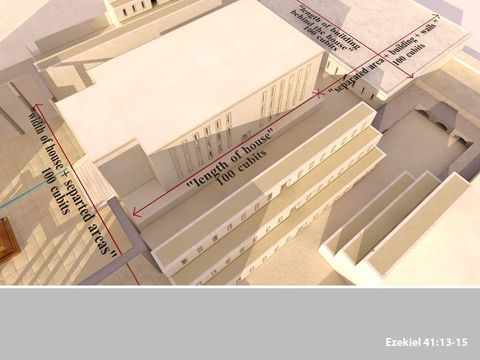
View & Download
Ok. Maybe that title is a little over the top. It's sometimes so hard to read these highly detailed passages. But what are you going to do? God tells us to "look carefully and listen closely and pay attention" to them. And then to "tell the people of Israel everything you see." So . . . I've crawled through these detailed descriptions as closely as I could. I think I've reached a point of no retention for the rest of the day. But there is always the joy, the ecstasy, of being in God's Presence in such a deeper way. I love Him. He is so fulfilling. And He fills you to the full! What awaits us when we are spiritual material bodies again and not just dust, and can receive more of His Word and Life! Photo Credit: Spiritual body dreamstime_m_36530778 Photo 36530778 © Nejron Dreamstime.com

View & Download
It's a temple that's never been built. And some say it is architecturally impossible to build. But God wants us to study it and consider it. Going to some more literal translations, you see the use of lots of variables of 100's, 10's, 5's, and you see 14's and 12's thrown in---all representative numbers in Scripture. And you also see the way the Hebrews (and perhaps the ancients) measured---by handbreadths and forearm lengths. And in describing rooms, and gates, some were said to have shoulders. How anthropomorphic. But of course, our God is fixated on us. He loves us more than we love ourselves. Man is the center of God's universe. He loves us that much. Photo Credit: Man and universe dreamstime_m_150196347 (1).jpg

View & Download
God and the Lamb are our Temple, Revelation tells us. But God also told us to pay attention to this Temple. Why? What is the Lord wanting us to see? What comes to mind today is the amazing symmetry for one thing. The impossible architecture for another---it's almost like this thing has to exist in a world where our laws and physics don't apply. The graduation of ascents---seven steps to the first gate, eight to the Inner Court Gate, and 10 to the Temple. And the constant place where burnt offerings are always being given, and atonement always being made---or perpetually made, forever! The things God has had to put up with just to create and keep us going. It must be true---He does love us more than we love ourselves!
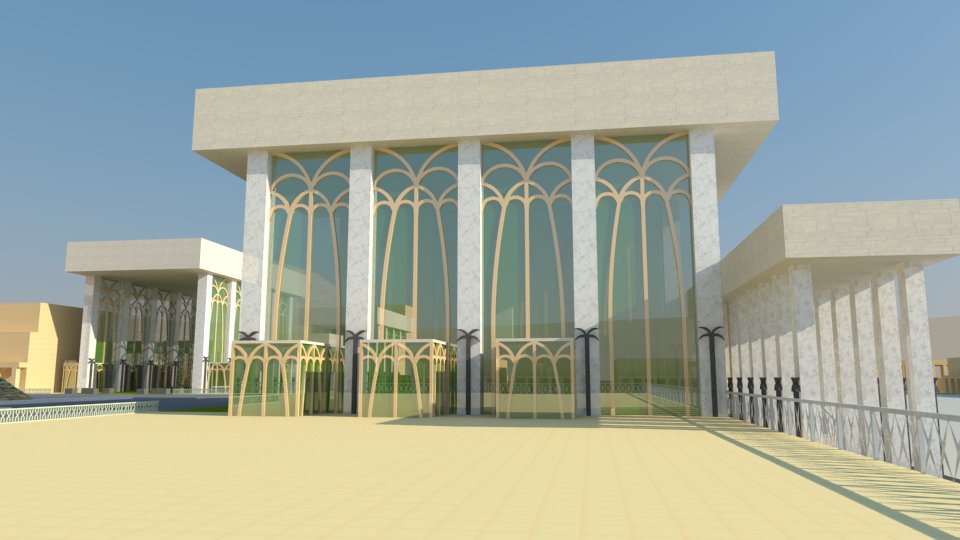
View & Download
So we are going into the heavenly vision of the Temple given to Ezekiel, step by step. I’m taking sort of an “Indiana Jones” approach, discovering this amazing treasure one step at a time. It’s kind of neat digging through the Scripture for this buried treasure. It reminds me of this saying of Jesus (Matthew 13:52).He said to them, “Therefore every teacher of the law who has become a disciple in the kingdom of heaven is like the owner of a house who brings out of his storeroom new treasures as well as old.”To me, the Bible is a treasure trove. The more you dig in and study, the more you learn and grow. God and Christ are my Temple. But they’ve given us this Temple with detailed dimensions to study. What do they want us to learn? Let’s dig in.Indiana Jones Fedora dreamstime_m_78524218 (1)

View & Download
Last time we saw a Scripture in Revelation that gave me room to pause and reconsider what this prophecy might just mean. It was in Revelation 20:22. It reads this way: 22 I did not see a temple in the city, because the Lord God Almighty and the Lamb are its temple. If this is the case, then why is this very detailed prophecy in Ezekiel given about a literal temple with places for sacrifices and singers and priests. I have begun to discern that God has been speaking to us in parables for much longer than the day of Jesus. What does this parable mean? Let’s read and learn. Photo 25782114 © Andrea La Corte | Dreamstime.com
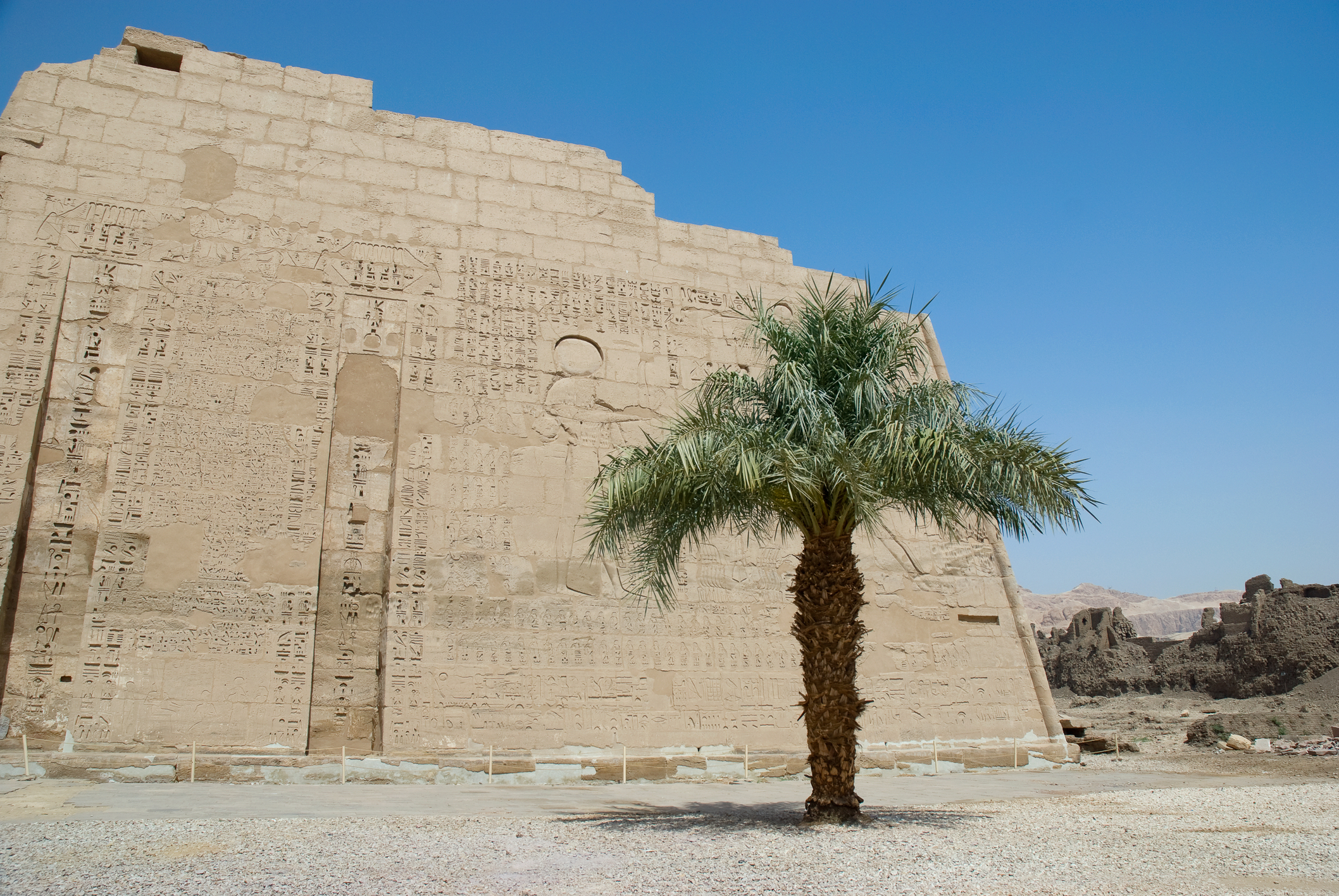
View & Download
The Bible talks about a "heavenly city" coming down from God at the end of time. And it has no need of a Temple. Because God and the Lamb are its Temple. In Ezekiel, a full blown description is given of a Temple. And I believe it is important to read every word of God. So, it's time to study this Temple, and see what we can learn. Photo Credit: Illustration 132176256 © Rolffimages | Dreamstime.com

View & Download
Ezekiel 39 - Gog and Magog --- Is This Possibly About the Ultimate Defeat of the Dark Side Within? Long story short, the names “Gog and Magog” have become symbolic of those nations against God’s people. Perhaps, as one scholar suggests, it is also symbolic of the “red” and evil version of humanity in all of us, that will be destroyed by Christ’s presence in us at the judgment. It’s based on the assumption that the binaries in Scripture, “the good” and “the wicked,” the “sheep” and the “goats,” represent the good and bad side of us all. That’s a fascinating way of looking at it. What’s evil about us will again try to rear its ugly head in us, even after Christ has conquered sin and reigns in us for the perfect period of time in our first heaven experience of the church age, where our good lives side by side with our evil. But even though the evil rises in us again after years of Christ’s rule in our hearts, it won’t win! God will destroy it! I think I like this interpretation the best! Photo Credit: dark side of human nature dreamstime_m_27534237 ID 27534237 © Yuriyzhuravov Dreamstime.com.jpg

View & Download
"I speak to them in parables" Christ explained. What if . . . what if much more of the Old Testament is a "parable" than we realize? So what might Ezekiel 38 ad 39 mean in that context? Hmm . . . like Barbra Streisand sang in Yentl, more to question, more to believe. Either way, He's always our Good Shepherd! Photo Credit: Jesus the Good Shepherd dreamstime_m_125695858 (1).jpg
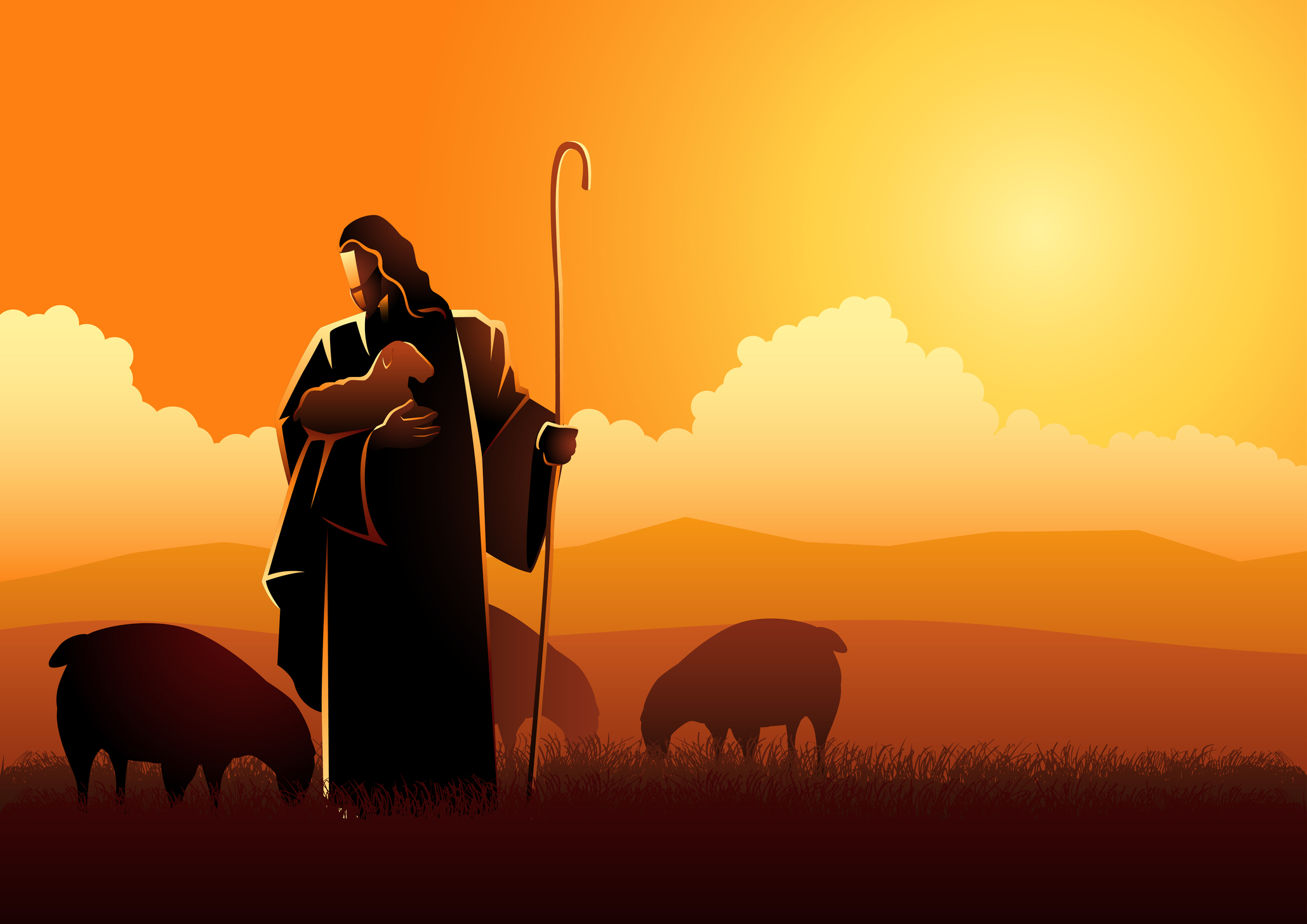
View & Download
What do these prophecies mean in Ezekiel 38? Do they have to be fulfilled literally? Or is there another way of looking at them? What if we're not looking through a "glass," or "mirror" darkly at the future---but through a lens, or a prism? What might these prophecies mean in that context? Photo Credit: By Tamasflex - Own work, CC BY-SA 3.0, https://commons.wikimedia.org/w/index.php?curid=17152418
View & Download
I wrote a song about this chapter years ago. Or as I prefer to say, God wrote a song through me. This portion is entitled "The Place of Unwalled Lands." It's part of a suite I call "Another New World Symphony." And one day, I hope it grows up to be a for-real symphony---at least in heaven. Rejoice ye trees, break forth you into singing! Lift up your gnarled and ancient crooked hands! Rejoice ye hills, and hear their joyous ringing! You are become the place of unwalled lands! You are again a tribute to your Maker! You are to men a symbol of His strength! You are restored to all your former beauty! His Kingdom rule now covers all your breadth and length!

View & Download
So what does this prophecy refer to? I'm proposing a new possibility that I've never considered until today. Maybe inspired? What if the two "tribes" actually refer to Jews and Gentiles made one as the people of God under Jesus. Since all are going to become part of Spiritual Israel, does this reflect the two-fold nature of God's people? Photo Credit: Photo 168202913 © Nonneljohnvilbar | Dreamstime.com

View & Download
Judging is often associated with condemnation---but they may not be the same thing. God is going to judge us, but not condemn us. In fact, in one real sense, He'll be finally freeing us of all that destroys life in us and allow us to enter the unadulterated Kingdom of His love. How does this fit into the dry bones chapter, and the judgment to come? Let's study this fascinating chapter and spin-off topic, and see! Photo credit: Photo 34434761 © Steve Allen | Dreamstime.com

View & Download
I love this chapter. Some think it's a parable of spiritually dead people coming to life. Others, a literal resurrection to spiritual material life. Will we live again after we die? These ancients believed so. Christ did too! Do you? See what God reveals to you in this chapter. Photo Credit: Photo 45560788 © Gualtiero Boffi Dreamstime.com.jpg
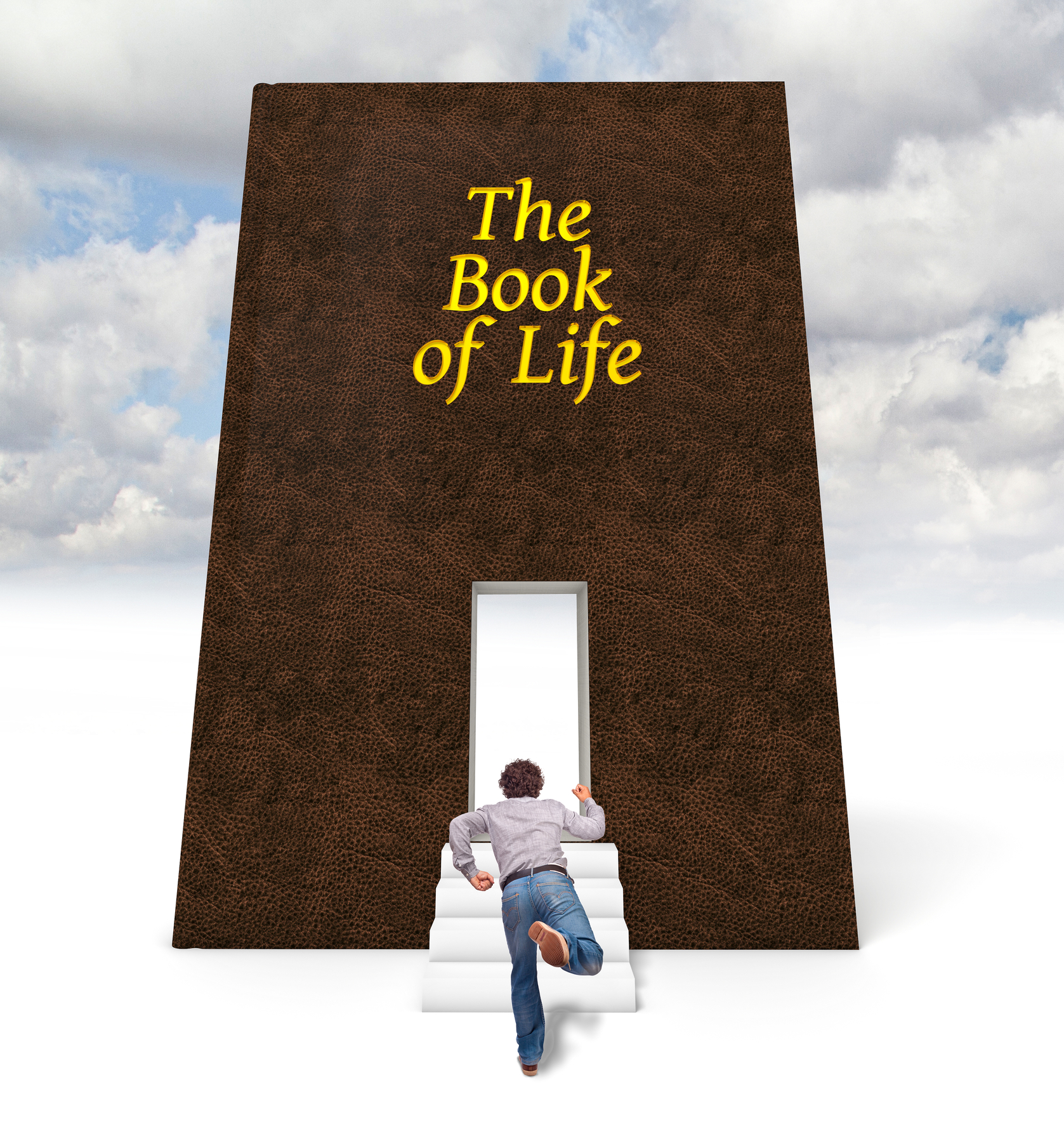
View & Download
God's Word is like the "mighty fine wine," Jeremiah the bullfrog served. Jeremiah the prophet served it as well. And it's so rich, sometimes you just have to go over it again and savor it. I just wanted one more read-through of this fabulous chapter. Joy to the World! Photo Credit: Photo 24619 © Anthony Hathaway | Dreamstime.com

View & Download
God is going to shine through His people once again. His true Israel, the Israel of God in Galatians 6, is His spiritual people from all kinds of backgrounds. He will shine through His people, and forever be their Life and Light. This means YOU and ME and ALL people who are created by Him and for Him. It's His good pleasure to give us His Kingdom. Rejoice. Good things are coming and the land will be restored to the Garden of Eden! Start living in the Garden today! And He will Shepherd us forever in it! Photo Credit: Jesus the Good Shepherd dreamstime_m_125695858 (1).jpg

View & Download
Have you ever been maliciously talked about and gossiped about? And there was nothing you could do? I have. And guess what? What goes around, comes around! God will vindicate, God will save, God, all on His own, will even avenge. It makes me want to be careful about anything I say about anyone. And it makes me feel comforted too! I love our God. He will purge sin like a lump of fiery coal ---and just leave the diamond-like beauty of all behind. Photo credit: Fiery coal dreamstime_m_108605306 Photo 108605306 © Vosslosh19 Dreamstime.com

View & Download
God does have retributive justice. He does discipline and even exact penalties on peoples or nations. But He definitely doesn't want us to gloat over the downfall of our enemies, especially if they've been our brothers! Interesting to hear God's take an the ancient nations, and to look for "God sightings" in ours. Photo Credit: ID 175421371 © Mykola Sosiukin Dreamstime.com

View & Download
November is the month of Thanksgiving. And I always like to remember the Scripture that talks about not being anxious, but rather presenting your prayer and petition to God in every situation, with thanksgiving---and how that the peace of God will guard your hearts and minds in Jesus Christ (Philippians 4:6). The covenant of "peace" God wants to establish with His people is amazing. And we have it already----in the One Who is our Life, Jesus Christ. Receive the Life of the Cross and Resurrection.

View & Download
Leaders should be "good shepherds." So on this Election Day 2020, I wanted to savor the concept of what a truly good shepherd does. Anyway, every day is "Election Day" for me. Every day I vote for Jesus as my Savior and King. And the beautiful thing is---He's going to be both of those, whether I vote for Him or not. Because God "selected"---not elected---Him, to be there for us, forever! Thank you, Father. In God we do trust! Photo Credit: In God We Trust dreamstime_m_8251668

View & Download
God addresses how he views leaders, kings, prophets, priests---and maybe even parents and friends. As Shepherds of those they love. Caring for them, and helping them to graze in the life of God. Above is a picture of a true parental shepherd----Michelle's Dad. My he be having a blast in heaven!

View & Download
We are persons living in the Person of Jesus Christ. We live solidly embedded in Him, in the Trinitarian Life of God. This is why sin produces death. It's not some arbitrary violation of some arbitrary law chosen by a Sovereign God who just wants to see if you'll obey. It's anti-Reality! It's anti-Christ. Reading this chapter with the backdrop of the Revelation that came in Christ is amazing! Enjoy! Photo Credit: Reality dreamstime_m_25773858 Illustration 25773858 © 72soul Dreamstime.com

View & Download
There are ways to die in dignity, and ways to die an undignified death. Egypt will be among the latter. But God will restore. Because all died in Him. All live in Him. And all will be restored to their image of God glory!

View & Download
We are still studying how God is bearing down on Egypt, a very ancient and proud people. And we sidetracked a bit to learn about the darkness that precedes the day of the Lord, when society's sin begins to unravel our being, and we and the created order begin to descend again into the primordial chaos that tried to claim us at the very beginning. But do not fear. God is always resurrecting. God is always saying, "Let there be light." Praise be to our God. Photo Credit: ID 92870735 © Jpegwiz Dreamstime.com.jpg

View & Download
Pharoah is depicted as a felled cedar of Lebanon. It's beautiful to read this chapter if nothing else to hear God's amazing descriptions of trees. Channels and rivers and roots and limbs---the glory of the forest is amazing. But nations that are too lofty, who try to reach the heavens with the boughts of their branches, will be brought down. That included Assyria and Egypt. That can include us too if we get too lofty.

View & Download
A Day of the Lord was coming upon Egypt. It's described in this chapter. Since scholars can't find historical records that validate all these things did indeed happen to ancient Egypt, the thought is that "Day of the Lord" is a double entendre. That indeed a day of judgment was partially fulfilled as described here. And will be completely fulfilled when all nations are judged on the Day of the Lord. Either way, I know this. God's Word is always true. Facts will emerge that validate it. Thank you, Lord, for being so real to Us in your Presence. Image Luxor Egypt dreamstime_m_168125841 (1).jpg
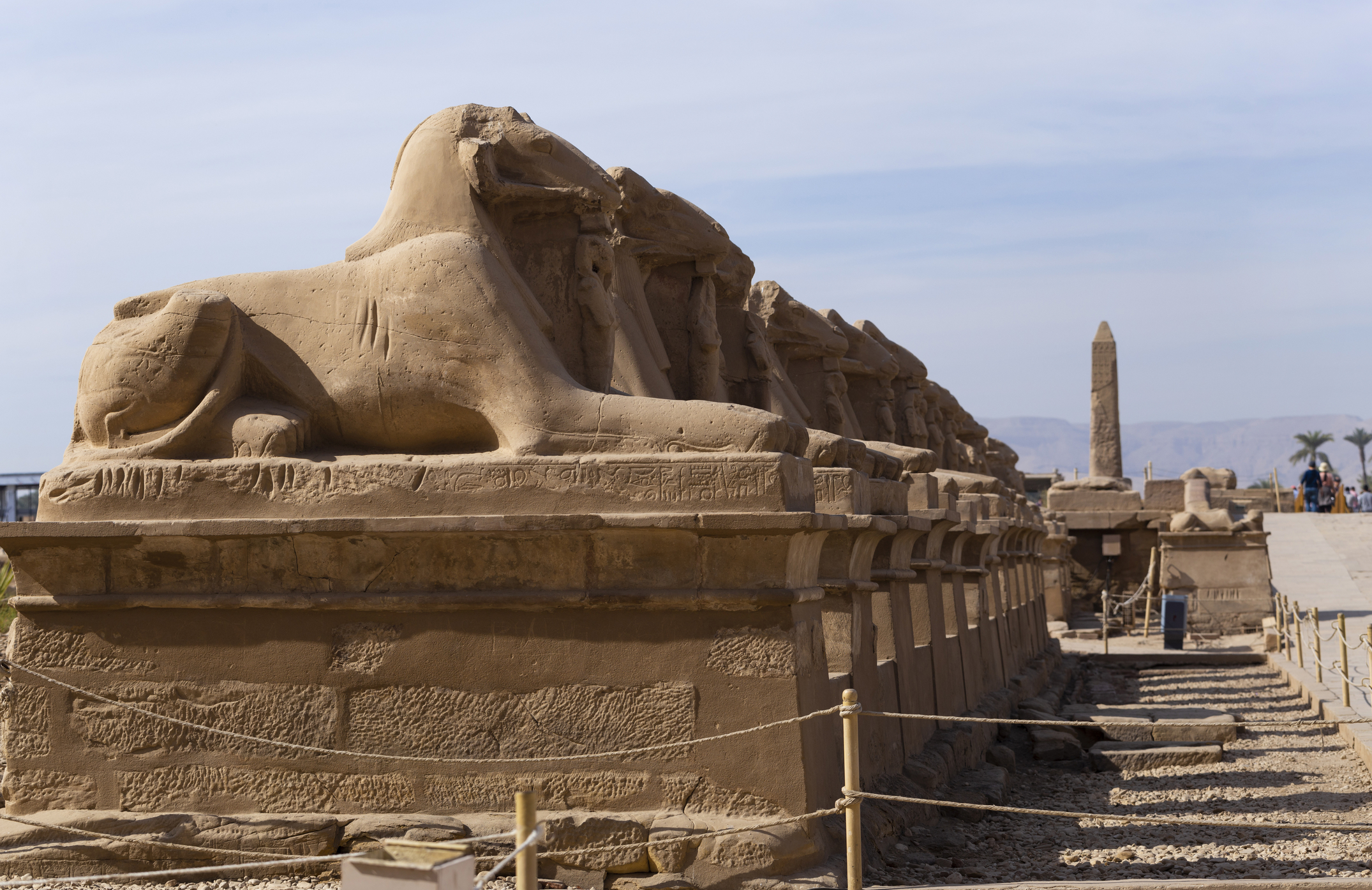
View & Download
Today I'll review again the scriptures that I dug up about the day of the Lord. The Egyptians were about to face their day of the Lord. But there is a universal one coming for all. What happens on it? How is it related to the 2nd Coming of Christ, purgatory, and a whole host of things? To quote one of my favorite vocal theologians Barbara Streisand, "more to question, more to believe." We see with a little "blurred vision" don't we? But still, it's amazing what the Lord allows us to see.
View & Download
Egypt is again prophesied against, and the phrase "the Day of the Lord" is used. I am on a bit of a "rabbit trail" study to see exactly how that word is used in the Scripture. Dug up a lot of references today, and will examine them more analytically tomorrow.

View & Download
Does God really get involved in our nations, our rulers, their actions, their rewards? It looks like He does in this chapter. You don't have to self-identify as a "God person" to be impacted by God as a Person! And His ultimate goal is to make us all "persons" in THE PERSON in the three Persons of the Trinity---Jesus Christ. God is just so amazingly cool! We are being woven into the wonderfully intricate and intimate knot of life in the Trinity! Celtic Trinity knot ID 55174881 © Dirk Czarnota Dreamstime.com

View & Download
Sidon is an ancient biblical city with many references in the Scripture, as early as Genesis 10. God has some word for her---and Christ did too when He came too the earth. It's an interesting overview---and interesting to consider the world of ancient Israel. People are intrinsically connected---when one part suffers, the rest of the body suffers too. It's part of the Trinitarian ConneXion we partake in as we live life in the Son, in the Holy Trinity. Photo Credit: Photo 109179483 © Pop Nukoonrat Dreamstime.com

View & Download
Prophecies seem to shift from one thing to another, just like dreams do, inexplicably. While the ruler of Tyre is addressed in the first part of this chapter, the "king" of Tyre is addressed next. Many see this as the back story of Satan, a once shining cherub who became corrupt and was cast down. Again, the source of his corruption---believe it or not, trade and amassed wealth. It's a consistent theme in Scripture. In reality, we tend to forget that "dust we are" and to dust we shall return! Photo Credit: Photo 175973655 © Jennifer Wallace Dreamstime.com.jpg
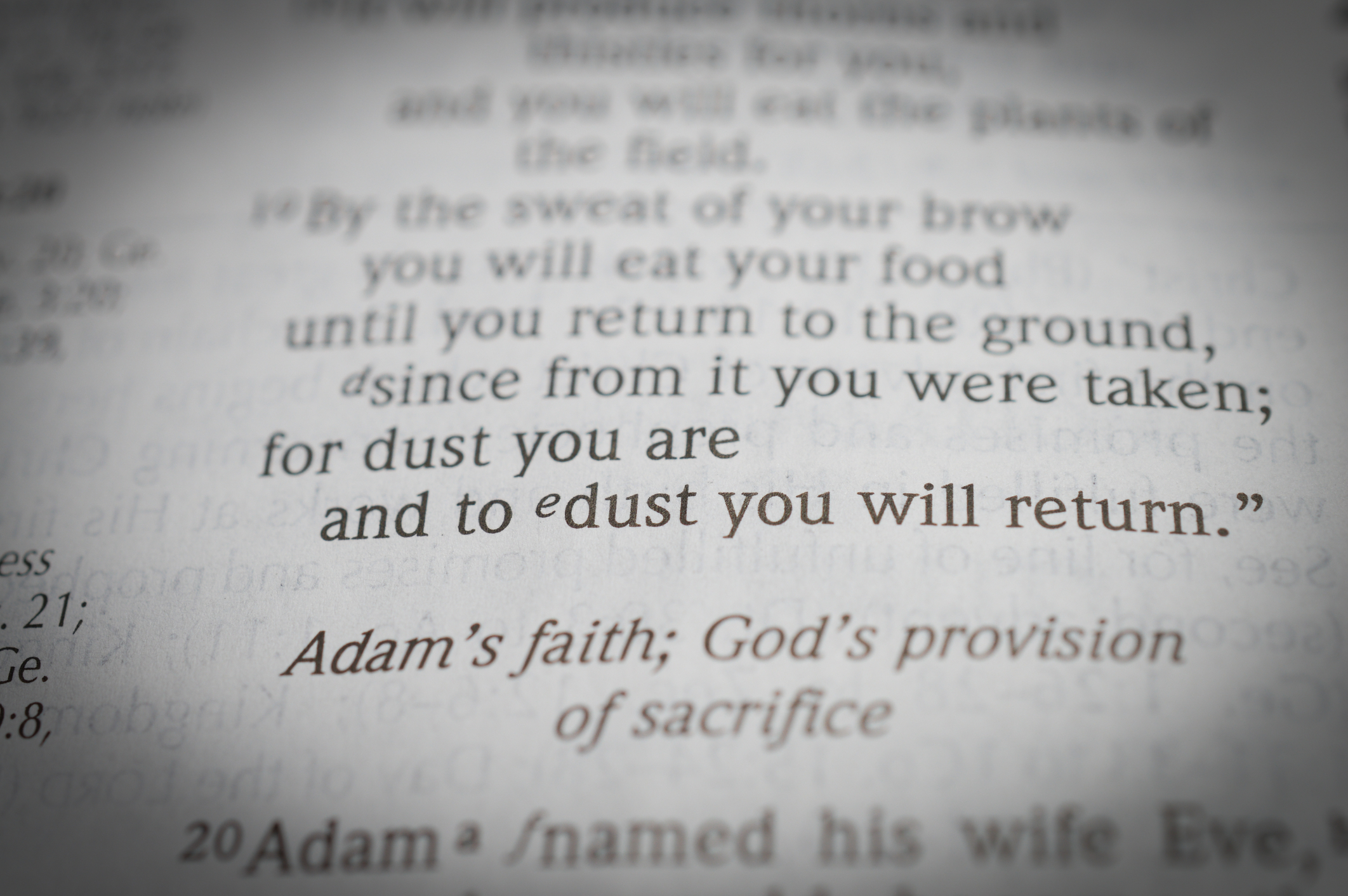
View & Download
In this chapter, the prophet speaks in almost a "dreamlike" sequence to first the "ruler" of Tyre, and eventually the "king of Tyre." Many people think the latter is also a reference to Satan, and how he fell from being a perfect and beautiful angel to become Satan the Devil himself. In Part 1, it seems to primarily focus on the human ruler of Tyre---and a strong warning is subtly given to any of us ever becoming prideful about our wealth that God and God alone gives. Photo Credit: ID 8729727 © Omkr Dreamstime.com

View & Download
We love luxurious things. We loved the Titanic. We love Downton Abbey. We love castles and treasures and beautiful, off the chart homes and hotels. We love luxury. But luxurious (and perhaps materialistic) lifestyles seem to get shot down so many times in the Scripture. God has some strong words for Tyre in this chapter---and perhaps for us today in time that tends to default to the luxurious. Photo Credit: ID 38128011 © Photographieundmehr Dreamstime.com

View & Download
There have been a lot of critics of this chapter, but I'm convinced they misread it. Tyre does get destroyed, exactly as God predicts. But it happens in stages and by the hand of many nations. It takes a little digging sometimes, but God's word is inspired, and the Spirit did 'carry along' (1 Peter 2) as His prophets with inspiration---and He carries you along too! Every day and in every way! He's a gentle dove in us but can as mighty, or mightier, than an eagle! Rejoice in Him.

View & Download
In this study, you'll see how the enemies of Israel gleefully rejoiced at their fall, and exacted a bit of vengeance---if not actual, then emotional. But I get the sense that all people are holy, and treading light in the vengeance department is always a smart approach. Vengeance is mine, says the Lord. While I don't believe God is primarily a God of wrath, He has wrath. And the last thing I want is for Daddy to get mad at me! :) But even if He did, it's for my own good!

View & Download
God was going to punish His people. But He was going to punish the nations too, in particular for rejoicing at the downfall of Judah! It puts the fear of God in you when you're tempted to rejoice at the downfall of an enemy.

View & Download
This chapter concludes with a very sad emotional and personal loss for the prophet---the death of his wife, on the very day the Temple is destroyed! The chapter uses beautiful words to describe what a man feels about his wife. If nothing else, it can maybe encourage us all to appreciate each other during the time we have together. The photo attached is of my great-grandparents---my great grandfather Panagiotis, and the "delight of his eyes."
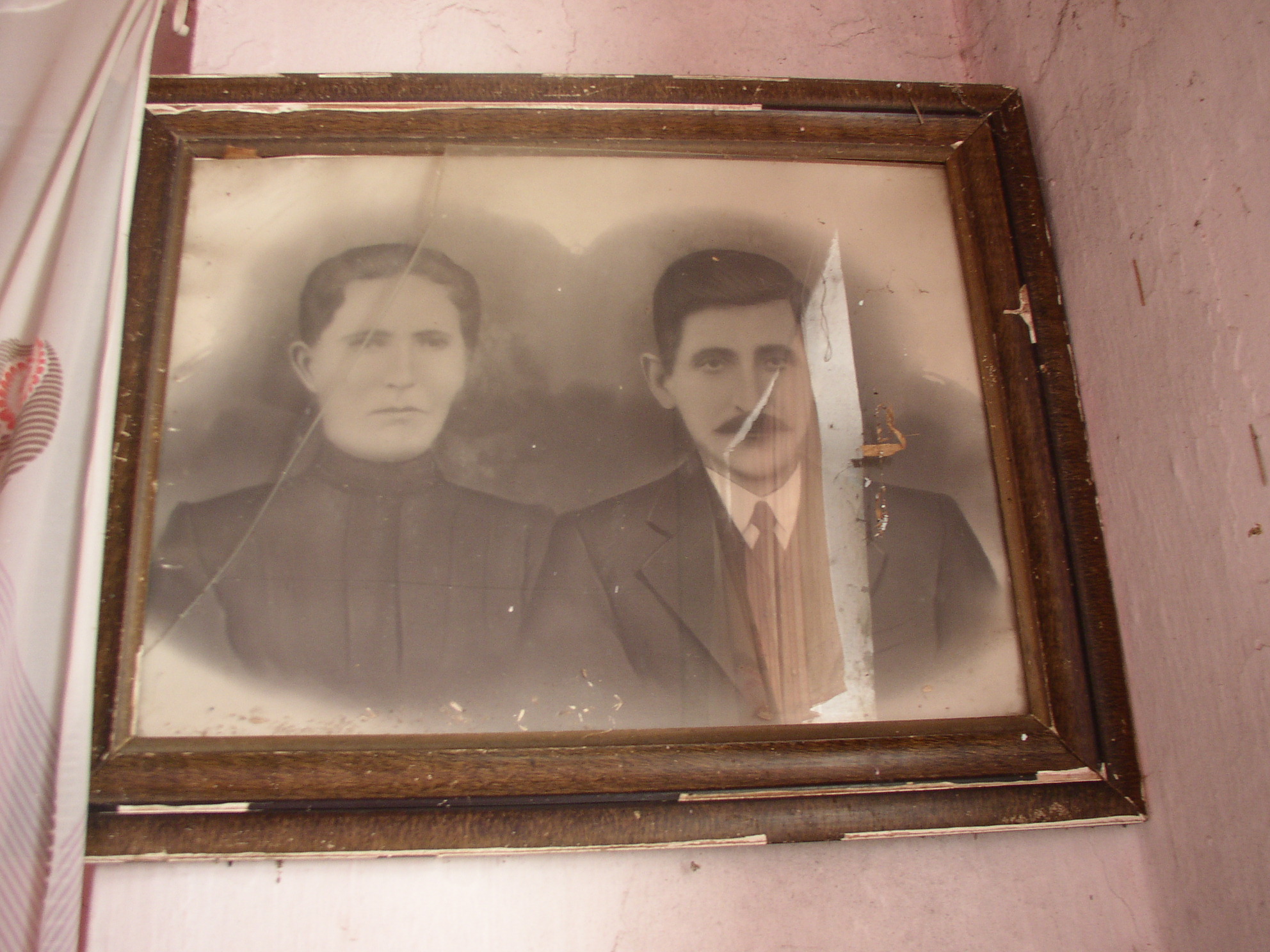
View & Download
I'm on a bit of a "rabbit trail" study here, and I'm surveying the Scriptures in the New Testament about the wrath of God. God has wrath---He hates sin and how it harms us. He rebukes, He punishes. But He does so in love. And all of God's wrath was completely satisfied on the Cross, on Jesus, for us. But we will somehow experience His wrath as well---a cleansing wrath on the Day of Judgment, that will cleanse away any vestige of sin in us.

View & Download
God hates sin. He's going to purify His people one way or another. He has wrath that needs to subside. He's God, so whatever He does is "ok." This may be a week-long study, to get all the good stuff out of it!

View & Download
We are baptized into the Spirit and "fire" the Scripture says. What does His fire do? Warm you up, and purify---sanctify---you! You are way more important to this universe than you may think!

View & Download
This chapter is graphic, PG-13. It has a boatload of sexual references, some that will make you blush. But it's got some interesting insights on godly sexuality versus the sexuality of this world today. It's a subject that ought to be more honestly addressed and dealt with by the church today.

View & Download
God refines His people with fiery trials sometimes. And He hold leaders accountable for building solid, true Christians. This chapter ties in fascinatingly with 1 Corinthians 3 and the Judgment. And it gives us all something to ponder---if we're leaders, what kind of Christians are we helping to "forge?" Have they been able to stand the trials that have come upon us as a nation? Is our Christianity and personal commitment "surviving"?

View & Download
God describes what it was that angered Him. It's amazing that not only sexual depravity angered Him, but a system that charged interest angered Him as well. How many businesses would have to close shop if we truly followed God's attitudes of love and concern. It's a love that was capstoned and displayed in its fullness at the Cross.
View & Download
It's amazing the personal length God has allowed Himself to go through for us. He hates death and destruction. But in this chapter He actually helps facilitate it. The cost it must have been, personally, for God to create us and allow the mess we brought into the universe to be. And the cost He paid to set us free. Blessed be the name of the Lord.

View & Download
Does God get involved with the nations of the world? In this section, He talks about forests going ablaze. It made me think of our forest fires in the Northwest. But it turns out this passage is a parable, talking about much more than just a literal forest fire. It did beg the question---does God have more of a hand in things that are going on than is politically correct to admit? I explored that a bit. Enjoy.

View & Download
Embedded sin. They had it. So do we. How does it play out? And what does God eventually do about it? Let's continue to track with this, as we do part 2 of "Going Against The Grain." We all want to be free of going against the grain of God's True and Real Life!

View & Download
Mama's don't let your babies grow up to be cowboys. But this mama in this chapter didn't go by that. She raised her boys among the lions and be tough---and the system worked against her! What's the message in all this to us today?
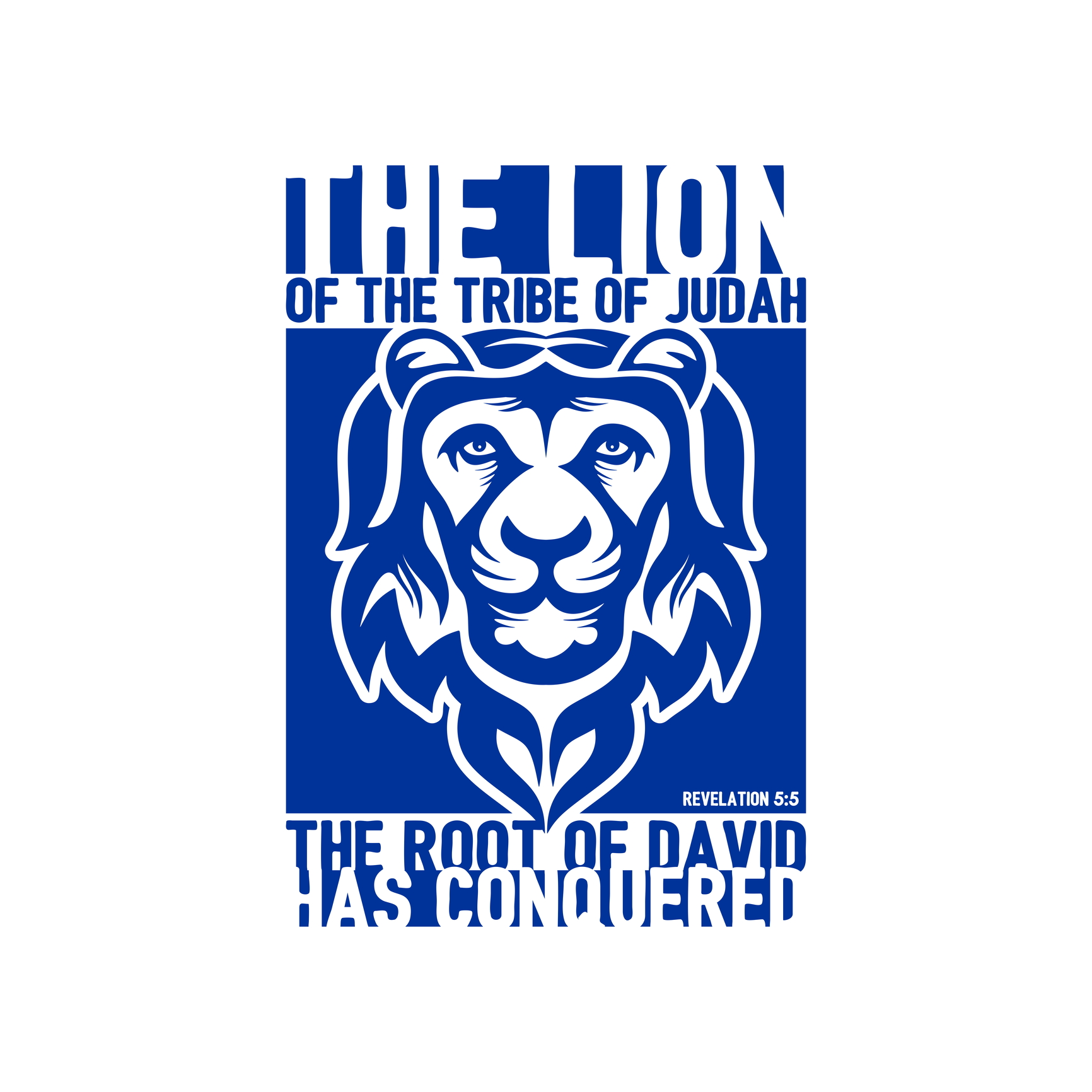
View & Download
A new heart is needed. And new heart is possible! God can create a new heart in you! And He already has. He's restored the amazing good heart He gave you at creation. And is expanding it in ways that will take you from glory to glory in life from now on. Discover it! Live it out! Live!

View & Download
God brings life from death. Shoots from His roots. He is our Root. We're saved!

View & Download
Well, this one is PG-13. There's no other way to say it. Maybe even "R" rated. God talks about sex a whole lot in this chapter. Somewhat graphically. And He drives a fascinating point. Enjoy!

View & Download
Wow. A very graphic story in this chapter. Definitely PG-13. But it opens with a description of a husband's love for his wife, and how God loves us---in Christ! He loves us so much that He's made us beautiful---like my beautiful mama in this picture.

View & Download
Israel is defined as a vine being burned in this chapter. Its language draws some strong parallels to Jesus' use of the analogy in John 15. My question---since Israel became "Israel" in one sense in his earthly ministry, was His cross the way He was burned and refined for all of us---and took a cleansing that only He could take on our behalf, and bring us all back with Him, fully cleansed and alive? Something to think about!

View & Download
So God addresses the people that have set up idolatry in their hearts. And God is going to punish them redemptively and restoratively. That means God punishes us to get back on track, like a father does a son he delights in. And fasten your seat belts. God actually uses the word for "spanking" when He talks about punishing. Oh dear me! He'd be arrested in our day and age!

View & Download
In this chapter, the prophet talks about people who have idols in their hearts, and have placed stumblingblocks in their way. It reminded me of John the Baptist's ministry of helping people clear the way of the Lord to their lives by removing stumbling blocks of sin through repentance. What are our idols in our hearts these days? What are some of our stumbling blocks? How can we turn them into "stepping" stones instead? Repentance and confession seems like the key to me!
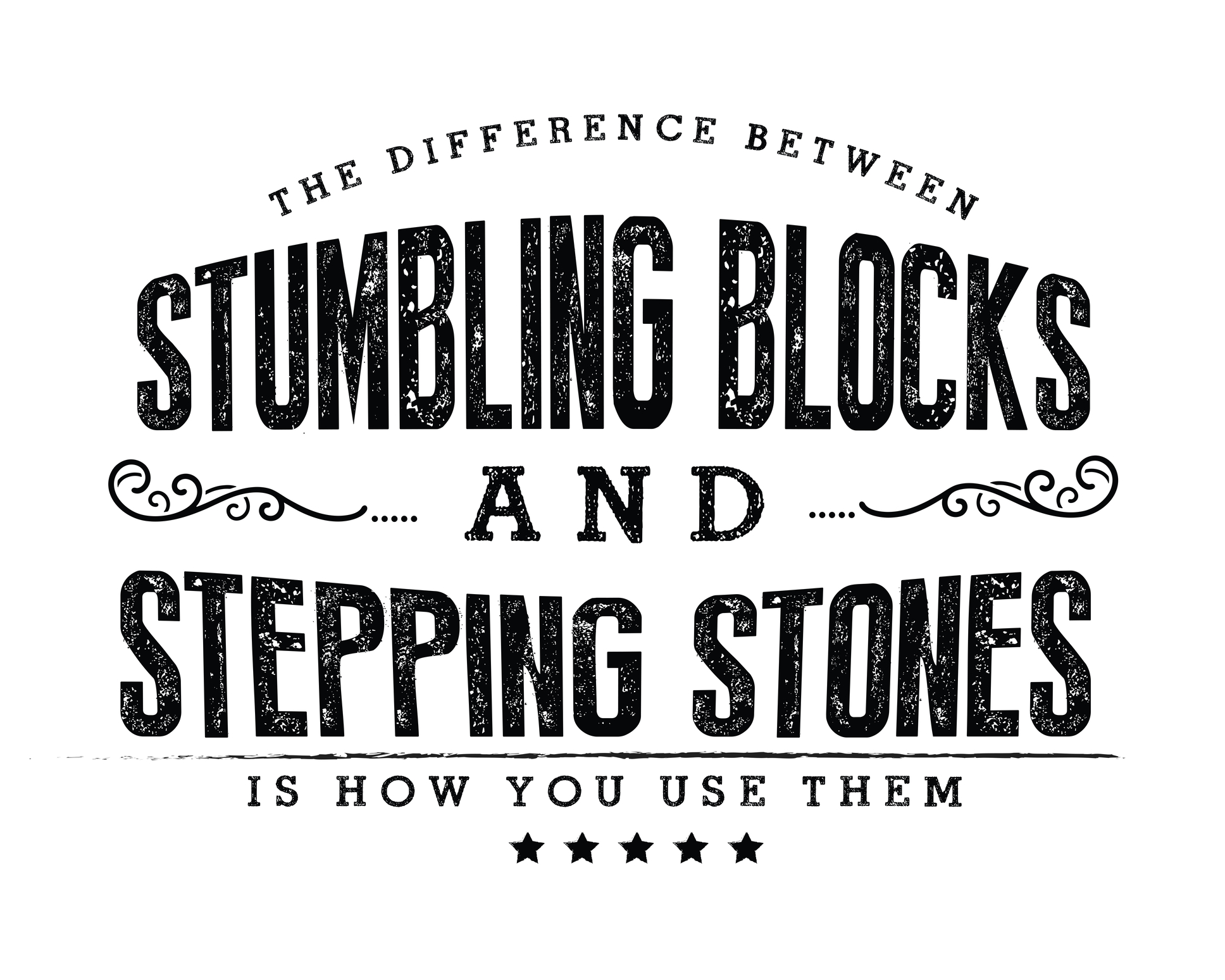
View & Download
Ok, so I believe Jesus read His Bible and got some of His greatest word pictures from it in His study of it. Ezekiel 13 -14 is chock full of such visuals. Join Jesus today in studying His Holy Word. Find out what Jesus thinks of whitewashed walls .

View & Download
God keeps records in heaven. There are "books" where all kinds of things are recorded. A lot of great visuals in the chain of Scriptures referenced. Is your name recorded in the book of life? Are things you want expunged blotted out? Learn about these details, and more in what I call a Rabbit Trail Study---a study that spins off a concept that emerges in a given phrase. Enjoy!

View & Download
So did you ever wonder how Christ got some of his visuals for His parables? I think this chapter holds a key. And also, there's a reference that seems to me to refer what the Bible calls the Book of Life. I'm going to press that as we get further into this study. What is it? Can your name be enrolled it? Has it already? Can your name be blotted out? All kind of juicy details in this one. Have fun.

View & Download
The people scoffed and said the Lord's prophecies are for a long time away and really don't pertain to us. But His words were sure. And still are! A new heaven and a new earth is coming! But there will be a lot gut-wrenching and soul searching drama that takes place before they do

View & Download
Ezekiel is called to be a living parable because the people are willfully blind to the Lord. You don't want dead eyes! Not "seeing" the Lord may lead to more tragic blindnesses in your life than you realize, including missing out on children you love!

View & Download
We're studying the "Who, What, When, Where and How" of God. Last week, we covered the “Who and How” about God.WHO He is---the Creator and Sustainer of all Things. HOW we know Him---through both observation, but primarily revelation. WHAT He’s like – He lives outside of TIME AND SPACE. But He wasn’t going to stay that way forever! The God of all the Universe was going to enter into Time and Space and make it One with God, forever! And we were going to see Him as He really is!

View & Download
The Lord intensely prophecies concerning Jerusalem. Then makes a brief stop at the Mount of Olives . . . a place Jesus Himself would stop right before His death. People who thought they were invincible would suffer great deprivation and be destroyed. It's happened to all kinds of people in history. How God must hate the bloodshed and war this "Tree of Knowledge" life has given us!
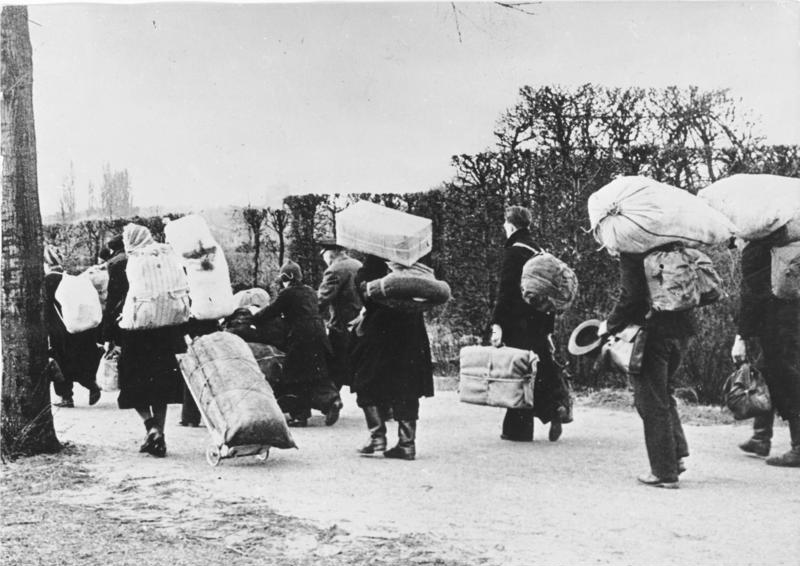
View & Download
The lapis lazuli throne of God is seen once again. And the Cherubim are glimpsed again. And again it's noted how they always look "straight ahead." Check out what a fellow bible scholar shares about this: Consider the manner in which the throne of God istransported. To use terms of mechanics or physics, it is moved by translation,without rotation. In other words, it does not spin or turn. (Compare James 1:17, no shadow of turning with God’s love forus). When it’s time comes, each Cherub has the single-minded duty to gostraight ahead, to press forward, following the will of the One on the throne. Am I single-minded? Am I seeking andstraight-ahead following the will of God, without turning away? Am I likeCaleb and Joshua, spies who had the enthusiasm and faith it took to advise Israel to march unwaveringly into the Promised Land? Or do I allow distractions and the fear of giants turn me from my path? (Blessed are the pure in heart, for they shall see God.)
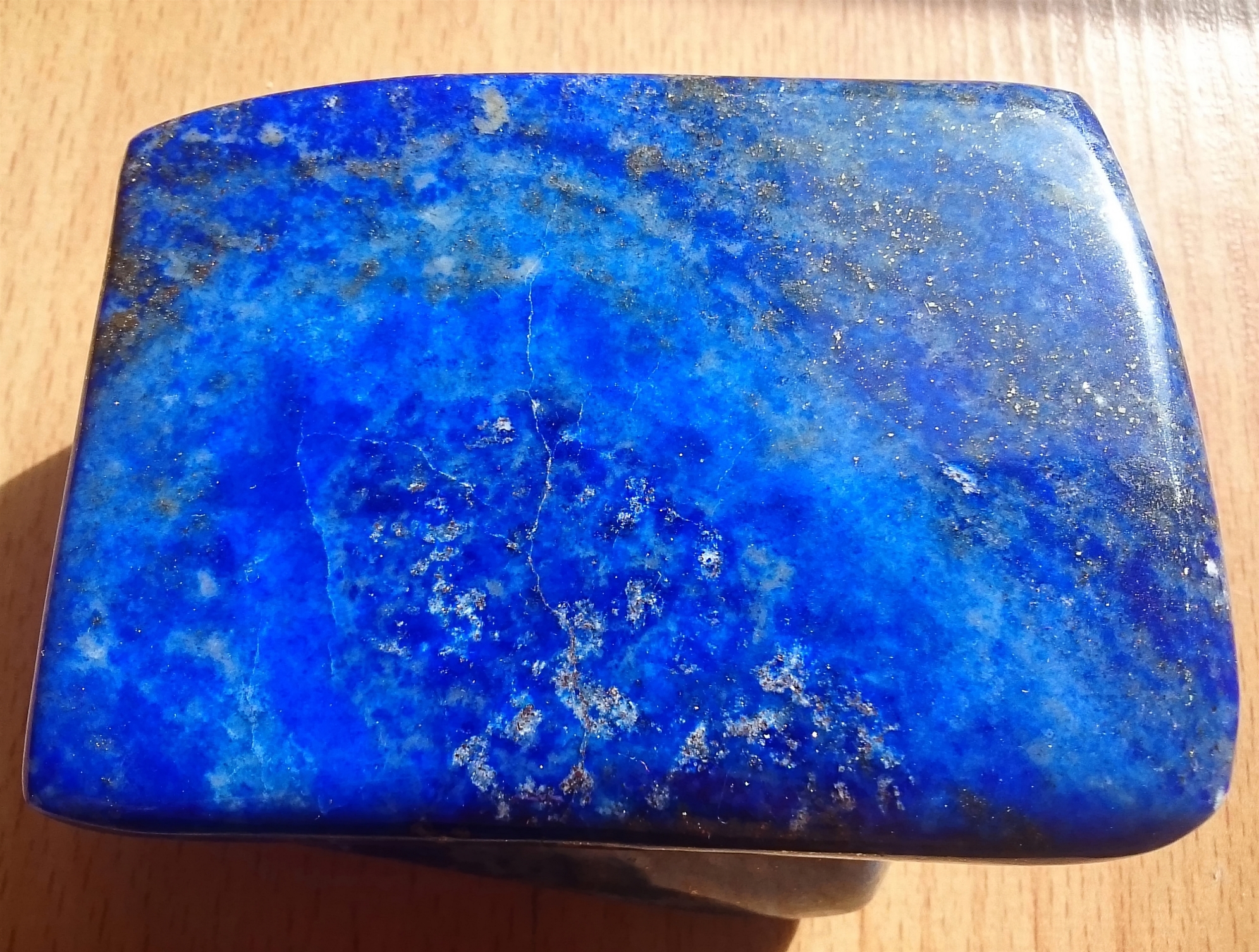
View & Download
Purging judgment begins at the house of God, Peter said in 1 Peter 4:15. And with the old men first. I wonder if biblically he got this from this chapter! God's judgment though is not retributive, primarily. It's restorative. But it, well, is a bit uncomfortable until its all said and done. But it has an end!

View & Download
The elders of Israel worshipped dark things in the dark corners of their lives? What do you worship in your "hidden" room in your life? Interesting to consider.
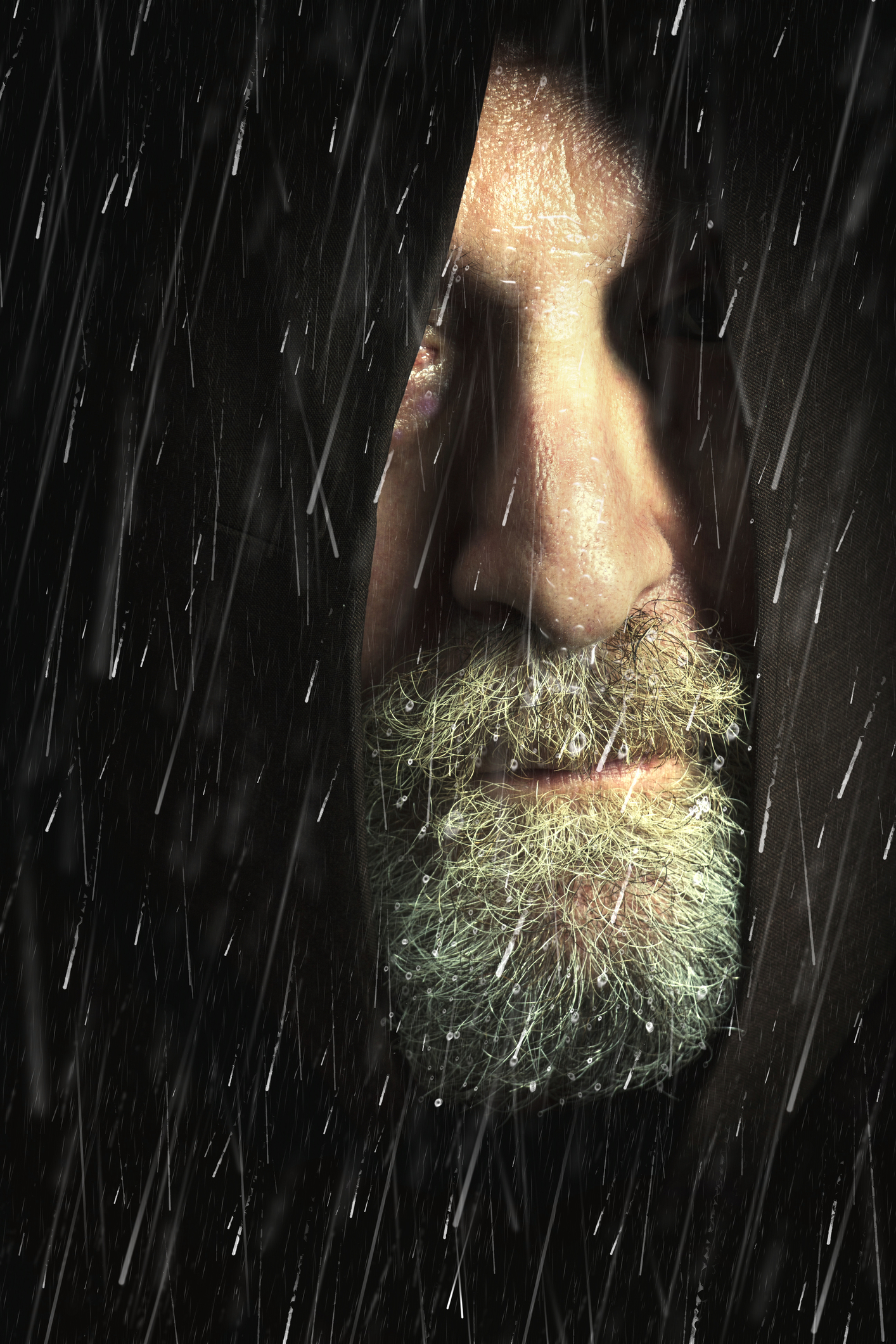
View & Download
Lots of people are hurting financially, and our economy has contracted 32%! You can still be deeply rooted in Christ and thriving! What Kind of Tree Are You? What kind can you be if you're deeply rooted in the One who is The Tree of Life for all?

View & Download
God speaks to the mountains and ravines and valleys. Can they hear? He also says all will know---I am the Lord. And every knee will eventually bow to him! Do yours?

View & Download
What if God asked you to shave your head for Him? Would you do it? What did it mean to the people of Israel?

View & Download
Has God ever asked you to do something that seemed absolutely crazy? Consider what this prophet had to go through before you get too bent out of shape. Would you respond with doubt . . . or faith?

View & Download
The prophet is not happy about his assignment. And He's called to be a watchman who would be accountable if he didn't "warn" when he should. To whom have you been sent prophetically? Your children, your spouse? What are you supposed to do if they won't listen? Warn them anyway! Else the blood is on your head. Or at least, that's what God told Ezekiel. Be diamond hard, and multi-faceted prophet!

View & Download
God's mission tasted sweet but ended up making Ezekiel angry. God had to make him as hard---and multifaceted-as a diamond. Maybe you can identify with this story.

View & Download
Ezekiel gets this amazing glimpse of God, and The One seated on the throne says something to Him. Notice---it’s very typical for a “commissioning” to take place after someone truly “sees” the Lord. This was the appearance of the likeness of the glory of the LORD. When I saw it, I fell facedown, and I heard the voice of one speaking. So what was God going to say to Ezekiel?

View & Download
So we’re about to get a glimpse of God Himself, the way He described Himself to Ezekiel! The stone "amber" is part of the description. Enclosed in a fire. Wow

View & Download

